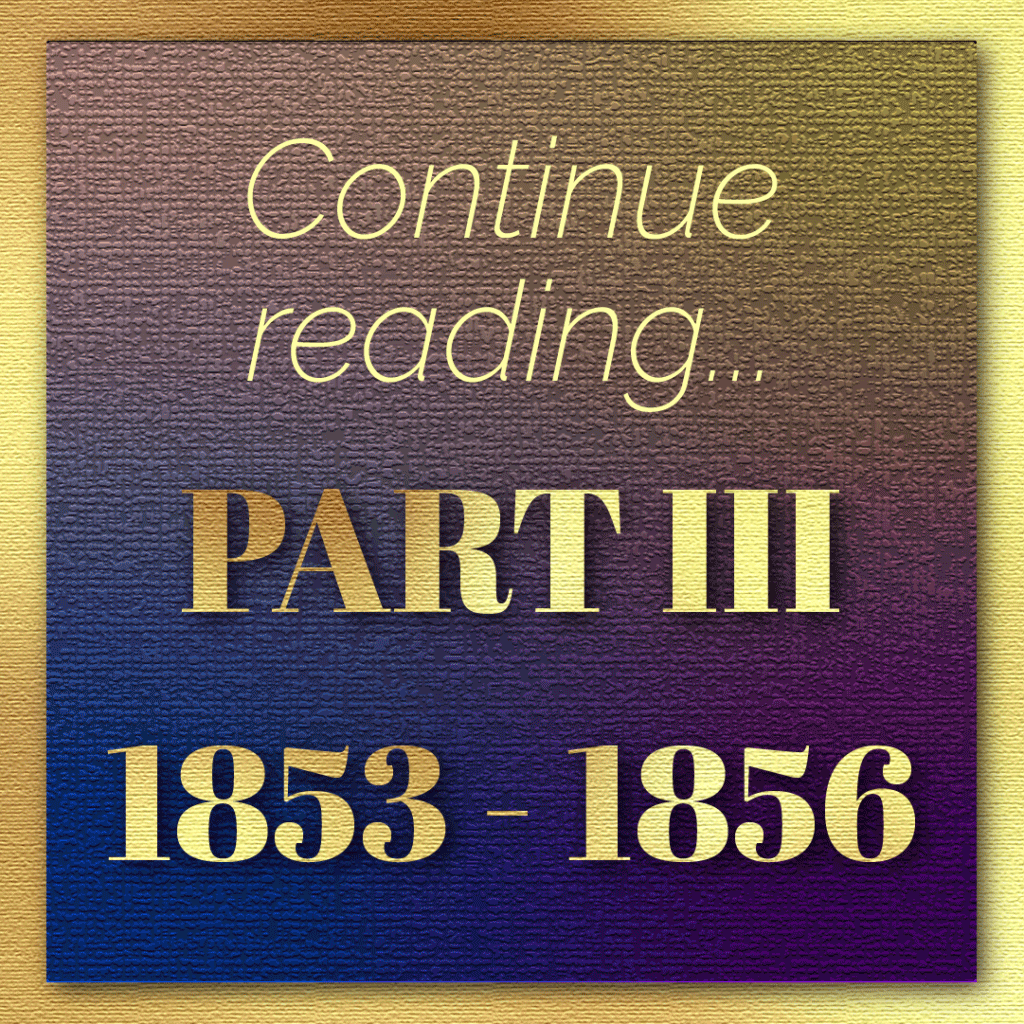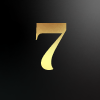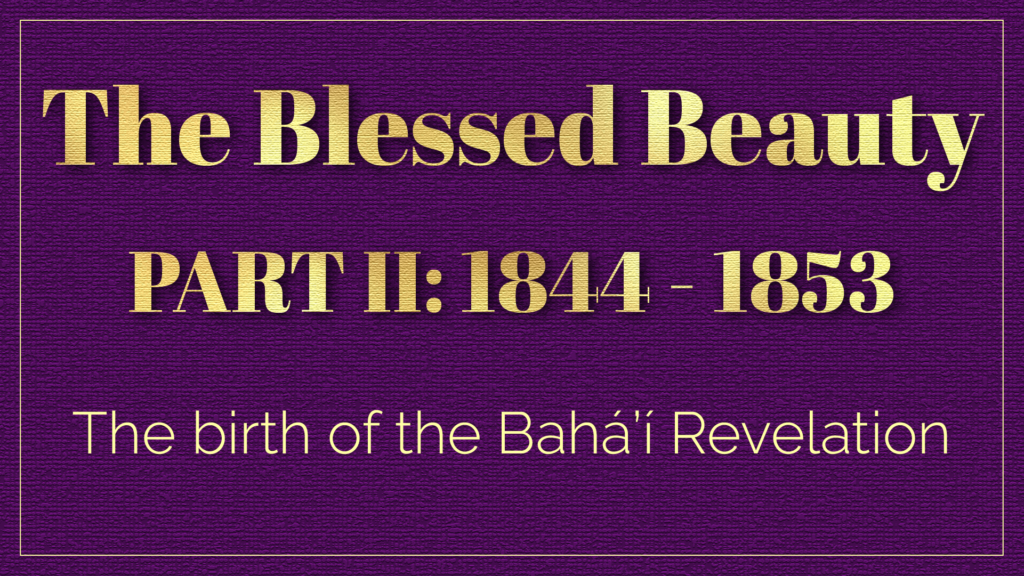
Written and illustrated by Violetta Zein
This part covers the life of Bahá’u’lláh from the age of 27 in 1844, to the age of 36 in 1853.
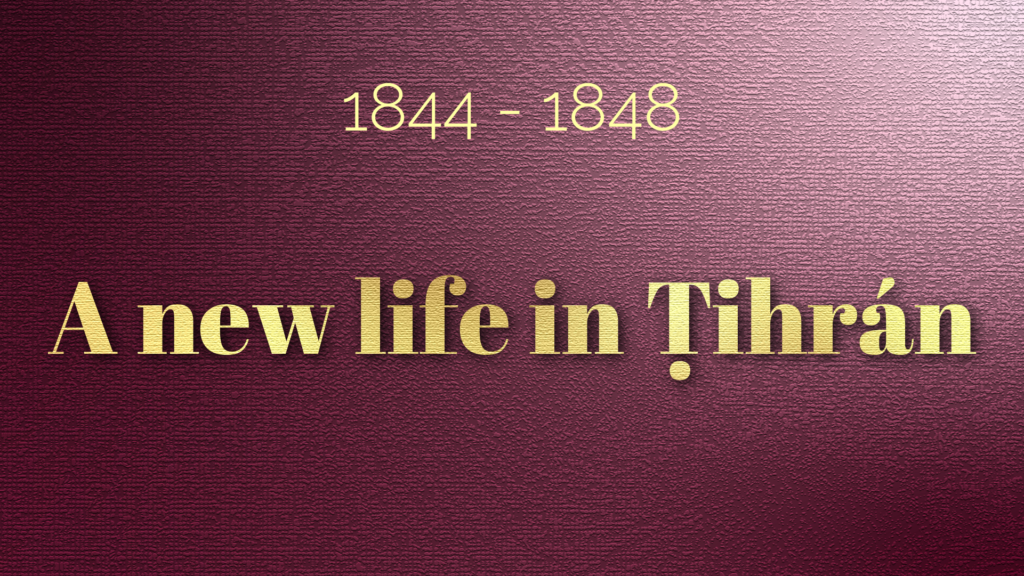
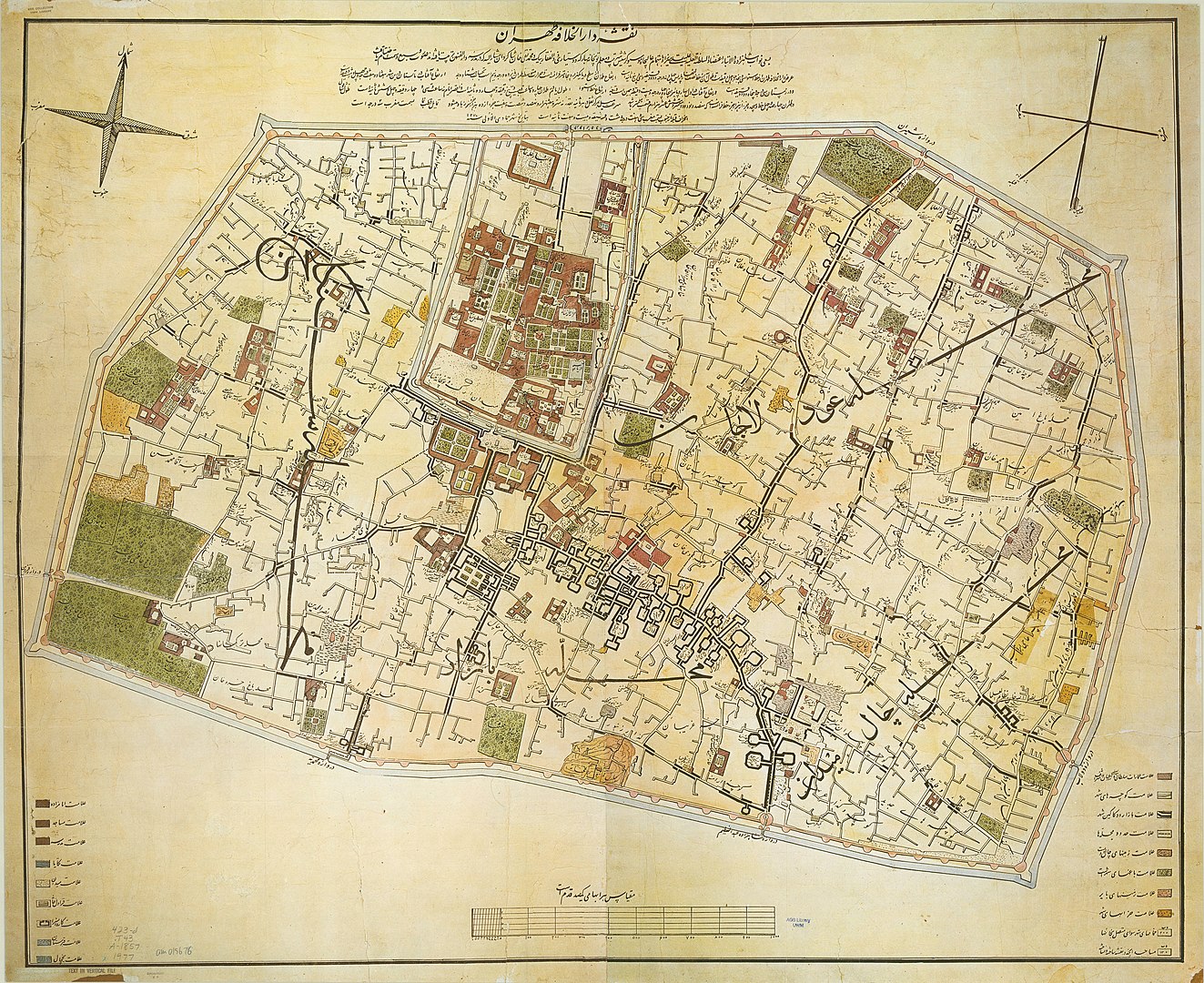
1857 official map of Ṭihrán made by a Czech officer of the Austrian Empire, August Krziž. Wikimedia Commons.
Bahá'u'lláh's immediate and impassioned involvement with the Bábí Cause intensified, and His home in Ṭihrán became a refuge and gathering place for the Bábís of the capital, or those traveling through.
Ásíyih Khánum gave birth to their second son, 'Ali-Muḥammad, approximately a year after 'Abdu'l-Bahá, in 1845. Ásíyih Khánum was a gracious and loving hostess, both as the mistress of the home that was the focal center of the Bábí community, and the wife of the most prominent and outspoken Bábí.
Ásíyih Khánum was wholeheartedly devoted to Bahá'u'lláh. She had a profound understanding of Bahá'u'lláh's leadership role in guiding and inspiring the Bábí community. During these momentous years, she also associated closely with prominent Bábí figures of the time who were aware of Bahá'u'lláh's exalted station.
Baharieh Rouhani Ma'ani, Leaves of the Twin Divine Trees, pages 91-92 and 94.
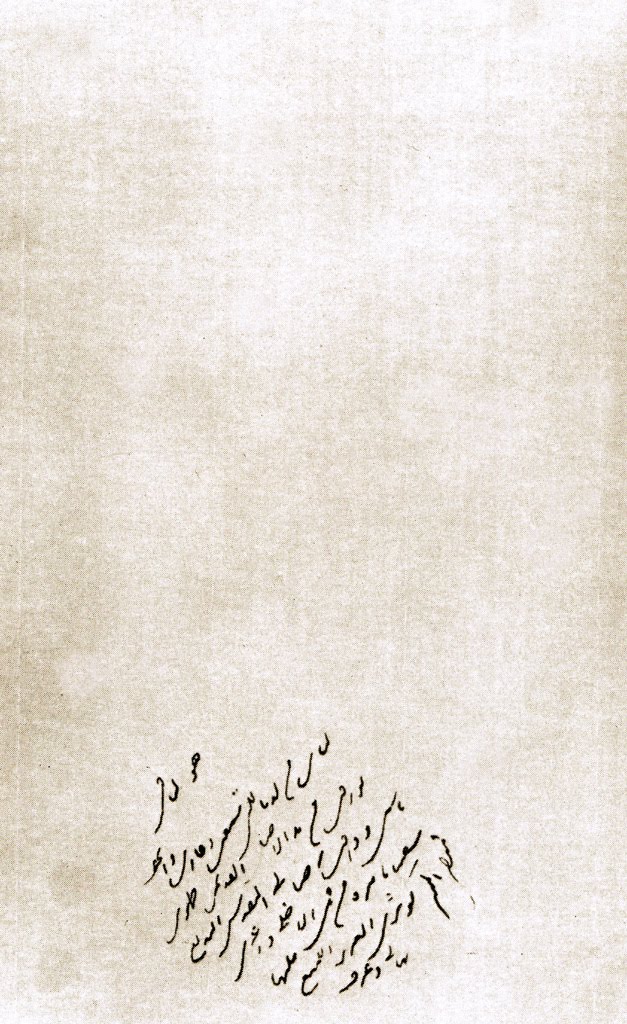
Tablet of Bahá'u'lláh to Bahíyyih Khánum in His own handwriting. The text of this Tablet is inscribed around Her final resting place in gold letters. The translation of the Tablet can be found in the link. Source: Bahá'í Sacred Relics.
About a year after 'Ali-Muḥammad, Bahá'u'lláh and Ásíyih Khánum welcomed their first and only daughter into the world. Named Fáṭimih at birth, she would later be known as Bahíyyih Khánum, and The Greatest Holy Leaf. Bahíyyih Khánum's glorious destiny is to be the most outstanding heroine of the Bahá'í dispensation, and nowhere do we get a better insight into her supremely lofty station than through the words of Bahá'u'lláh in a Tablet to His saintly daughter:
“Verily, We have elevated thee to the rank of one of the most distinguished among thy sex, and granted thee, in My court, a station such as none other woman hath surpassed. Thus have We preferred thee and raised thee above the rest, as a sign of grace from Him Who is the Lord of the throne on high and earth below. We have created thine eyes to behold the light of My countenance, thine ears to hearken unto the melody of My words, thy body to pay homage before My throne.”
Baharieh Rouhani Ma'ani, Leaves of the Twin Divine Trees, page 94.
Bahá'u'lláh, Tablet addressed to the Greatest Holy Leaf, (See The Bahá’í World, vol. V, p. 171).
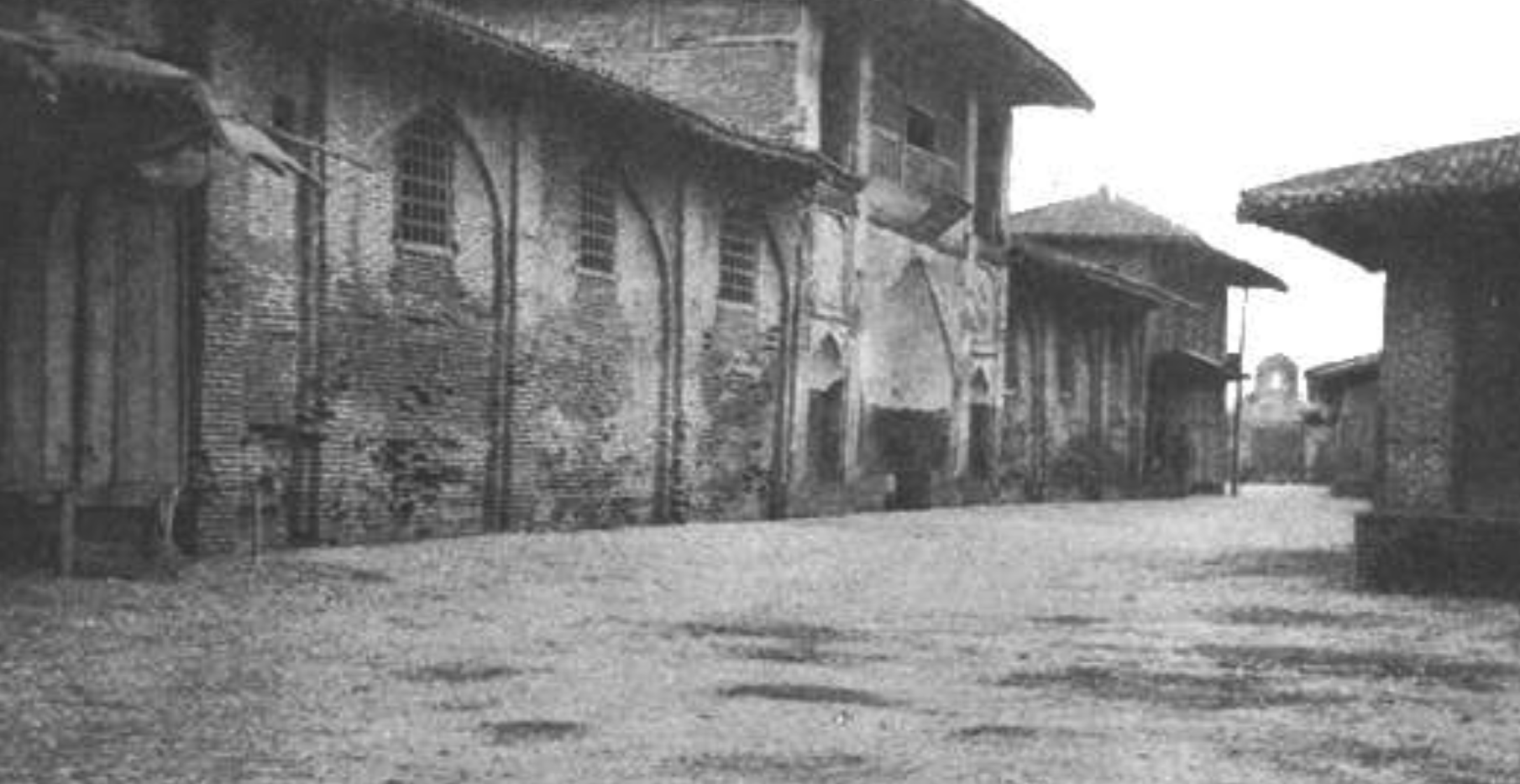
Bárfurúsh, the native village of Quddús, where he goes after meeting Bahá'u'lláh in Ṭihrán in the summer of 1846. It is in this village he will be buried after his martyrdom. Source: Phototèque bahá'íe.
After leaving the Báb in Shíráz on 23 June 1846, Quddús traveled through western Persia, and finally arrived in Ṭihrán in early summer, meeting Bahá'u'lláh for the first time, before continuing on his journey to his native town of Bárfurúsh, in Mázindarán.
Mírzá Músá described Quddús as possessing a combination of charm, extreme humility and dignity that appealed to everyone. All those who associated with Quddús invariably felt an intense admiration for him.
Approximate date range for meeting from Bahá'u'lláh Library Online: Chronology of Quddús.
Nabíl, The Dawn-Breakers, pages 182-183.
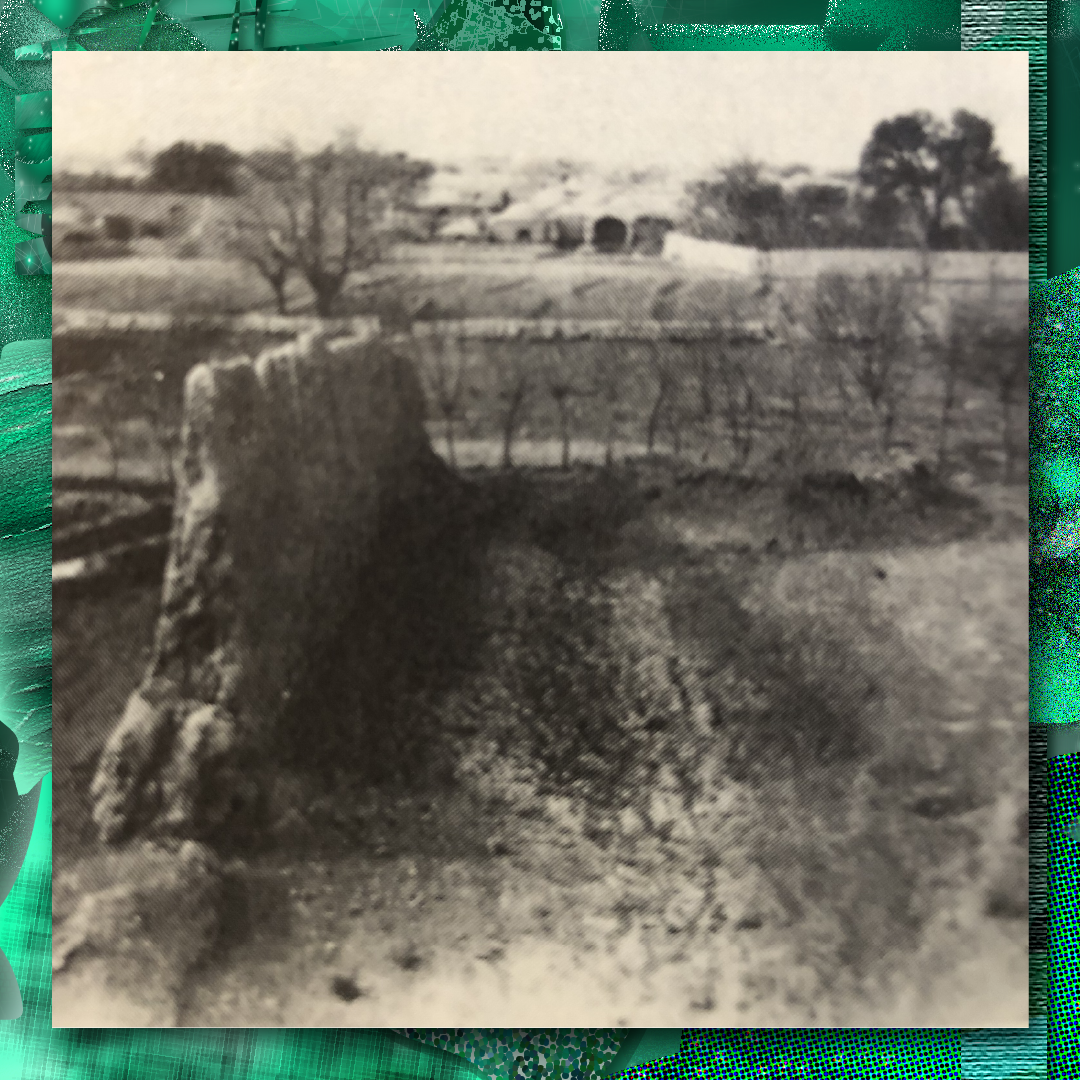
A view of the village of Kulayn, where the Báb remains until He is sent to Mah-Kú. This is the village where He receives the message from Bahá'u'lláh which gladdens His heart. Source: The Dawn-Breakers page 226.
After His pilgrimage to Mecca and Medina, the Báb stayed in Shíráz for fifteen months during which He was imprisoned and almost executed. He bequeathed all His possessions to His wife and mother, and was escorted from Shíráz on the way to Ádhirbáyján.
The caravan stopped in the village of Kulayn, 45 kilometers (28 miles) south of Ṭihrán. Three days after His arrival, on 29 March 1847, two Bábís came to visit Him bearing a package from Bahá'u'lláh. Bahá'u'lláh’s parcel included a sealed letter and some gifts which brought great joy to the Báb in a moment of loneliness and imprisonment. His face glowed with joy and He effusively thanked the believer who had delivered Him the package.
Bahá'u'lláh’s gift would have a profound impact on the Báb, who kept the glow of exultation from His contact with “Him Whom God shall make manifest” for nearly two years until He received news of the massacre at Shaykh Ṭabarsí, in the summer of 1849.
Nabíl, The Dawn-Breakers, pages 224-228.
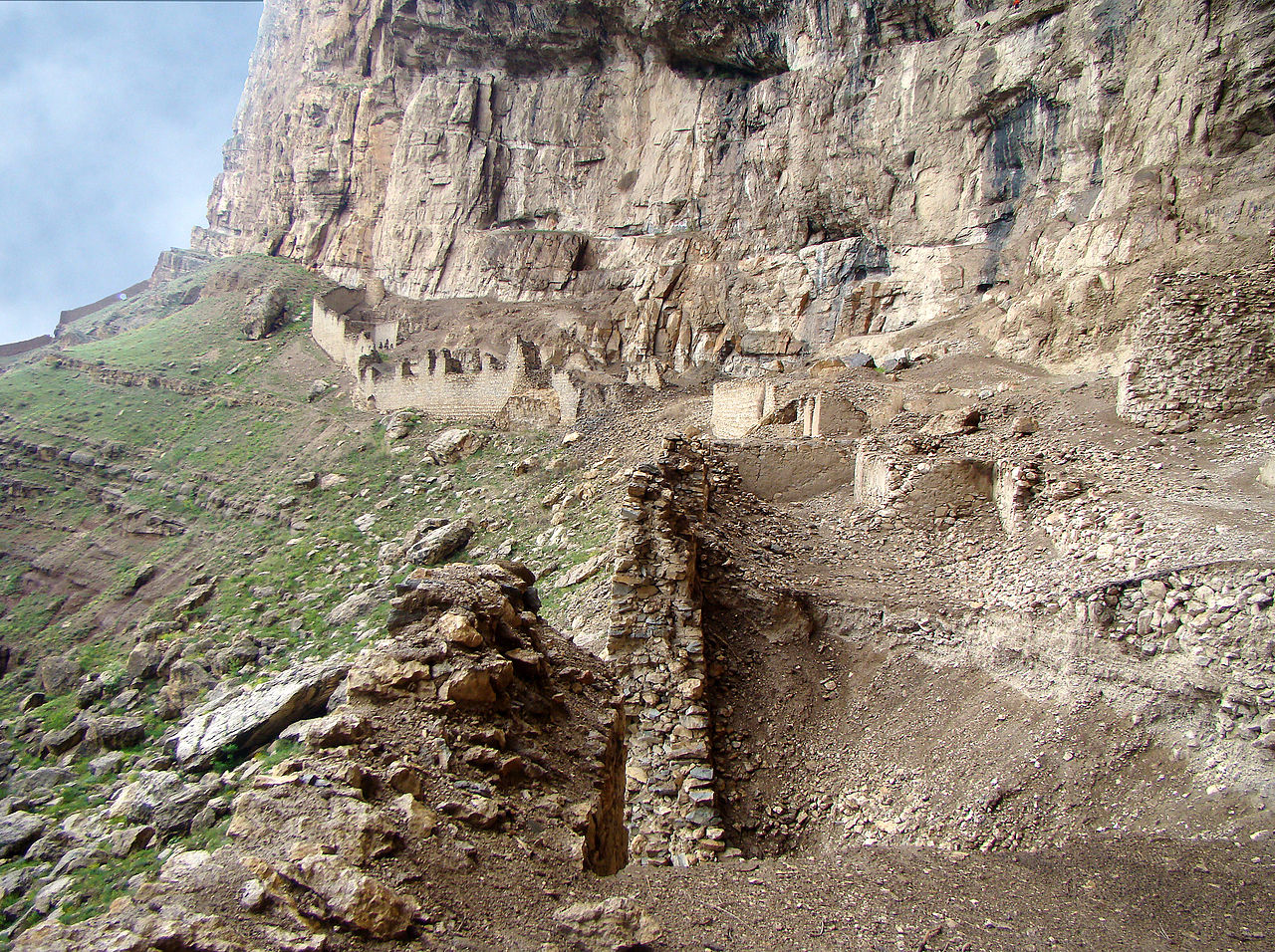
A modern view of the ruins of the fortress at Máh-Kú in the Ádhirbáyján province of northwestern Persia, where the Báb was imprisoned twice, and where Mulláh Ḥusayn visited Him. Wikimedia Commons.
Mullá Ḥusayn walked almost directly from Mashhad to Máh-Kú, where the Báb was imprisoned, stopping briefly in Ṭihrán. He was welcomed by Mírzá Músá and a large group of believers, who were impressed by his constancy, piety and virtue. His strength of character and the ardor of his faith left them convinced that, alone, he could achieve the triumph of the Bábí Faith.
During this very brief visit, Mullá Ḥusayn was secretly ushered into Bahá'u'lláh’s presence, and he left almost immediately after for Máh-Kú.
On his way back from visiting the Báb, Mullá Ḥusayn again stopped in Ṭihrán, on his way to Mázindarán, and, once again, met with Bahá'u'lláh. During this meeting, Mullá Ḥusayn received from Bahá'u'lláh the spiritual sustenance to face with undaunted courage the dangers that fiercely assailed the last, heroic days of his life.
Nabíl, The Dawn-Breakers, pages 254-255 and page 261.
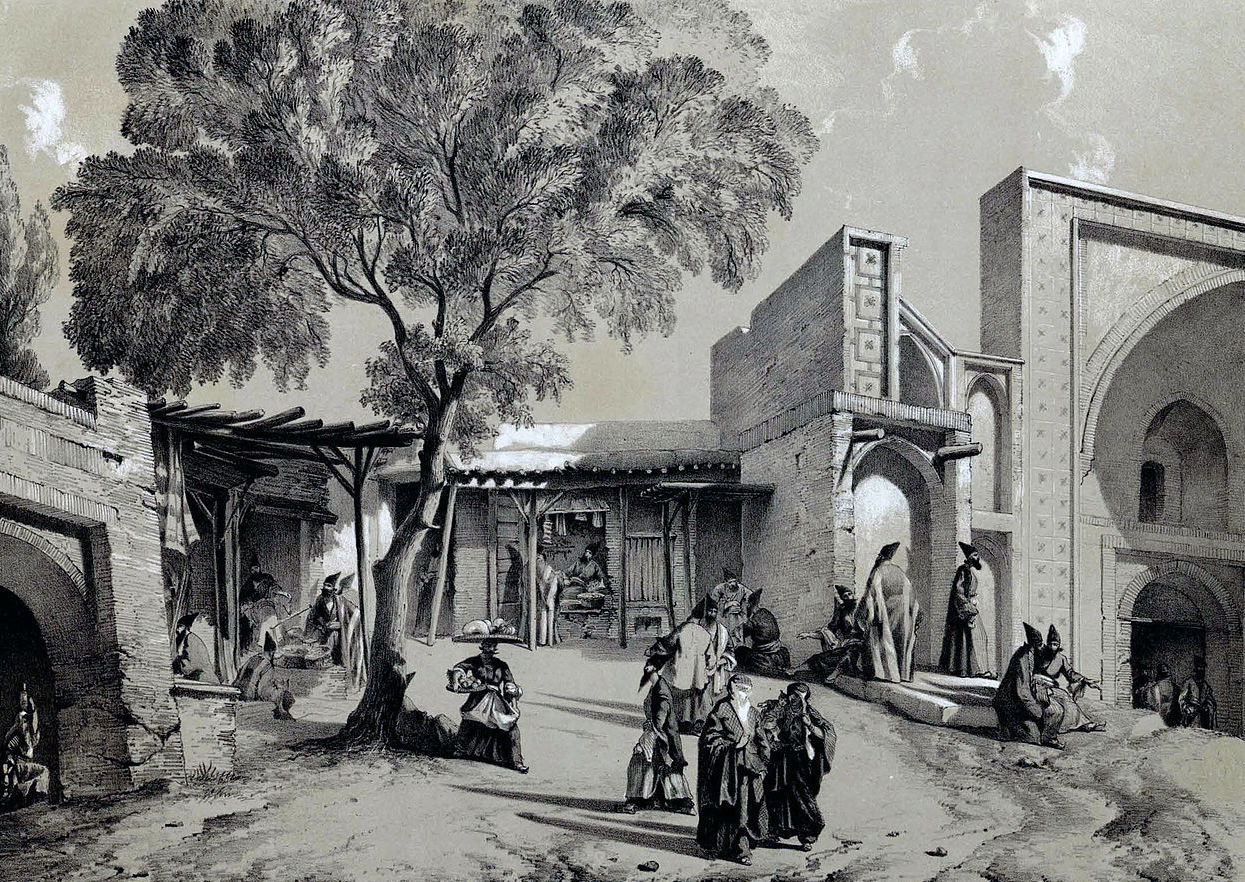
Marketplace and mosque entrance in Qazvín in 1840. Engraving by Eugène Flandin, published in Voyage en Perse, avec Flandin (1851) . Wikimedia Commons.
When the Báb had raised the call for Bábís to head to Khurásán, Ṭáhirih left Iráq, where she was living and arrived in her home town of Qazvín. Tensions ran high with her arrogant mujtahid cousin, Ḥají Mullá Taqí, who wanted to control her. In an unrelated incident with tragic consequences, her cousin was murdered over an argument by a man traveling through Qazvín named Mullá 'Abdu'lláh, who, in his own words had "never been a convinced Bábí." The fact the murderer was Bábí was used against Ṭáhirih. She was accused of instigating the murder and placed under house arrest. Five Bábís, including Mullá 'Abdu'lláh, were arrested and sent to Ṭihrán, where they were locked up in the house of a borough chief, called a kad-khudá, named Khusraw Khán.
After requesting permission from the Sháh's Prime Minister, Bahá’u’lláh visited Khusraw Khán's home to intervene on behalf of the prisoners. Khusraw Khán happened to be greedy and deceitful, and was keenly aware of Bahá'u'lláh's legendary generosity. When Bahá'u'lláh arrived, Khusraw Khán exaggerated the captives' misfortunes, describing them as destitute, starving, and dressed in rags, hoping to get more money.
Bahá’u’lláh immediately provided financial assistance for their relief, and urged Khusraw Khán to relax the conditions of their detention, and the kad-khudá did his best, relieving those who couldn't bear the crushing weight of the chains, and trying the help the others as he could.
Nabíl, The Dawn-Breakers, pages 270-281.
H.M. Balyuzi, Bahá'u'lláh: The King of Glory, page 42-43.
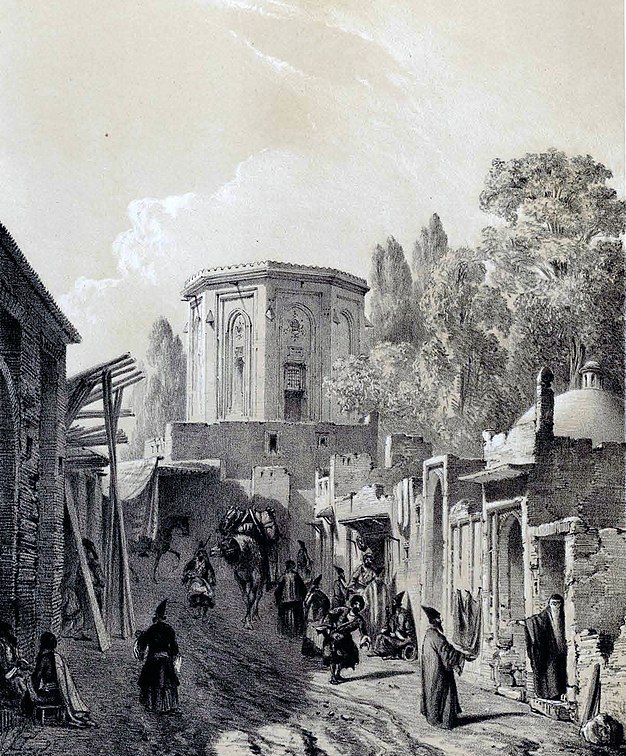
The streets of Ṭihrán in 1840. Engraving by Eugène Flandin, published in Voyage en Perse, avec Flandin (1851) . Wikimedia Commons.
Meanwhile, the assassin of Ḥají Mullá Taqí escaped, and his relatives came from Qazvín to accuse Bahá'u'lláh, who had been seen helping the prisoners, of having helped the assassin escape. Khusraw Khán's even more corrupt superiors summoned Bahá'u'lláh and accused Him of being an accomplice, to which Bahá'u'lláh replied:
“The kad-khudá pleaded their cause before Me and enlarged upon their sufferings and needs. He himself bore witness to their innocence and appealed to Me for help. In return for the aid which, in response to his invitation, I was impelled to extend, you now charge Me with a crime of which I am innocent.”
The officials, in a ploy to intimidate Bahá’u’lláh, refused to allow Him to return home, and Bahá'u'lláh was imprisoned for several days. After several high-ranking officials and a number of Bahá'u'lláh’s friends intervened on His behalf, and the accusations against him were proven false, Bahá'u'lláh was released.
In an interesting twist of fate, both the assassin of Ḥají Mullá Taqí and the officer who helped him escape died as martyrs in Shaykh Ṭabarsí.
Nabíl, The Dawn-Breakers, pages 270-281.
H.M. Balyuzi, Bahá'u'lláh: The King of Glory, page 42-43.
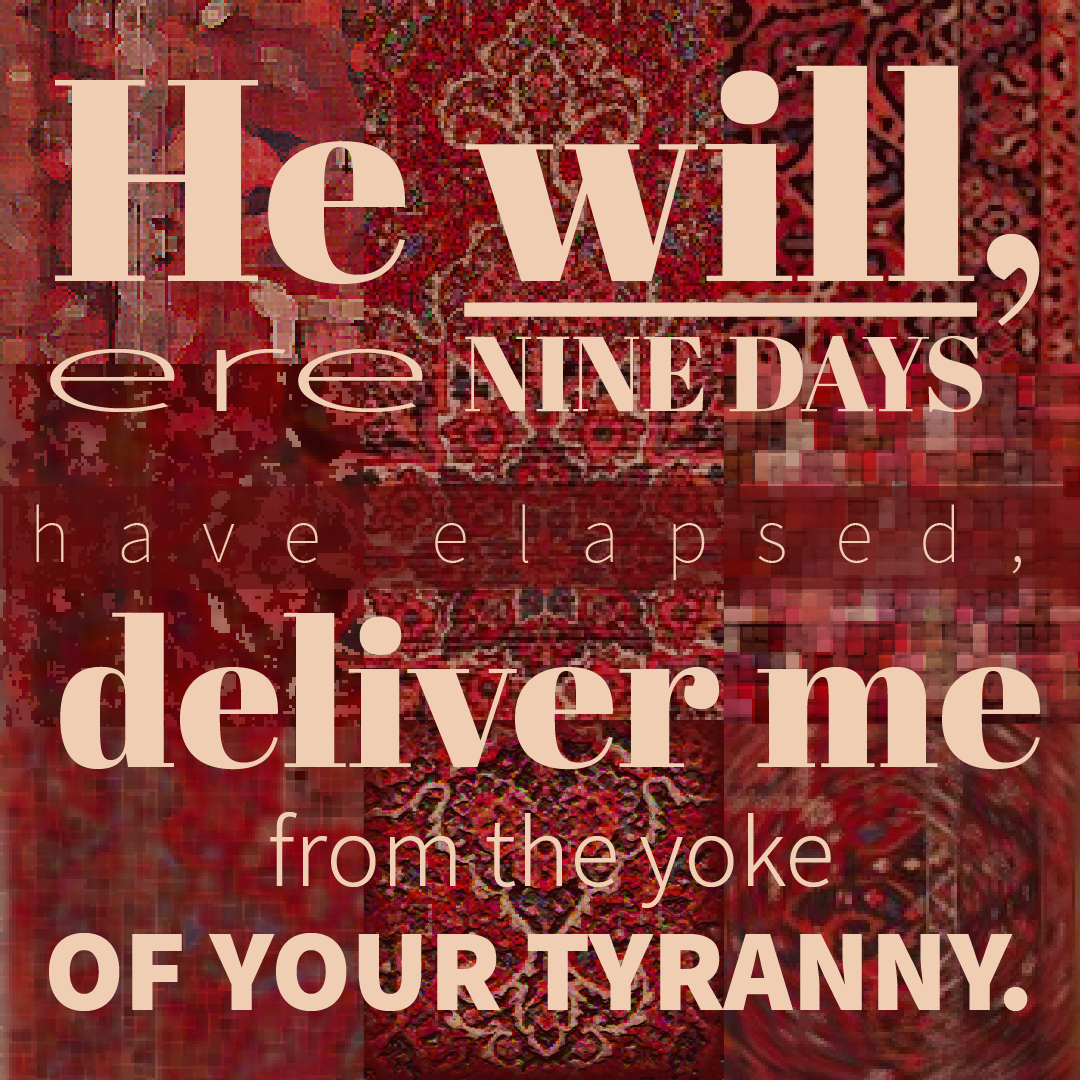
A tribute to the words of Ṭáhirih I. © Violetta Zein.
Bloody reprisals were taking place in Qazvín as the family of Ṭáhirih's murdered cousin, Ḥají Mullá Taqí, hunted down and killed Bábís. When they announced their plan to kill Ṭáhirih as well, she prophesied, despite being under house arrest, "If my Cause be the Cause of Truth, if the Lord whom I worship be none other than the one true God, He will, ere nine days have elapsed, deliver me from the yoke of your tyranny.”
Bahá'u'lláh arranged for Ṭáhirih to be brought to Ṭihrán for her own safety, and organized a rescue mission, sending two trusted Bábís, a husband and his wife. The wife was able to approach Ṭáhirih, something her husband could not have done alone, and she delivered messages back and forth. The couple followed Bahá'u'lláh’s very detailed instructions to the letter. They found the horses exactly where Bahá'u'lláh had arranged for them to find them, traveled a deserted road indicated by Bahá'u'lláh, reached Ṭihrán at dawn, and headed to Bahá'u'lláh’s house as soon as the gates to the city opened, using extreme caution throughout.
Nabíl, The Dawn-Breakers, pages 284-287.

A tribute to the words of Ṭáhirih II. © Violetta Zein.
Upon meeting Him, Ṭáhirih immediately perceived Bahá'u'lláh’s true station.
Already in 1844, before meeting Bahá'u'lláh, Ṭáhirih had made references to one of His titles “the Abhá Beauty,” in her poems on the subject of the One promised by the Báb:
“The effulgence of the Abhá Beauty hath pierced the veil of night; behold the souls of His lovers dancing, moth-like, in the light that has flashed from His face!”
Ṭáhirih's words and deeds after meeting Bahá'u'lláh testify to how deeply she had recognized the ultimate glory of His station. Close to the time of her martyrdom, when she had been arrested, she had told an official that she believed in Bahá'u'lláh and that she was commanded by Bahá'u'lláh to proclaim the New Day of God.
Nabíl, The Dawn-Breakers, pages 284-287.
Martha L. Root, Ṭáhirih The Pure, page 80.
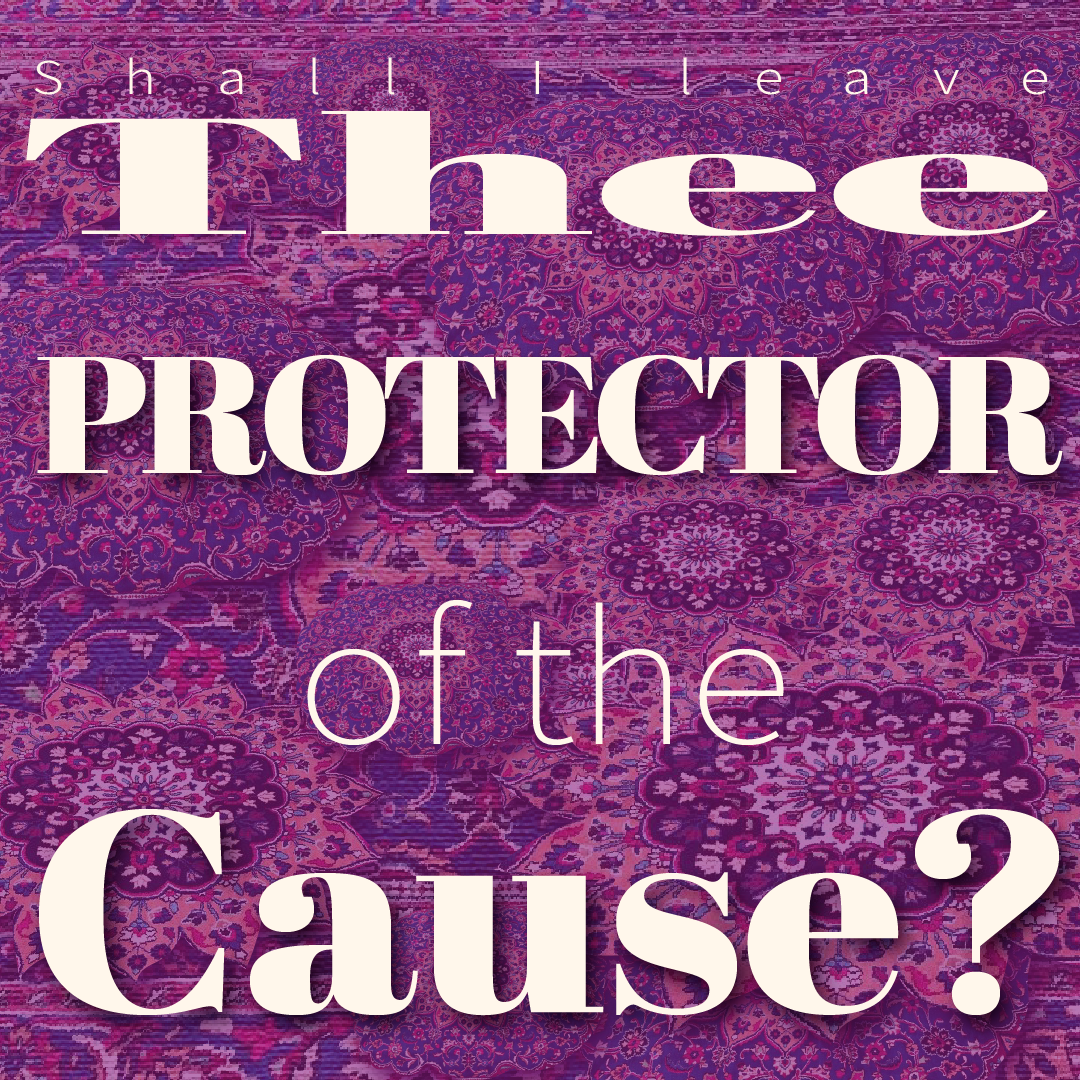
A tribute to the words of Ṭáhirih III. © Violetta Zein.
Ṭáhirih's spiritual acuity was beyond extraordinary. An astonishing fact is that she was among the first to recognize all three Central Figures of the Bahá'í Faith. She instinctively recognized the station of the Báb and declared her Faith after corresponding with Him, never having met Him. She instantly perceived Bahá'u'lláh’s true station as “Him Whom God shall make manifest.” And while she was living in Bahá'u'lláh’s home, Ṭáhirih intuitively discerned the station of 'Abdu'l-Bahá, while He was only a toddler.
During her stay, several events showed how deeply aware of His future rank she was. She became deeply attached and devoted to 'Abdu'l-Bahá, often holding and talking to Him. When Vaḥíd, an illustrious Bábí, called on her, she kept him waiting because she was with 'Abdu'l-Bahá. Believers came to her and asked: "Should you not leave the child and go and speak with him?" Ṭáhirih reportedly drew 'Abdu'l-Bahá even closer to her, and responded: "Shall I leave thee, Protector of the Cause, and go to see one of the followers of the Cause?"
The same day, 'Abdu'l-Bahá was still sitting on Ṭáhirih’s knees, behind the curtain separating the men from the women, when Ṭáhirih interrupted Vaḥíd who was discussing prophecies, and rebuked him, saying:
"O Siyyid this is not the time for arguments, for discussions, for idle repetitions of prophecies or traditions! It is the time for deeds! The day for words has passed!”
Martha L. Root, Ṭáhirih The Pure, pages 79-81.
Baharieh Rouhani Ma'ani, Leaves of the Twin Divine Trees, pages 92-93.
Lady Blomfield, The Chosen Highway. page 22.
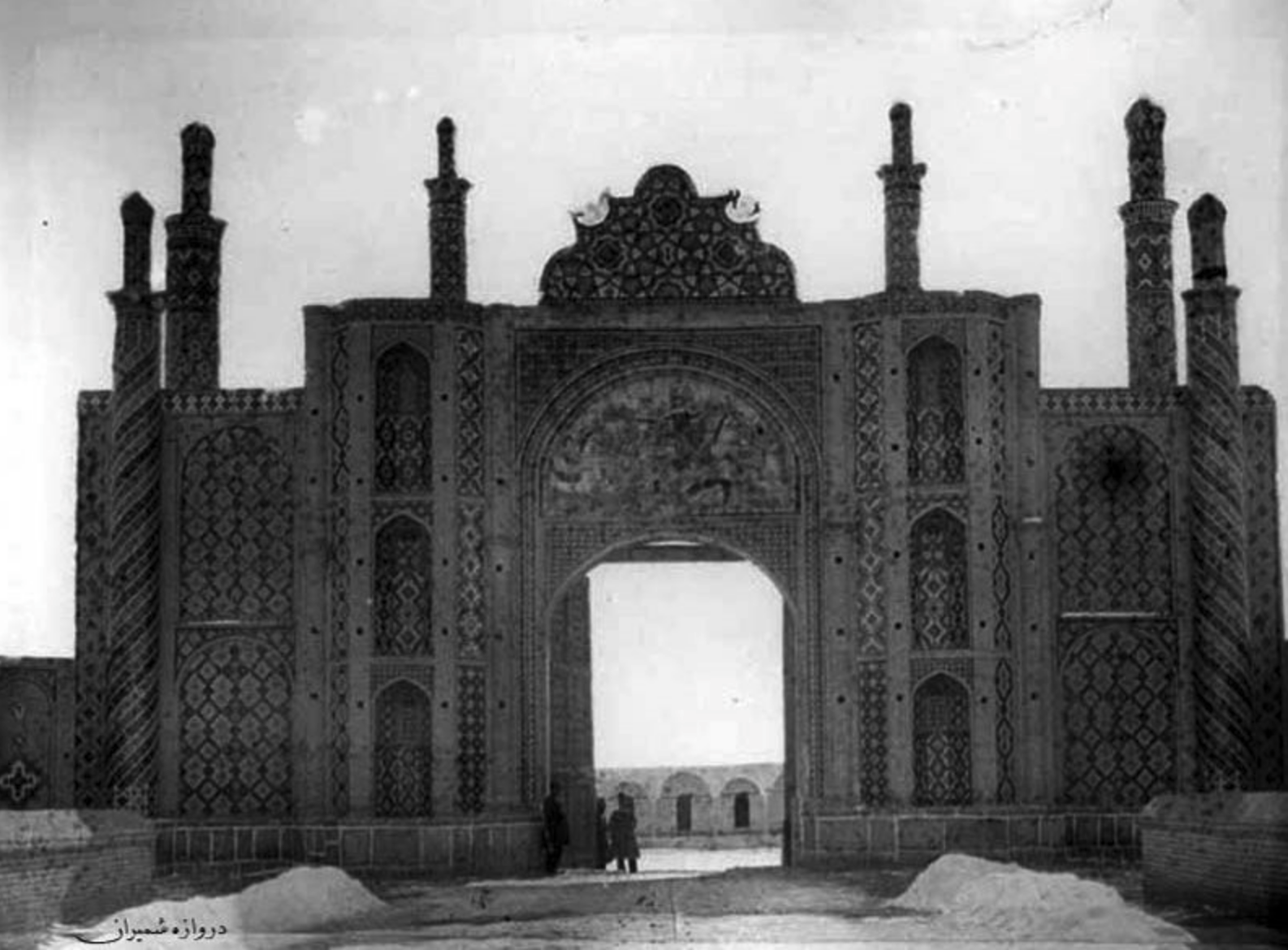
Early 1900s photograph of Shimrán gate, the gateway to the northern part of Persia, where Mírzá Musá brought Ṭáhirih. The gate was also close to the home of Bahá'u'lláh. Wikimedia Commons.
Ṭáhirih’s stay in Ṭihrán was spiritually potent but brief. A few days after her arrival, Bahá’u’lláh sent her to Khurásán with other Bábís who were headed in the same direction. Bahá'u'lláh would leave in a few days.
According to Bahá'u'lláh’s detailed instructions, Mírzá Músá took Ṭáhirih out of Ṭihrán through the northern-destinations Shimrán gate, close to Bahá'u'lláh’s house, and stopped in a delightful orchard 12 kilometers (8 miles) away. Bahá'u'lláh was greatly pleased to hear Mírzá Musá's report of Ṭahírih's safe departure and He baptized the orchard "Bágh-i-Jannat" or "Garden of Paradise,” adding:
"That house has been providentially prepared for your reception, that you may entertain in it the loved ones of God."
Ṭahírih spent a week in the “Garden of Paradise,” while supplies were being gathered, after which she and her companions began their long journey north, followed soon after by Bahá'u'lláh, who entrusted His family into the hands of His brother, Mírzá Músá.
The conference of Badasht was about to take place.
Nabíl, The Dawn-Breakers, pages 286-288.
Martha L. Root, Ṭáhirih The Pure, pages 81-82.
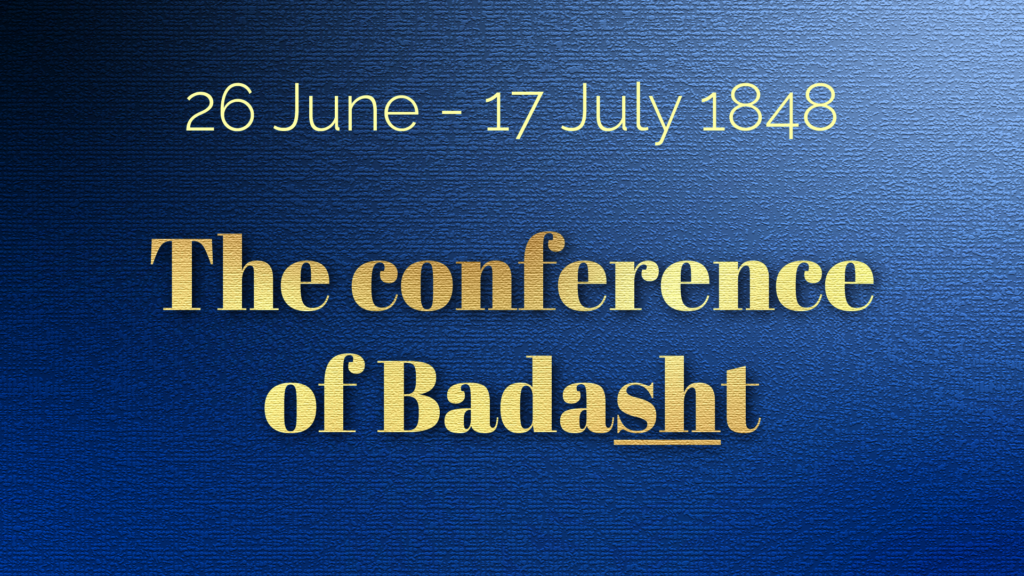
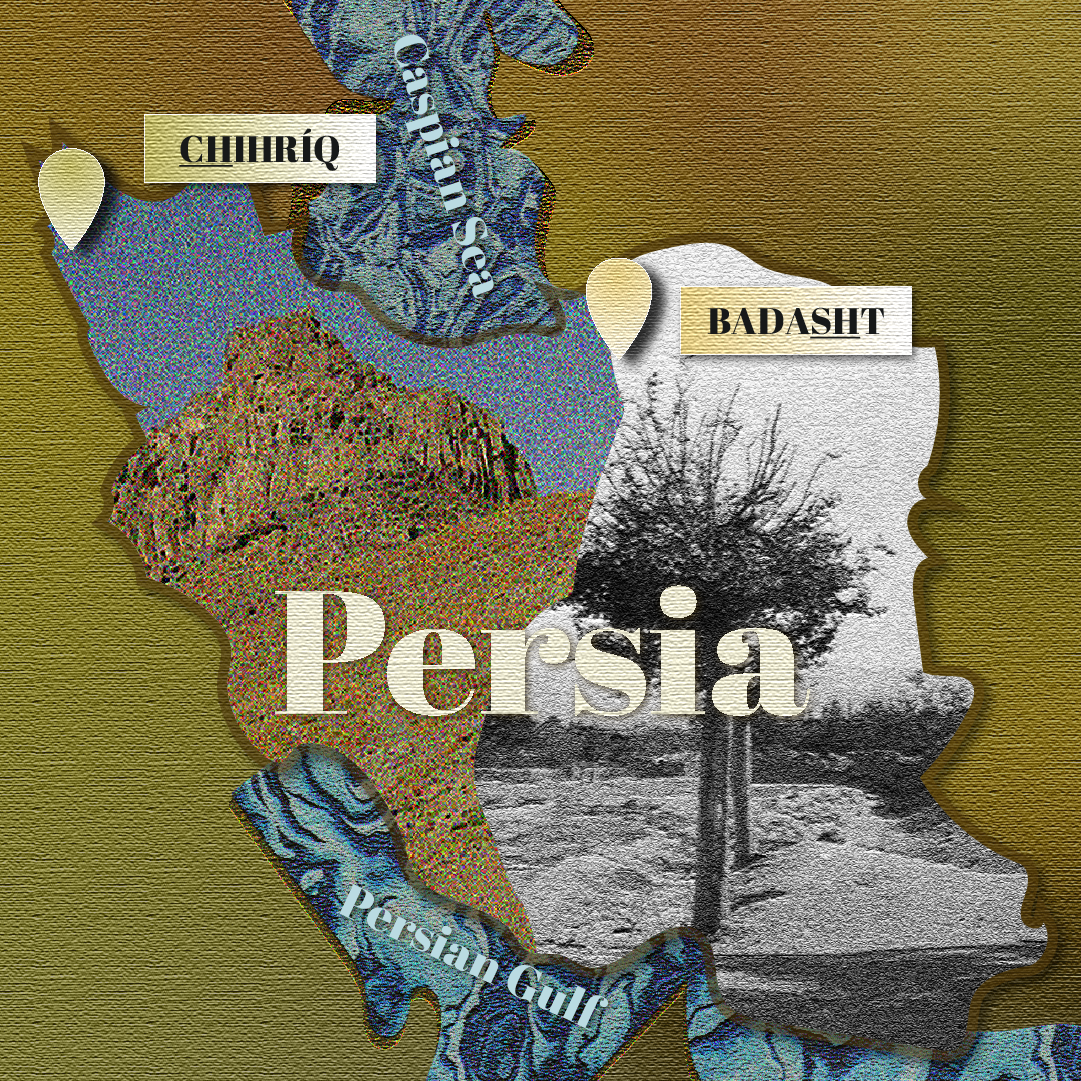
Spiritual energies at play: Map of Persia at the moment of the conference in Badasht, showing the location of the Báb in Chihríq. Image for the left half of the map of Persia: Chihríq fortress from Wikimedia Commons; Image for the right half of the map: the village of Badasht, © Bahá'í International Community, Bahá'í Media Bank. © Violetta Zein.
In the first three years of the Báb's ministry, He ushered in a new Dispensation, revealed laws and ordinances, and prepared the way for "Him Whom God shall make manifest." He had also been made prisoner, first in Máh-Kú, then in Chihríq. During three years, Bahá’u’lláh and the Báb communicated by letters continuously, and Bahá'u'lláh became the directing force behind the activities of the struggling Bábís. He not only taught and proclaimed the new Faith, but He deepened the believers, built community, fostered unity, guided, led, and encouraged. The conference of Badasht was the next step: it would officially inaugurate the Báb’s Dispensation.
The only person who could have organized, and discreetly presided over a conference of such critical importance was Bahá'u'lláh. Only He had the ability, the vast financial resources, and prolonged guidance from the Báb Himself. The historic conference of Badasht lasted 22 days, from 26 June to 17 July 1848, coinciding exactly with the transfer of the Báb from Chihríq to Tabríz where He would be interrogated and imprisoned for 40 days. Eighty-one Bábís attended, and Bahá'u'lláh rented three gardens: one for Ṭáhirih, one for Quddús, and one for Himself.
The main purpose of the conference in the hamlet of Badasht was to implement the revelation of the Bayán through a sudden, a complete and dramatic break with the traditions, ceremonies, and ecclesiasticism of the past.
This is the story of what happened during these three weeks.
Shoghi Effendi, God Passes By.
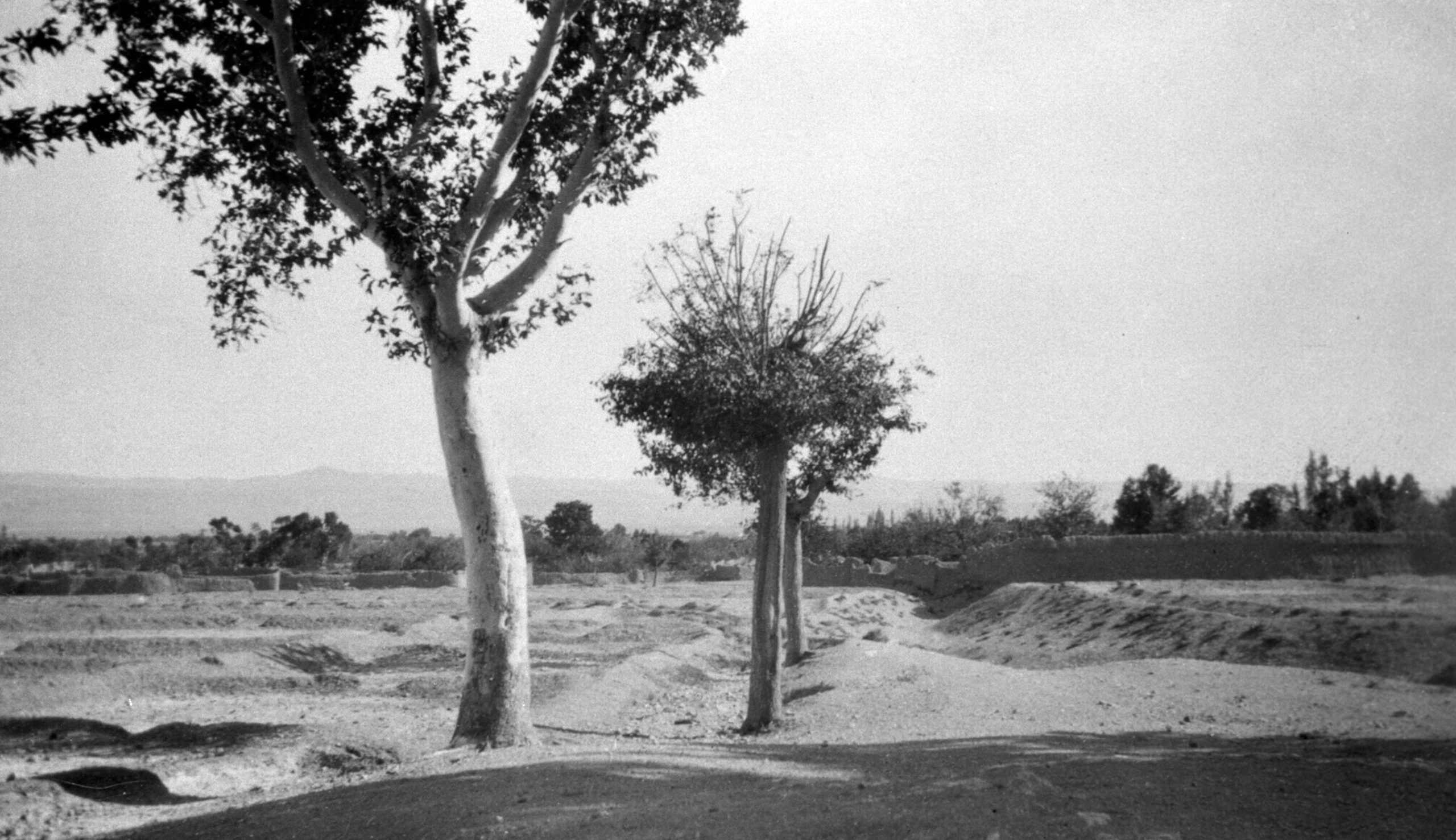
1930 photograph of the village of Badasht, where in 1848, Bahá’u’lláh hosted a gathering of the most eminent followers of the Báb, known as Bábís. The meeting established for the growing number of believers the independent character of the Bábí religion. © Bahá'í International Community. Bahá'í Media Bank.
Each day of the conference of Badasht, from 26 June to 17 July 1848, an old Muslim law would be abrogated, another long-established tradition repudiated, each day a further break from the culture of Islám and a new step towards ushering in the Bábí Dispensation.
On each of the 22 days of the conference, Bahá'u'lláh revealed a Tablet, which was chanted by Mírzá Sulaymán-i-Núrí in the presence of the assembled believers, though few of the participants in the conference were aware that Bahá'u'lláh's hand was guiding them to the far-reaching and fearlessly introduced new changes which occurred during the Conference, nor did they suspect Whose hand confidently and infallibly guided their activities.
It was in the course of the conference of Badasht that Bahá'u'lláh gave a new name to each of the 81 participants, a further symbol of the Bábí community entering a new era. Qurratu’l-‘Ayn was given the title Ṭáhirih, Mullá Muḥammad ʻAlí-i-Bárfurúshí became Quddús, and Mírzá Ḥusayn ‘Alí of Núr adopted the name Bahá'u'lláh. No one suspected Bahá'u'lláh was the One who had bestowed their new names on them, particularly since, after the conference, the Báb revealed a special Tablet to each of the participants, addressing them by the new names Bahá'u'lláh had conferred on them.
Nabíl, The Dawn-Breakers, page 293.

A tribute to the words of Ṭáhirih IV. © Violetta Zein.
One day, Bahá'u'lláh was kept in bed, due to illness. Quddús, and all the participants of the conference were gathered at His side. Suddenly, the fair and spotless Ṭáhirih, the very emblem of chastity, stepped into Bahá'u'lláh’s garden, approaching His pavilion, unveiled in front of the entire assembly of Bábí men. The effect was electric and instantaneous. The men assembled, all raised in Muslim culture, had never laid eyes on an unveiled woman that was not a close relative, and to their eyes, imbued with the last remnants of Muslim culture, Ṭáhirih had defamed herself and shamed the Bábí Faith.
But Ṭáhirih did not just remove her veil. She proclaimed the inauguration of the new Dispensation, breaking the last tie with Islám by freeing women from the veil. Ṭáhirih was the one who sounded the "Bugle" prophesied in the Qu'rán as she shouted these immortal words:“The Trumpet is sounding! The great Trump is blown! The universal Advent is now proclaimed!"
The reaction was extreme, ranging from shock and fear to fury and astonishment, one man slitting his own throat, and a few renouncing their Faith on the spot. Others stood before Ṭáhirih transfixed, speechless. The most knowledgeable remembered the prophecy about the return of the Twelfth Imám, the Báb, stating that the holy Fáṭimih, of whom Ṭáhirih was the incarnation, would appear unveiled on the Day of Judgment.
Thus it was Ṭáhirih who sounded the clarion call of the end the Abrahamic Dispensation and the inauguration of the Bábí Dispensation, which was to pave the way for the still-greater Dispensation of Bahá'u'lláh. By removing her veil, she had brushed away all obsolete Muslim conventions of the past, by removing the most distinctive and recognizable symbol of Islámic tradition, the veil. In one gesture, she had proclaimed the equality of men and women, and freed the minds and consciences of the Bábís of the cobwebs of Muslim traditions. Badasht was when Bábís discarded the Muslim prayer traditions and adopted a new, authentically Bábí, manner of praying.
Shoghi Effendi, God Passes By.
Nabíl, The Dawn-Breakers, pages 293-296.
'Abdu'l-Bahá in Memorials of the Faithful.
Baha'i Texts for Baha'is and non-Bahais: Fatimih will appear unveiled as the sign of his return
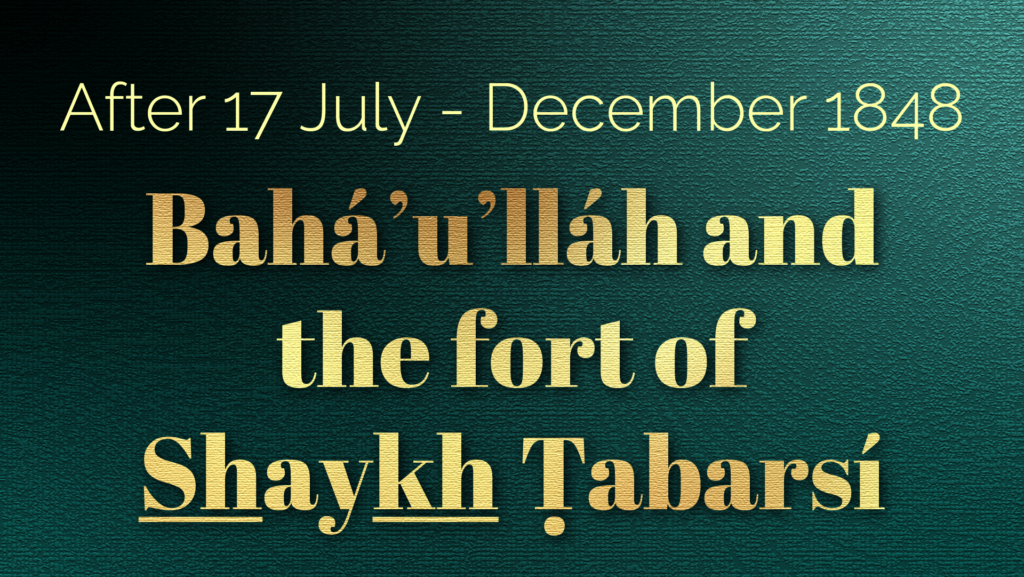
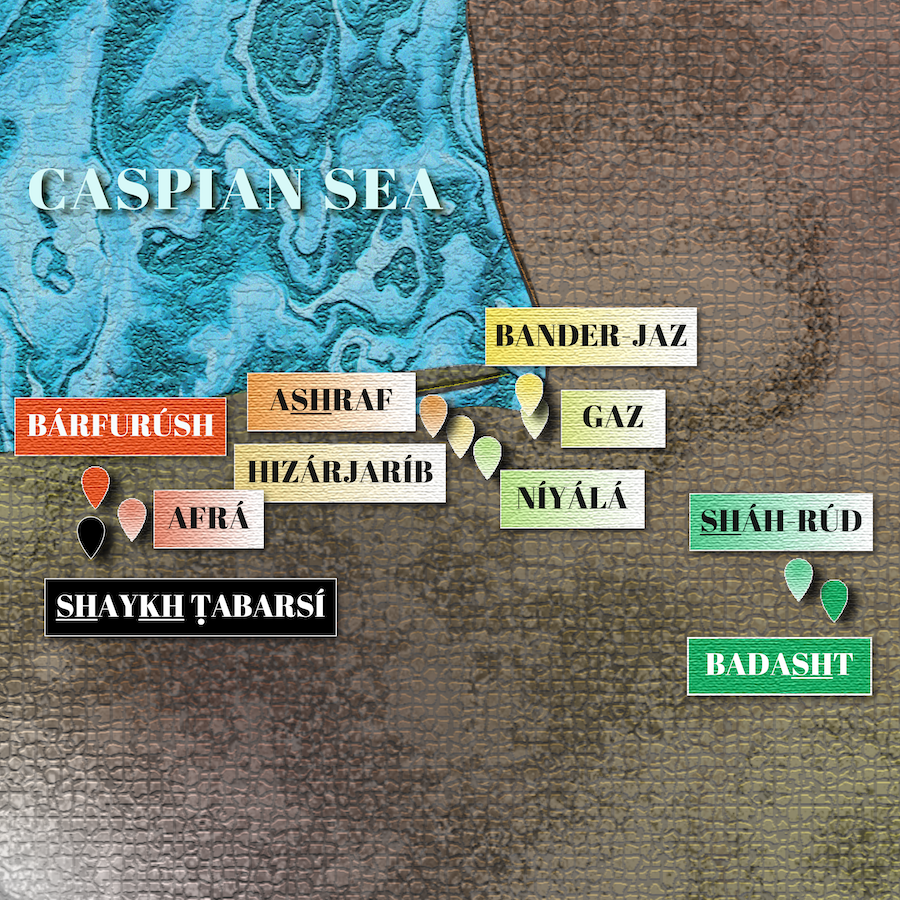
Map of Bahá'u'lláh's journey towards Shaykh Ṭabarsí inspired from the map in H.M. Balyuzi's book Bahá'u'lláh: The King of Glory, page 38. The missing location for the district Hizárjaríb was found on Google Maps. © Violetta Zein.
After the conference, the Bábís left Badásht and traveled towards the district of Núr, Ṭáhirih composing a new poem every day. They stopped in the village of Níyálá, at the foot of a mountain and were awoken at dawn by stones thrown from the top of the mountain by the local inhabitants. The attack was so fierce that the Bábís dispersed, and when it ended, Bahá'u'lláh only found Ṭáhirih and one other Bábí.
Bahá'u'lláh was able to speak to the villagers and convinced them of the cruelty and shamefulness of their act, then He entrusted Ṭáhirih to her new companion, and continued His own journey by easy stages, in His own words, "village by village, town by town" until He arrived in Núr.
Nabíl, The Dawn-Breakers, pages 297-298.
H.M. Balyuzi, Bahá'u'lláh: The King of Glory, pages 48-50.
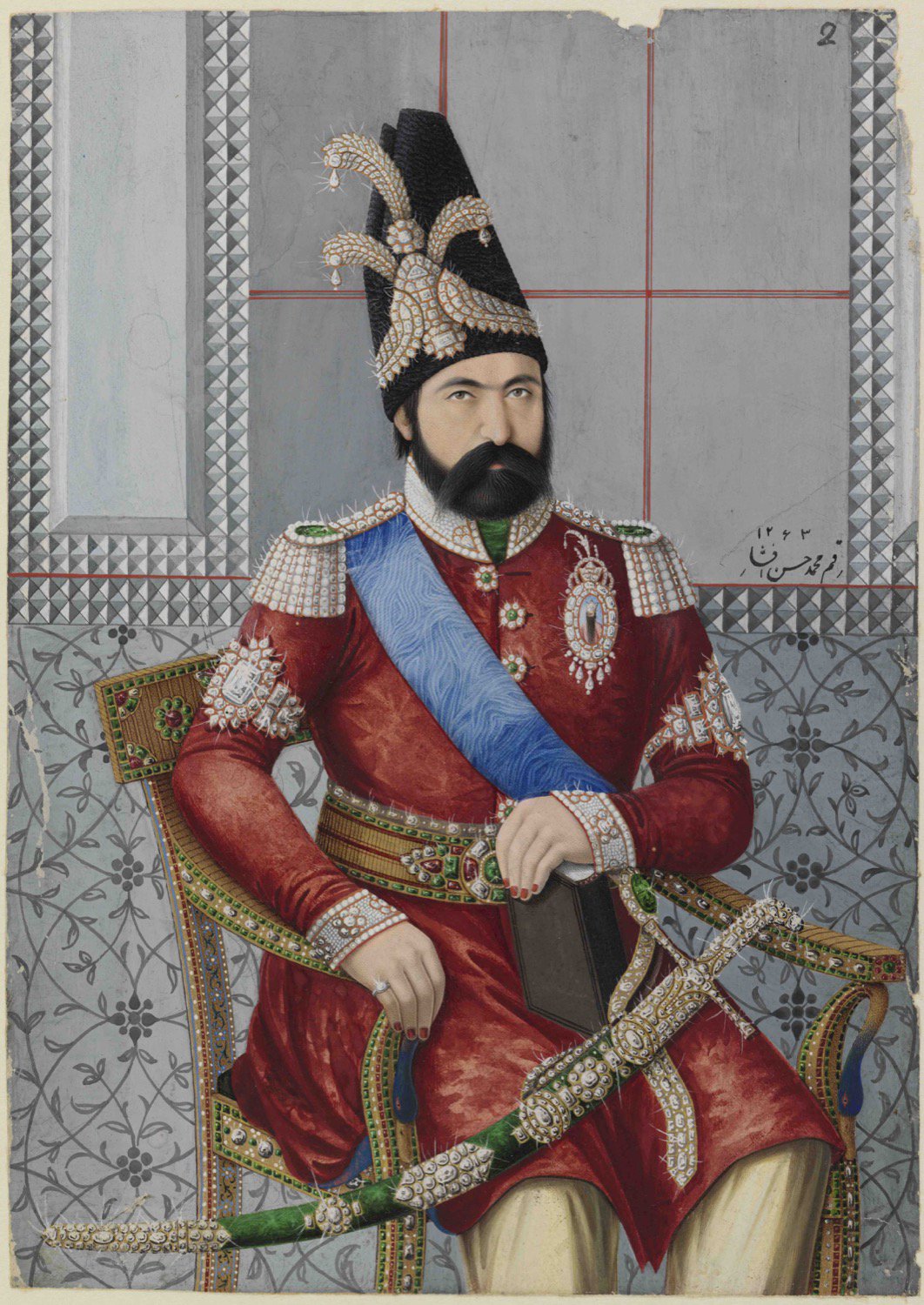
1847 Portrait of Muḥammad Sháh Qájár (who reigned 1834 - 1848) by Muhammad Hasan Afshar British Library BL Asian and African Pinterest.
Ḥájí Mírzá Áqásí, the Grand Vizir and Antichrist of the Bábí Revelation, had poisoned the mind of Muḥammad Sháh and convinced him to issue an edict for Bahá'u'lláh’s execution. The Sháh was reported to have said that he had been indulgent towards Bahá'u'lláh in honor of his father’s many services, but that “This time, however, I am determined to put him to death.”
Muḥammad Sháh had ordered one of the notables living in Bandar Jaz to arrest Bahá’u’lláh and bring him to Ṭihrán, but the man was deeply devoted to Bahá'u'lláh. The edict had arrived the day before the feast he had prepared to welcome Bahá'u'lláh to Bandar Jaz, so he kept the news to himself, but Bahá'u'lláh felt his sadness and distress and counselled him to put his trust in God.
The following day, Bahá’u’lláh was invited to one of the villages of a local notable, where he and his fellow notables and Russian officials insisted that Bahá'u'lláh board the Russian ship anchored in the port. Bahá'u'lláh refused.
The day after, as Bahá'u'lláh was proceeding to another village surrounded by a large crowd, a rider arrived from Ṭihrán and handed a paper to the daryá-bigí, Adjutant, of the Russian admiral. The Adjutant read the paper, and shouted joyfully in Mázindarání “Mardí bimurd!” (“Muḥammad Sháh is dead!”).
At that moment, the notable of Bandar Jaz who had received the Sháh’s edict for Bahá'u'lláh’s execution, took out the now-irrelevant imperial summons and shared it with Bahá'u'lláh and the local notables. That night, Bahá'u'lláh and His loyal friend held a great feast in the utmost joy until late into the night.
A man named Mírzá Masíḥ Núrí was the nephew of the army minister, and lived in a village very close to Takúr. Distantly related to Bahá'u'lláh through marriage, Mírzá Masíḥ Núrí had become a Bábí through Bahá'u'lláh and had frequented His home in Ṭihrán. According to 'Abdu'l-Bahá, Mírzá Masíḥ Núrí was "spirit personified," a man of rare spiritual qualities and intuition, who had exclaimed after reading a single verse of the Báb’s Writings: "Just let this Báb be mine; you may have everyone else."
Mírzá Masíḥ Núrí had accompanied Bahá'u'lláh on His way to Badasht, and on his return home, fell ill and passed away in Bandar-Jaz while Bahá'u'lláh, who also fell ill at the same time, was visiting the Caspian seaside town. Bahá'u'lláh revealed a Tablet of Visitation for him, held a memorial meeting in his honor, and later stated that Mírzá Masíḥ Núrí was buried between Sháh ‘Abdu’l-‘Aẓím and Imám-Zádih Ḥamzih.
Nabíl, The Dawn-Breakers, pages 297-298.
H.M. Balyuzi, Bahá'u'lláh: The King of Glory, pages 48-50.
Date of assassination of the Sháh: Wikipedia: Mohammad Shah Qajar.
Moojan Momen, Two Episodes from the Life of Bahá'u'lláh in Iran, published in Lights of Irfan, 20, pages 142 and 146, and see page 143 for 7 – 8 September 1848 date.
‘Abdu’l-Hamíd Ishráq-Khávarí (ed.), Má'idih-yi Ásmání (9 vols., Tehran: Mu’assisih–yi Millí-yi Matbú’at-i Amrí, 106 BE/1950) vol. 5, pages 170-171.
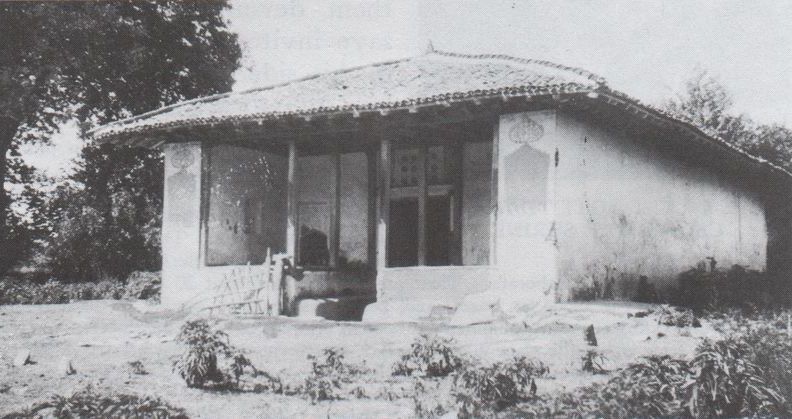
The fort of Shaykh Tabarsi. Source: Nabíl, The Dawn-Breakers, page 343.
Mullá Ḥusayn had been in Khurásán, notably been absent from the conference of Badasht, and he had just seen his life upended. The Báb had sent Mulláh Ḥusayn a Tablet bestowing on him the new name of Siyyid 'Alí, and enclosing a green turban, usually worn by direct descendants of the Prophet Muḥammad. The Báb had also ordered Siyyid 'Alí to travel to Núr carrying aloft the black standard of Islámic prophecies signalizing the advent of the promised Mihdí. In addition, the Báb had ordered Siyyid 'Alí to journey to Mázindarán to Quddus' aid holding aloft a black standard before him.
By the time Siyyid 'Alí (Mullá Ḥusayn) arrived in Bárfurúsh, he had gathered 300 believers under the black standard, but the hostility and vindictiveness of the leading Muslim cleric forced the band to take refuge behind a hastily-built fortress in the nearby mausoleum of Shaykh Ṭabarsí to defend themselves. When Bahá'u'lláh heard of this, He decided to visit Shaykh Ṭabarsí.
H.M. Balyuzi, Bahá'u'lláh: The King of Glory, pages 50-51.
Nabíl, The Dawn-Breakers, pages 347-349.
Wikipedia: Hadith of black flags.
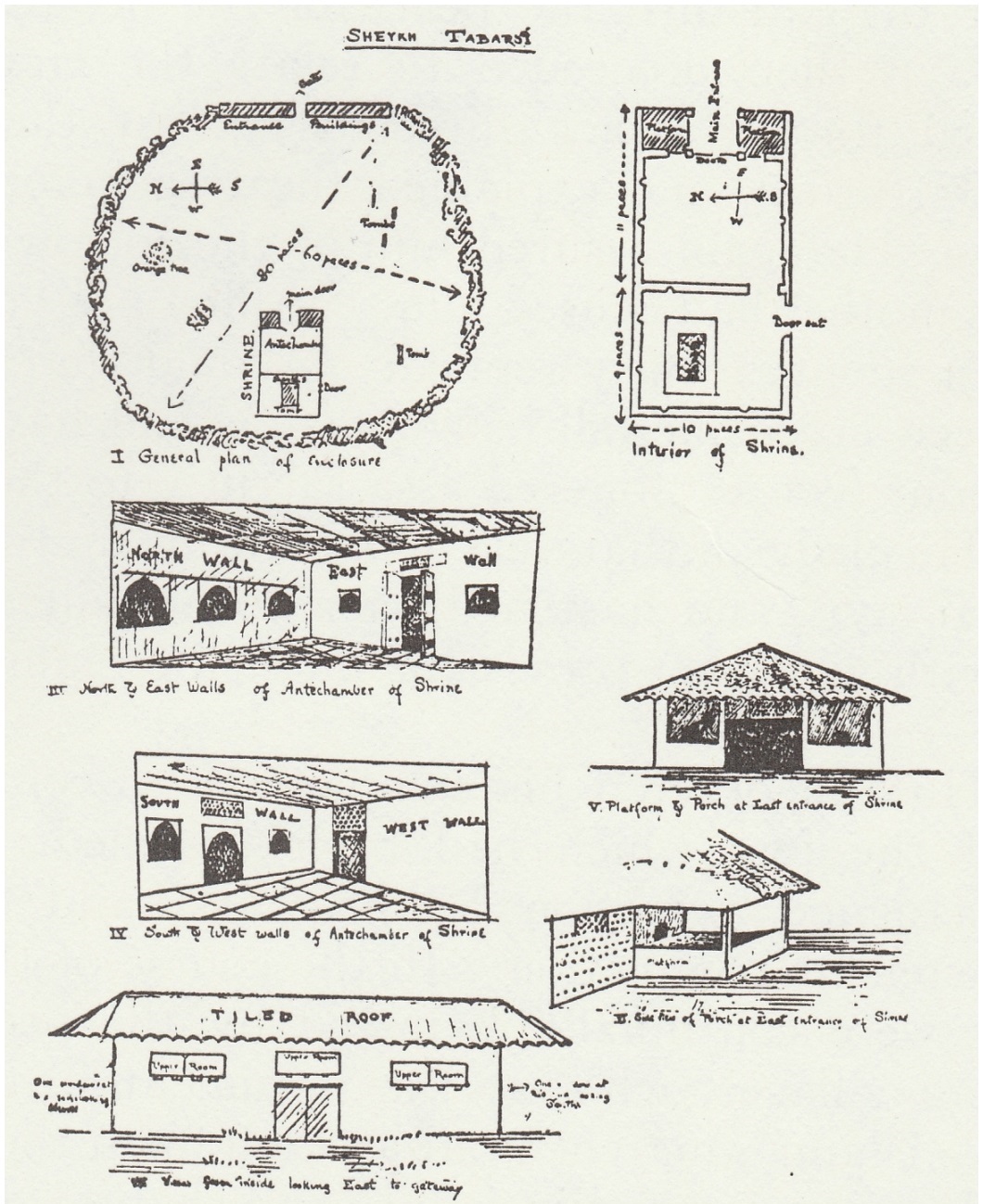
Plans and sketches of the fort of Shaykh Ṭabarsí showing the general plan of enclosure. Source: Nabíl, The Dawn-Breakers, page 348.
On His way to Shaykh Ṭabarsí, Bahá'u'lláh stopped in the nearby village of Afrá (see map), and ordered a sumptuous dinner for the Bábís secluded in the fortress, then sent someone to inform them He would be visiting that afternoon, and that they would be His guests that evening. The news sent exultation throughout the camp, and Síyyid 'Alí (Mullá Ḥusayn) rushed to begin preparations to welcome Bahá'u'lláh by sweeping and sprinkling the approach to the fort.
As soon as he saw Bahá'u'lláh approaching, Síyyid 'Alí rushed to Him, embraced Him tenderly and led Him to the seat of honor. His spiritual transformation had been complete and he saw Bahá'u'lláh clearly for the first time, recognizing His true station, as he gazed on His countenance, listening to Him speak, lost in admiration. Síyyid 'Alí showed Bahá'u'lláh exceeding reverence during His short visit to Shaykh Ṭabarsí, which lasted only a few days.
As Bahá'u'lláh was touring the fort of Shaykh Ṭabarsí, He commented on a certain person’s absence:
"The one thing this fort and company require is the presence of Quddús. His association with this company would render it complete and perfect."
Quddús had been arrested in Sárí, and Bahá'u'lláh then instructed Siyyid 'Alí to send six men to the town, requesting the release of Quddús, and assuring him:
"The fear of God and the dread of His punishment will prompt him to surrender unhesitatingly his captive."
Bahá'u'lláh, as He was leaving for Ṭihrán, urged the Bábís to be patient and resigned to God's will, and promised He would return with provisions and necessities:
"We shall once again visit you at this same spot, and shall lend you Our assistance. You have been chosen of God to be the vanguard of His host and the establishers of His Faith. His host verily will conquer. Whatever may befall, victory is yours, a victory which is complete and certain."
Bahá'u'lláh left Shaykh Ṭabarsí very soon after arriving, but He had left Ṭihrán in the spring of 1848, had organized the conference of Badasht from 26 June to 17 July 1848, and had traveled for three months to come and visit the Bábís at the fort . After six months where He had incurred heavy expenses for the conference and His travels, Bahá'u'lláh’s resources would have been depleted, which explains why He told the Bábís in Shaykh Ṭabarsí that He would go Ṭihrán and return.
H.M. Balyuzi, Bahá'u'lláh: The King of Glory, page 51.
Nabíl, The Dawn-Breakers, pages 347-349.
Moojan Momen, Two Episodes from the Life of Bahá'u'lláh in Iran, published in Lights of Irfan, 20, pages 144-146.
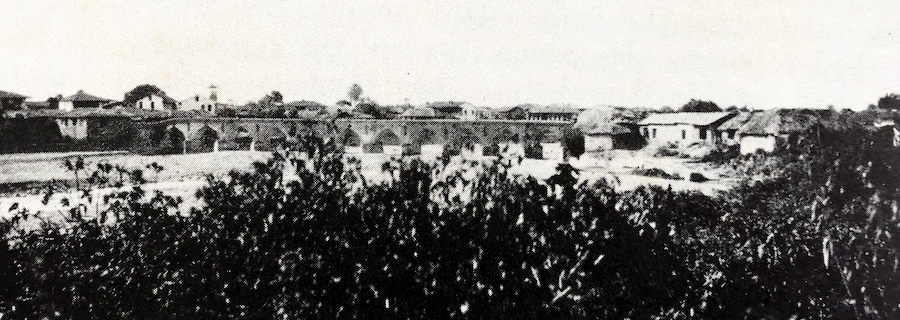
A view of Ámul. Source: Nabíl, The Dawn-Breakers, page 370.
In keeping His word to Síyyid 'Alí, Bahá'u'lláh left Ṭihrán for the fort of Shaykh Ṭabarsí in early December 1848 with a number of friends. The situation was tense. Strict orders had been issued that no help should reach the entrenched Bábís at the fort, and guards had been posted at all the access points to ensure their isolation.
Bahá'u'lláh decided to travel without stopping, in order to arrive at Shaykh Ṭabarsí in the dead of night, but His companions pleaded for a respite, and Bahá'u'lláh agreed, despite being aware that any delay was dangerous. They halted at a lonely house on the side of the road, 14 kilometers (9 miles) from Shaykh Ṭabarsí, and settled down for the night, while Bahá'u'lláh kept watch alone.
Alerted by spies, an officer surrounded the abandoned village with a considerable number of riflemen, and seized everything, telling Bahá'u'lláh they had received strict orders to arrest anyone in the area, and deliver them into the hands of the Governor of Ámul. Bahá'u'lláh responded:
“The matter has been misrepresented in your eyes. You have misconstrued our purpose. I would advise you to act in a manner that will cause you eventually no regret.”
Bahá'u'lláh’s calm and dignified manner aroused consideration and courtesy in the chief of the guards, who asked Bahá'u'lláh and his friends to mount their horses and follow him to Ámul. Passing by a river, Bahá'u'lláh signaled His companions to cast all their Bábí manuscripts into the water.
For the approximate date, The Dawn-Breakers page 368 and Habibur.com: Islamic Hijri Calendar For Muharram - 1265 Hijri (1848)
Nabíl, The Dawn-Breakers, pages 368-369.
H.M. Balyuzi, Bahá'u'lláh: The King of Glory, page 56..
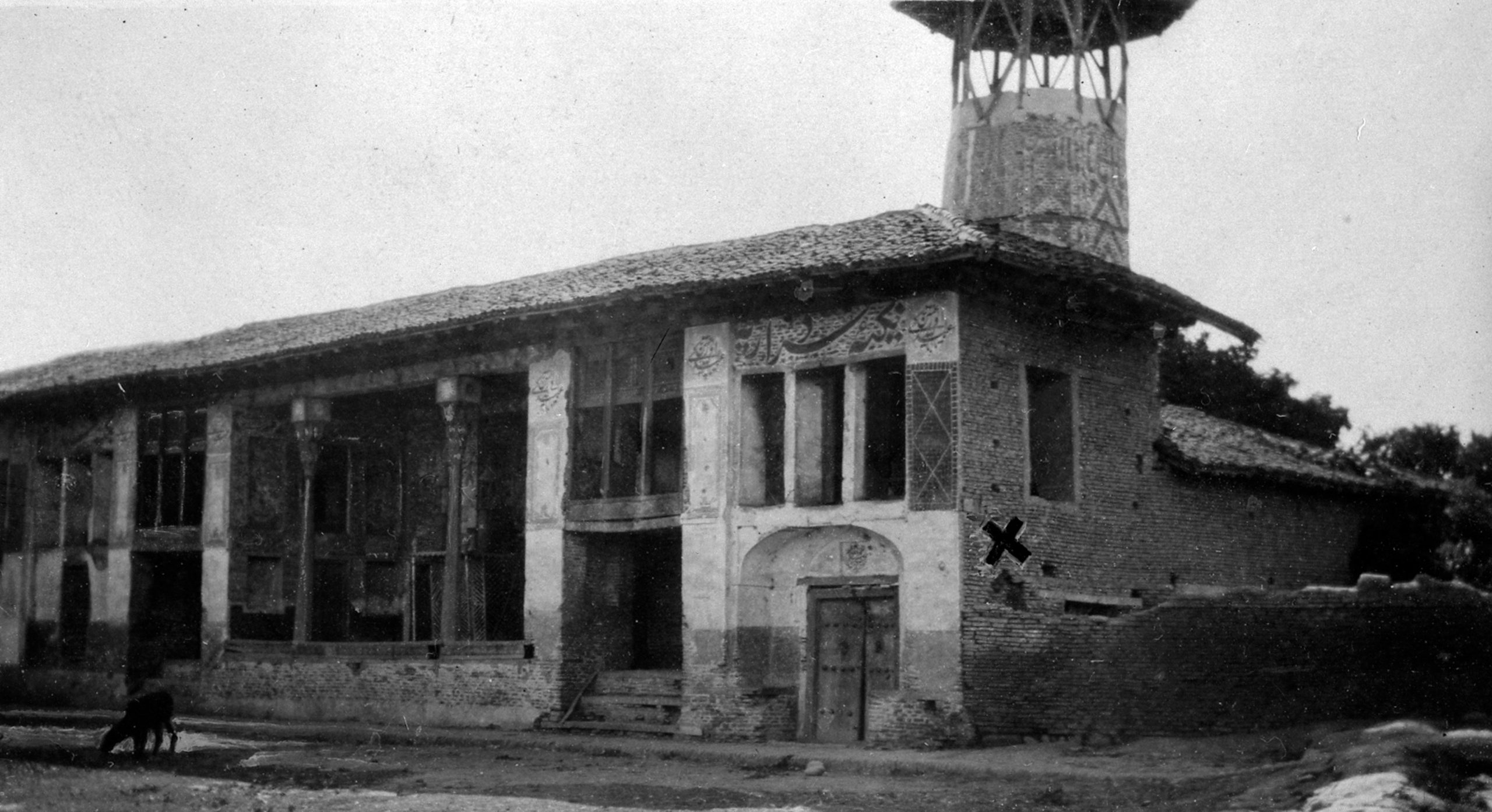
The mosque in Ámul where Bahá'u'lláh was interrogated and tortured. The X on the left-facing wall indicates where the Deputy-Governor made a hole in order to bring Bahá'u'lláh to the Governor's mansion. Source: Bahá'í Media Bank © Bahá'í International Community.
Bahá'u'lláh was led to the mosque and was seated under the arches while two merchants from Shíráz took their places. In the course of Bahá'u'lláh’s interrogation, He declared: “We are innocent of the guilt they impute to us. Our blamelessness will eventually be established in your eyes. I would advise you to act in a manner that will cause you eventually no regret.”
The Deputy-Governor asked the ‘ulamás present to ask any question they wanted, and Bahá'u'lláh gave clear and convincing answers to each. When they mocked the writings of the Báb which they had found in one of Bahá'u'lláh’s companions’ belongings, Bahá'u'lláh retorted that the Báb was quoting Imám ‘Alí replying to His companion, Kumayl-ibn-i-Zíyád, and proceeded to expound on the subject, stunning the ‘ulamás into silence.
A furious siyyid demanded the Bábís be put to death, his request was seconded, and the Deputy-Governor started feeling pressured to act on it. Any hesitation would have weakened him politically, so he ordered an acceptable alternative to calm the angry mob, torture by bastinado, adding that they would be kept in prison until the return of the Governor before being sent to Ṭihrán, where they would receive their rightful punishment at the hands of the Sháh.
Nabíl, The Dawn-Breakers, pages 369-372.
H.M. Balyuzi, Bahá'u'lláh: The King of Glory, pages 56-58.
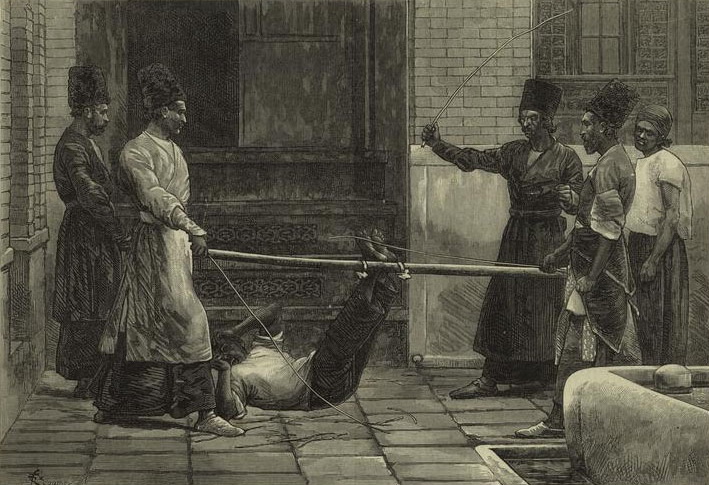
The bastinado (foot-whipping) torture in Persia in 1872. Engraving by Félix Regamey. Source: Wikimedia Commons.
The bastinado was the most common form of torture in 19th century Persia, even applied as a punishment in schools. The bastinado, or foot-whipping, is a deeply sadistic form of torture, administered in order to cause the maximum amount of pain by whipping the soles of the feet, which contain the most pain receptors in the entire body, with over 7,000 nerve endings.
The victim of bastinado is made to lie with their torso on the ground, and their ankles tightly bound to a horizontal pole, held up high by two men on either end, exposing the soles of their feet. The person administering the bastinado repeatedly and incessantly then whips the soles of their feet with a whip, a cane or a switch. Prolonged, the bastinado can cause the skin of the victim’s feet to be torn off, and they are then forced to walk on bleeding feet, increasing the pain of the torture. Five months before Bahá'u'lláh was tortured in Ámul, the Báb was bastinadoed in Tabríz.
Bahá'u'lláh interceded for two of his companions who were to be tortured, protesting they were only a groom and a tradesman, and spoke to those assembled: “None of these men are guilty of any crime. If you insist on inflicting your punishment, I offer Myself as a willing Victim of your chastisement.” The Deputy Governor was reluctantly forced to order Bahá'u'lláh to be bastinadoed when he had originally intended the torture for His companions. Bahá'u'lláh was bastinadoed in the namáz-khánih of the mujtahid of Ámul until His feet bled, in front of a crowd of four thousand spectators.
Description of the bastinado, also called falanga, from Dignity: The Danish Institute Against Torture: Falanga
Wikipedia: Foot-whipping.
The United Kingdom's National Health Service, Bridgewater Community Healthcare: Podiatry: Foot Facts PDF Information Sheet.
Nabíl, The Dawn-Breakers, pages 375-378.
Shoghi Effendi, God Passes By.
H.M. Balyuzi, Bahá'u'lláh: The King of Glory, pages 57-60.
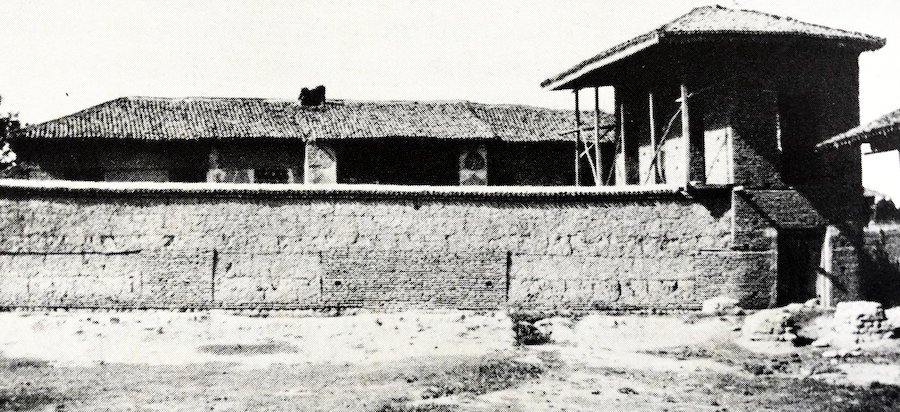
The Governor's mansion in Ámul. Source: Nabíl, The Dawn-Breakers, page 370.
The Deputy-Governor, determined to protect Bahá’u’lláh from the assault of the bloodthirsty mob, ordered his attendants to open a hole in the wall of the mosque and transfer Bahá’u’lláh to the Governor’s house. On their way, a crazed Siyyid launched himself at Bahá'u'lláh to club Him and the Deputy-Governor had the presence of mind and the courage to interpose himself, stopping the lunatic, and lead Bahá'u'lláh to safety.
In his home, the Deputy-Governor profusely apologized to Bahá'u'lláh for His imprisonment and torture in Ámul and confessed being tormented by the devious acts of the people of the city. He served Bahá'u'lláh with kindness and devotion, saying: “I am far from regarding you a prisoner in my home. This house, I believe, was built for the very purpose of affording you a shelter from the designs of your foes.”
Bahá'u'lláh would later refer to his brief stay in the Deputy-Governor’s home in exalted terms: "No prisoner has ever been accorded the treatment which I received at the hands of the acting governor of Ámul. He treated Me with the utmost consideration and esteem. I was generously entertained by him, and the fullest attention was given to everything that affected My security and comfort.”
One night, as Bahá’u’lláh was still in the Governor’s house, they were suddenly awakened by the loud sounds of a crowd outside the gate and learned that the Governor had returned to Ámul. To the surprise of the Bábís, they heard the Governor loudly reprimanding those who had mistreated them, asking them for any reason or evidence for having treated them so disrespectfully.
The Governor had visited the fort of Shaykh Tabarsí and had been so moved by the heroism of the Bábís that it had transformed his heart and mind, and he had become filled with admiration for the Bábí faith, which he had previously despised. Utterly chastened, the Governor respectfully approached Bahá’u’lláh and apologized for the insolence of his constituents, serving Him with extreme devotion, and speaking in glowing terms of Siyyid ‘Alí (Mullá Ḥusayn)’s courage and nobility. A few days later, he arranged for the safe departure of Bahá'u'lláh and His companions for Ṭihrán.
Note: Neither in the Dawn-Breakers nor in God Passes By are the Acting-Governor/Deputy Governor or Governor of Ámul named.
Nabíl, The Dawn-Breakers, pages 374-376.
H.M. Balyuzi, Bahá'u'lláh: The King of Glory, pages 57-60.
Bahá'u'lláh, Epistle to the Son of the Wolf.
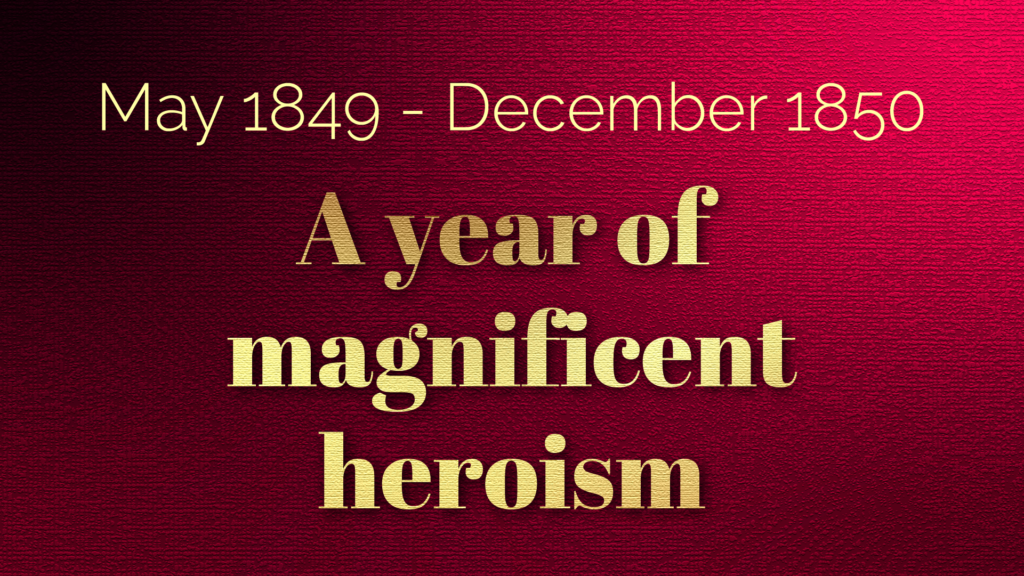
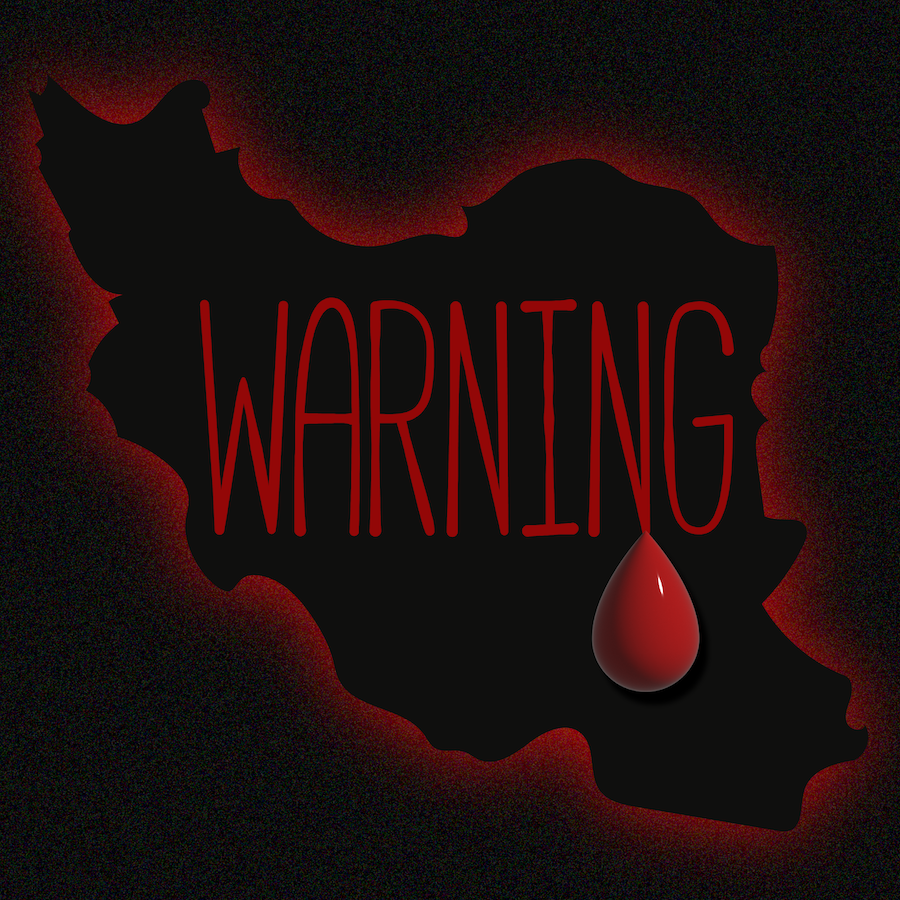
© Violetta Zein.
This section is not appropriate for children under the age of 12, and persons sensitive to graphic descriptions of martyrdom.
TITLE
The title of this section comes from The Dawn-Breakers, page 464: "That year, rendered memorable by the magnificent heroism which those staunch supporters of His Faith displayed, not to speak of the marvellous circumstances that attended His own martyrdom, must ever remain as one of the most glorious chapters ever recorded in that Faith’s blood-stained history."
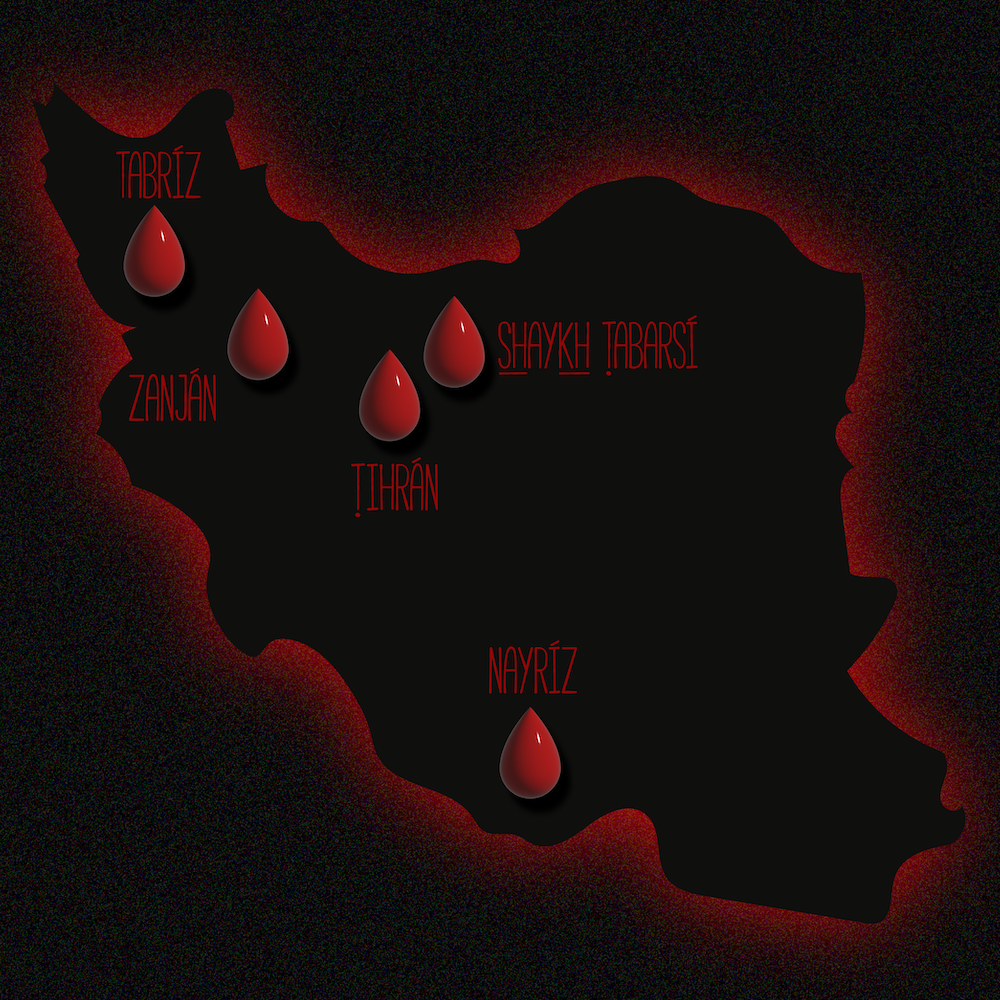
A spiritual map of the darkness that enshrouded Persia in 1849 - 1850, inspired by these words of Nabíl: "the whole country was enveloped in darkness." The points on the map are taken from the list of cruelties and atrocities listed by Nabíl in The Dawn-Breakers on pages 463-464. © Violetta Zein.
"From Khurásán, on the eastern confines of Persia, as far west as Tabríz, the scene of the Báb’s martyrdom, and from the northern cities of Zanján and Ṭihrán stretching south as far as Nayríz, in the province of Fárs, the whole country was enveloped in darkness, a darkness that heralded the dawning light of the Revelation which the expected Ḥusayn was soon to manifest, a Revelation mightier and more glorious than that which the Báb Himself had proclaimed."
This memorable year between May 1849 and December 1850, was filled with momentous events, in a storm that raged with exceptional violence. The storm brought in its wake unspeakable massacres, but also immortal stories of the magnificent heroism displayed by the heroes and heroines of the Bábí Dispensation, courageous martyrs, who, through the purity of their unshakeable Faith heralded one of the most glorious chapters in the history of their Cause. Their blood stained the soil of Persia, and the atrocities perpetrated by a cruel and bloodthirsty enemy blackened the face of the land.
Nabíl, The Dawn-Breakers, pages 463-464.
H.M. Balyuzi, Bahá'u'lláh: The King of Glory, page 61.
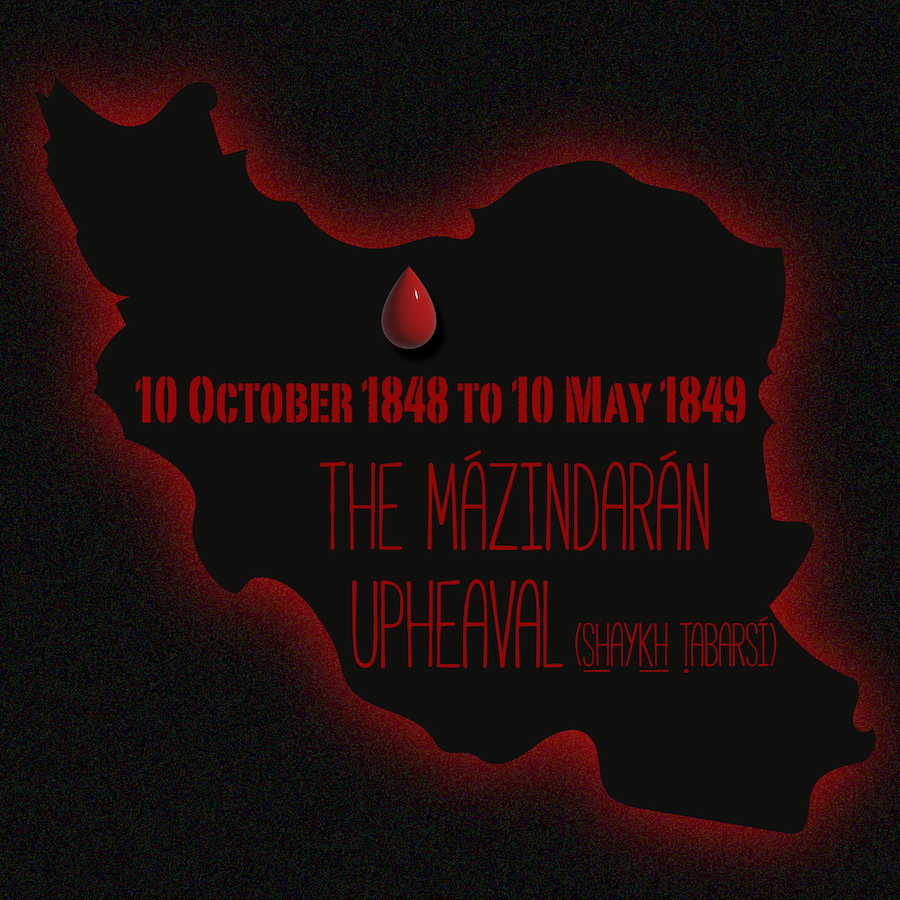
© Violetta Zein.
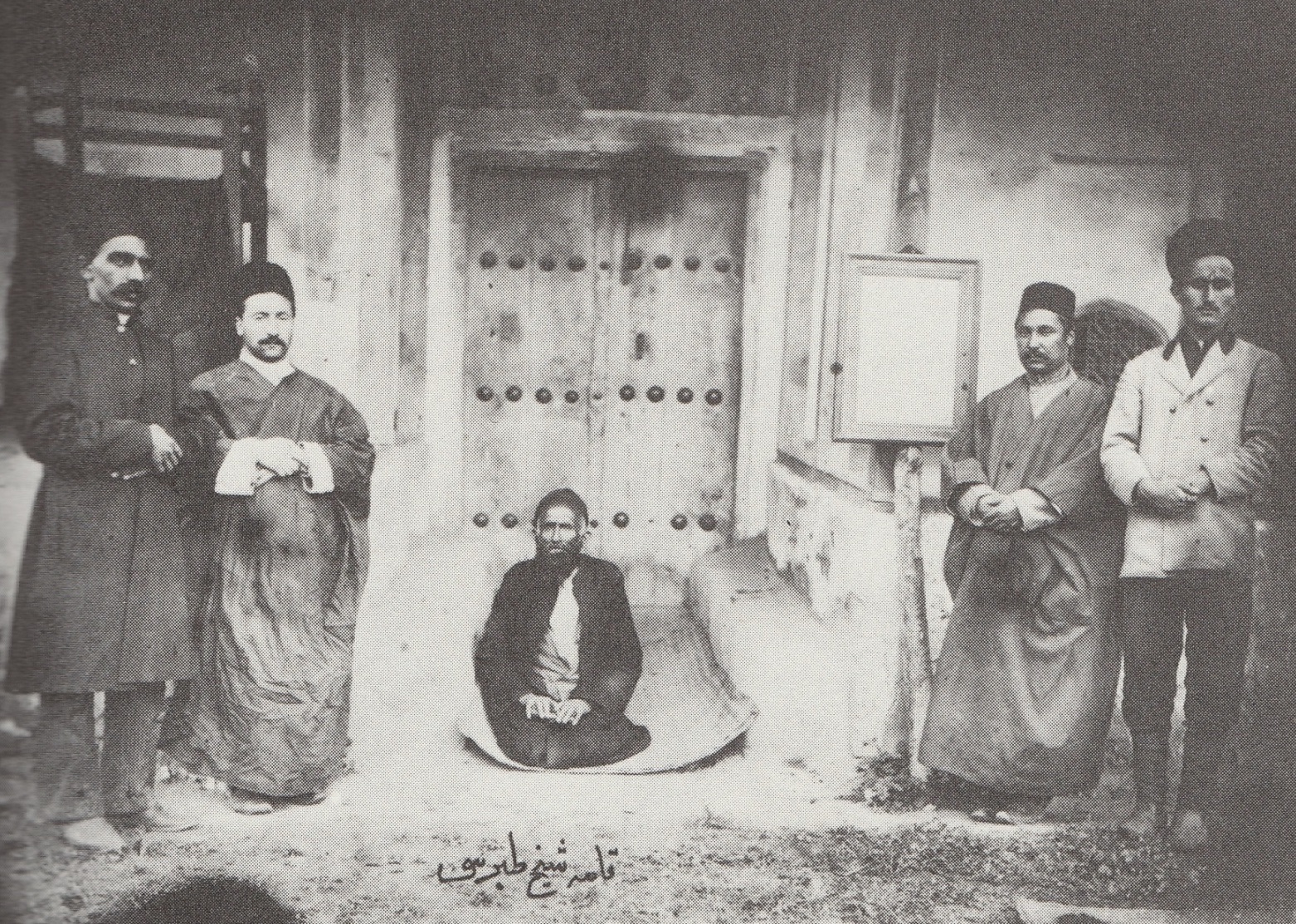
Entrance to the Shrine of Shaykh Ṭabarsí. Source: Nabíl, The Dawn-Breakers, page 346.
In early 1850, the savage persecution of the Bábís erupted with unprecedented ferocity. The siege of the fort of Shaykh Ṭabarsí, also known as the Mázindarán upheaval began on 10 October 1849. Close to 600 Bábís defended themselves from nearly 10,000 troops for seven months, during which Siyyid 'Alí (Mullá Ḥusayn) was martyred. The siege ended when the Bábís were betrayed by a false truce and massacred on 10 May 1849. Eight Letters of the Living, including Quddús, were martyred, along with at least 100 Bábís.
Wikipedia: Battle of Fort Tabarsi
Sepehr Manuchehri, Brief Analysis of the features of Bábí Resistance at Sheikh Tabarsi (1998-10) (The estimate of a minimum of 100 casualties is from this paper, because it estimates the number of Bábís at 313, when modern scholars believer the number to be closer to 600).
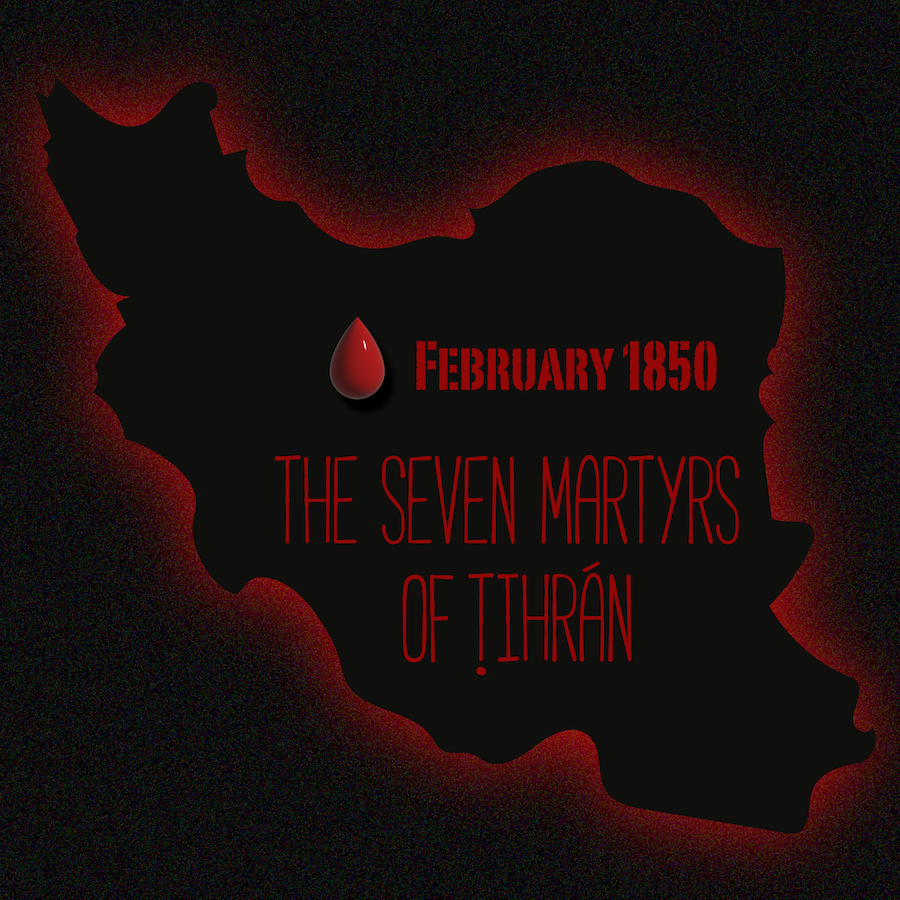
© Violetta Zein.
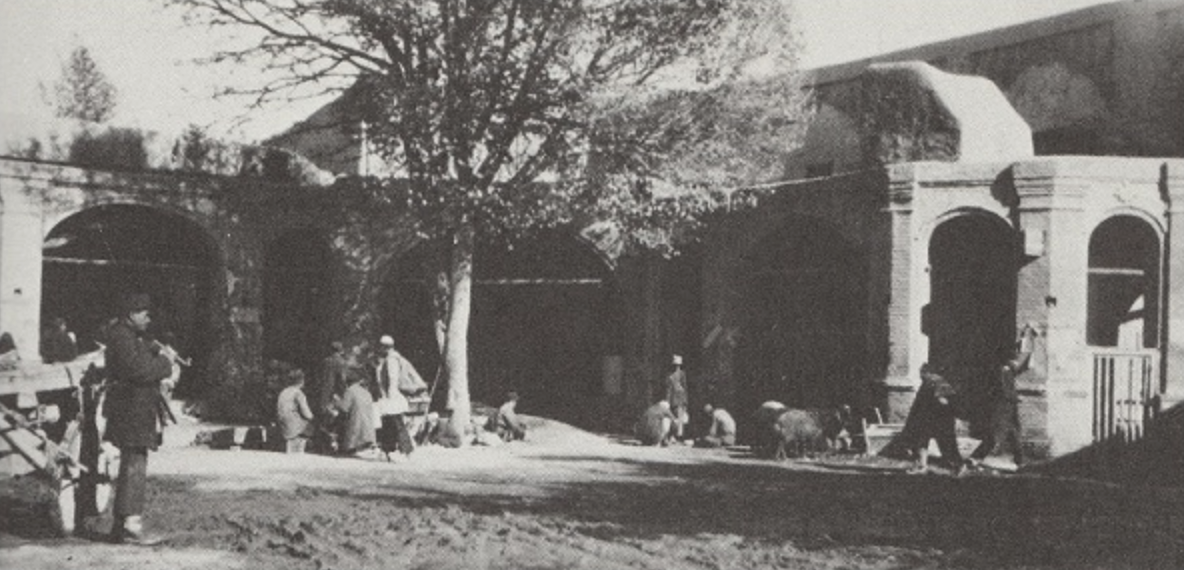
The Sabzih-Maydán of Ṭihrán where the Seven Martyrs of Ṭihrán were beheaded. Many other Bábís suffered martyrdom in this square. Nabíl, The Dawn-Breakers, page 457.
After the siege of Shaykh Ṭabarsí, simply being a Bábí could be a death sentence. Fourteen eminent Bábís were imprisoned in Ṭihrán in February 1850, and seven recanted their faith. The remaining seven prisoners included a maternal uncle of the Báb, and all were prominent in their professions. Merchants offered large sums of money to spare their lives, but all walked joyfully to the executioner’s block, where they were beheaded. After their savage martyrdom, the crowd desecrated their remains.
Shoghi Effendi, God Passes By.
Nabíl, The Dawn-Breakers, page 446.
Encyclopaedia Iranica: Martyrs, Babi.
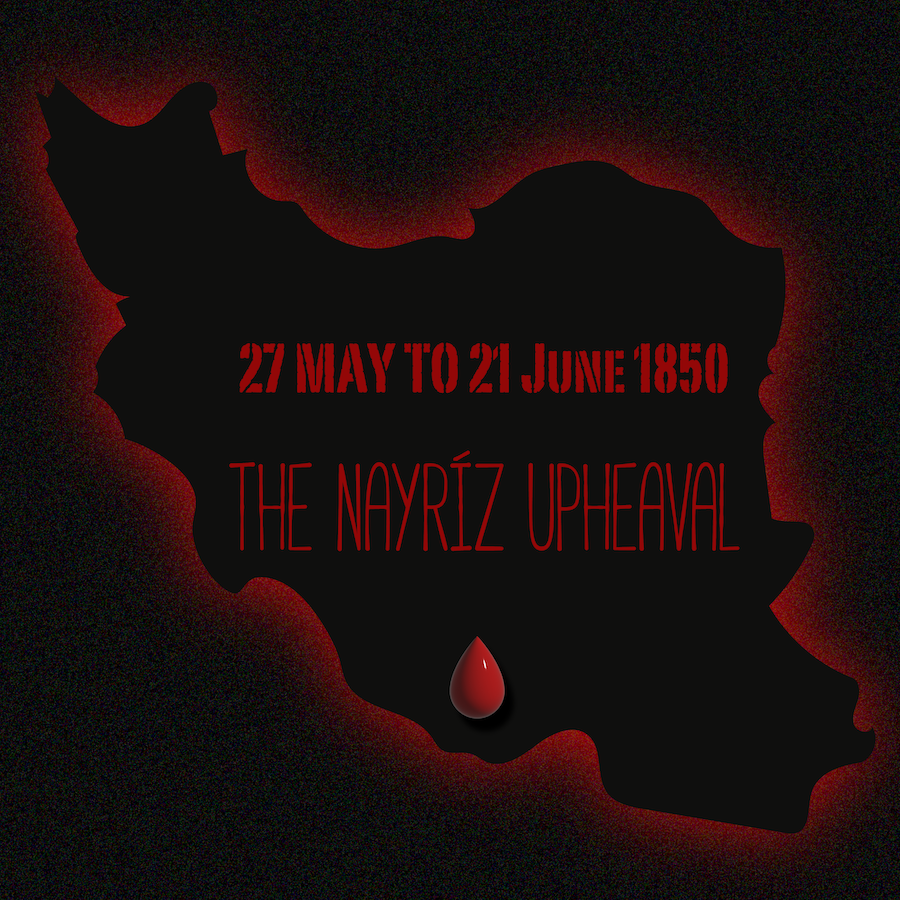
© Violetta Zein.
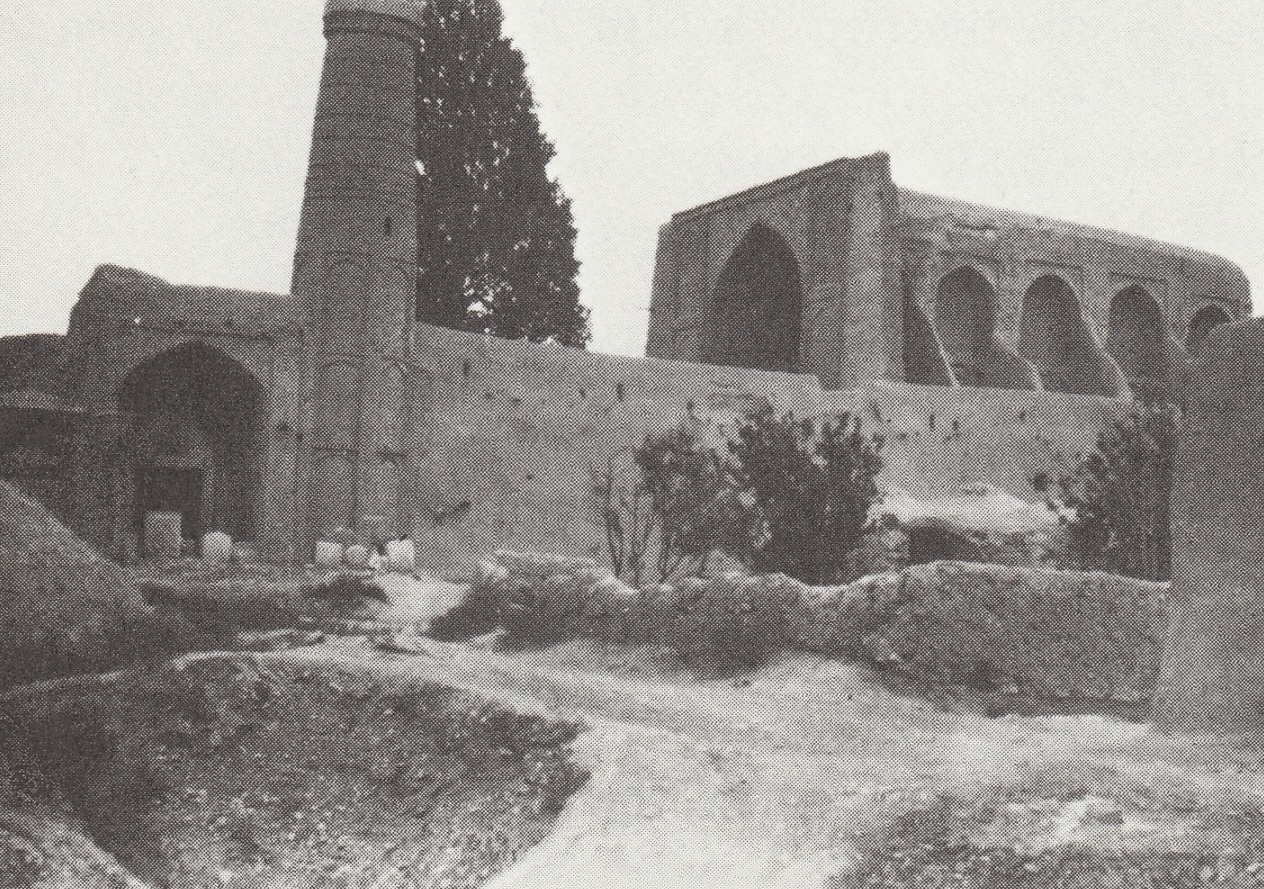
The mosque where Vaḥíd proclaimed the Báb's message, in Nayríz. Source: Nabíl, The Dawn-Breakers, page 493.
Leaving Bahá'u'lláh’s home in Ṭihrán, Vaḥíd arrived in Nayríz on 27 May 1850 and immediately walked into the mosque and with an electrifying speech, summoned the rapt congregation to the Bábí Faith. No less than a thousand people embraced the Cause on the spot. Soon, the Governor had raised an army of 1,000 men to eradicate the Bábís. Vaḥíd and twenty of his companions occupied the fort of Khájih and fortified the walls to defend themselves. The battle lasted nearly a month, until 21 June 1850, during which time sixty Bábís were martyred. The siege ended when the Governor lied to the Bábís. Vaḥíd was savagely murdered when his turban was tied to a horse and he was dragged through the streets until he died.
After the Nayríz upheaval, 5,000 men were commissioned to slaughter Bábís, and they were deeply sadistic, killing women and children in monstrous ways, maiming, torturing and killing Bábís in countless vicious and perverted ways.
Nabíl, The Dawn-Breakers, pages 465-500.
Shoghi Effendi, God Passes By.
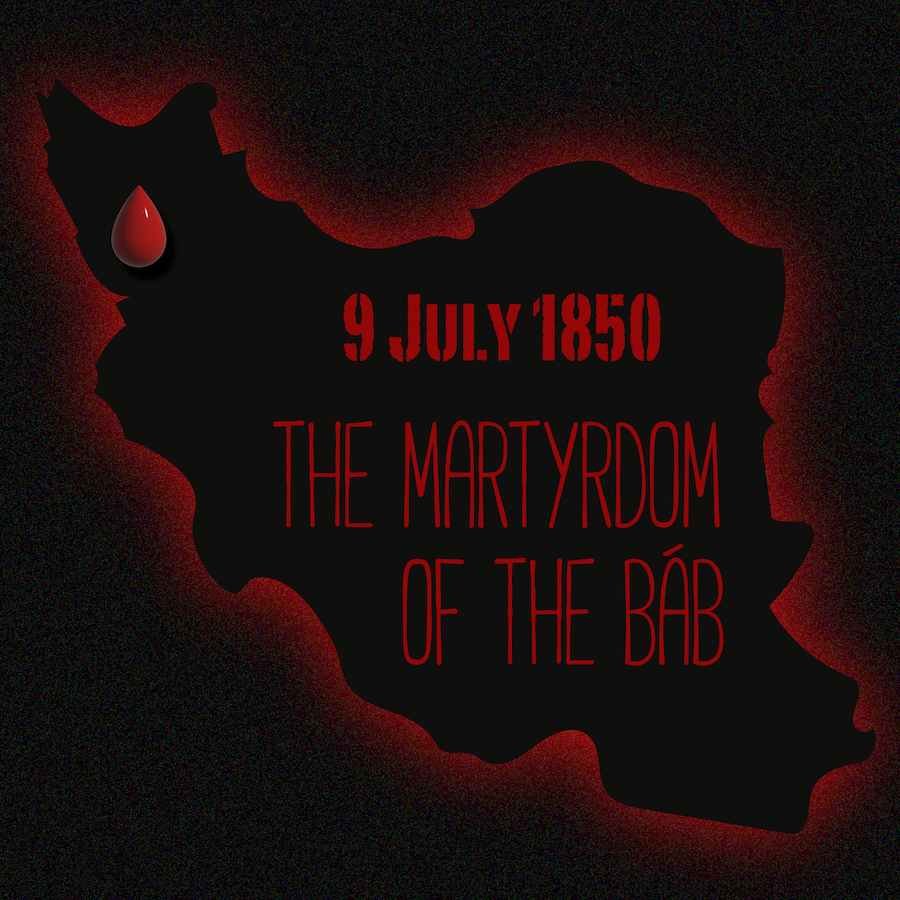
© Violetta Zein.
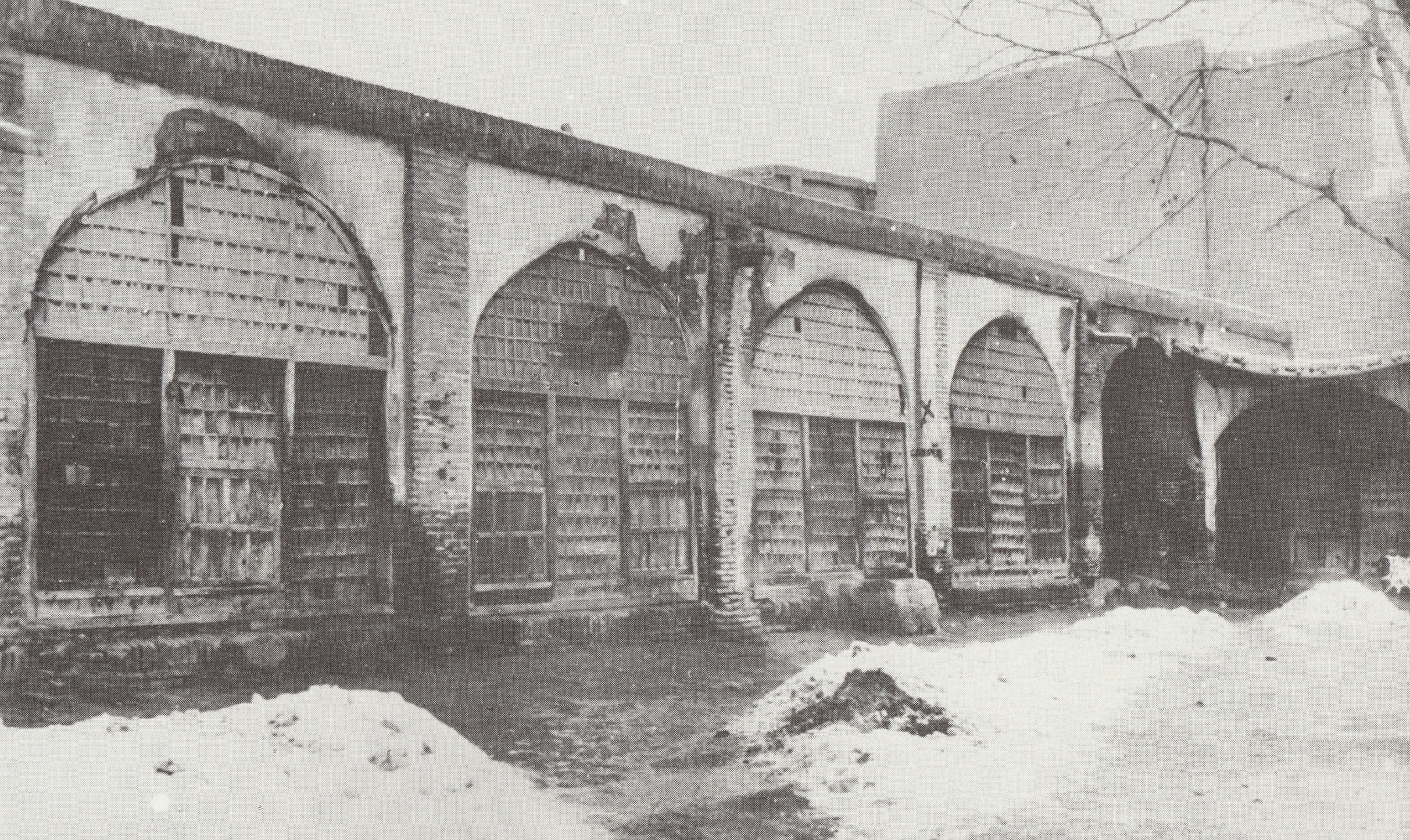
The barrack-square in Tabríz where the Báb suffered martyrdom. The spot on the pillar on the right, marked with an X, indicates the exact spot where the Báb and Anís were suspended and shot by firing squad. Source: Nabíl, The Dawn-Breakers, page 512.
The wave of bloodthirsty massacres that culminated in Nayríz in late June 1850, emboldened the enemies of the Faith to attempt the complete destruction of the Bábí Faith by choking the powerful spiritual stream at its source, and executing the Báb.
On 9 July 1850 at noon, as the Báb was being led to the courtyard of the barracks, the young and devout Anís flung himself forward, begging to be martyred with Him. They were strung up to the wall by cords, and the conflicted Sám Khán, colonel of the Christian regiment, ordered shots fired. When the smoke from the 750 rifles cleared, he saw that the Báb had vanished, and was finishing His conversation with His secretary. Sám Khán asked to be excused, and the Áqá Ján Big, colonel of the bodyguard, took over.
The Báb and Anís were once again strung up. With His last majestic words, the Báb rebuked the crowd, saying: “The day will come when you will have recognised Me; that day I shall have ceased to be with you.”
This time, when the regiment of 750 men discharged their bullets, the Báb's body and that of Anís were shattered by the bullets, although the Báb's face was untouched by the massive volley. After the martyrdom of the Báb, a whirlwind of thick dust blocked the light of the sun, and Tabríz remained in darkness until night.
Nabíl, The Dawn-Breakers, pages 500-518.
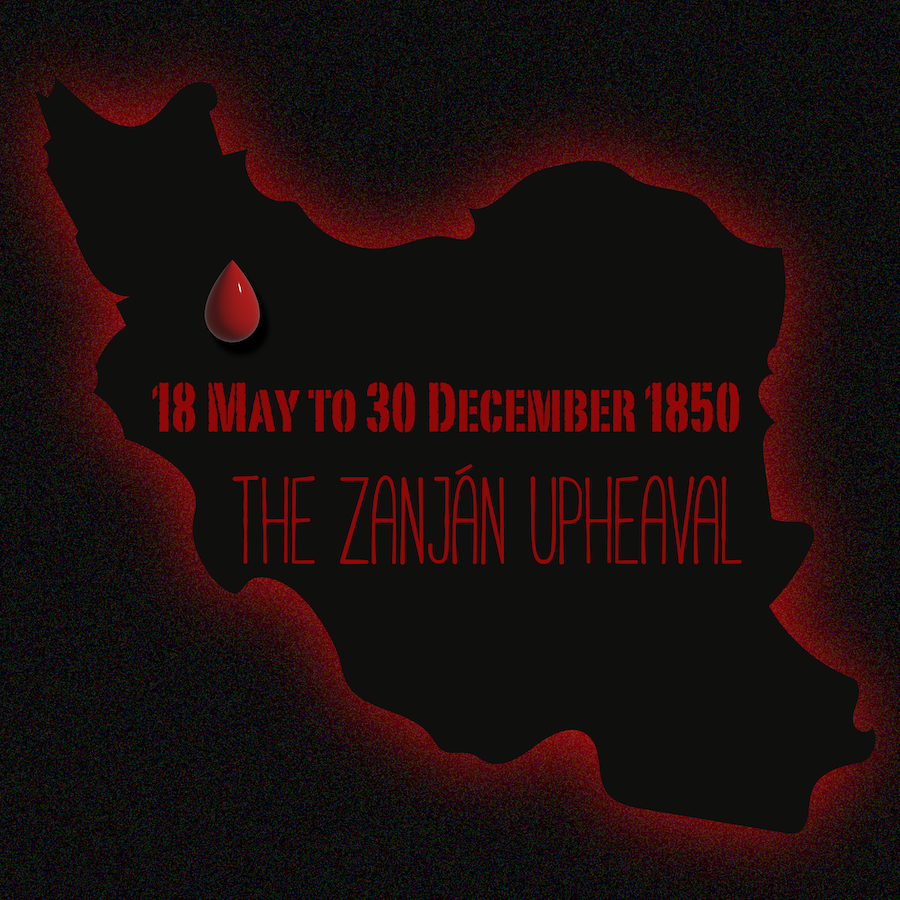
© Violetta Zein.
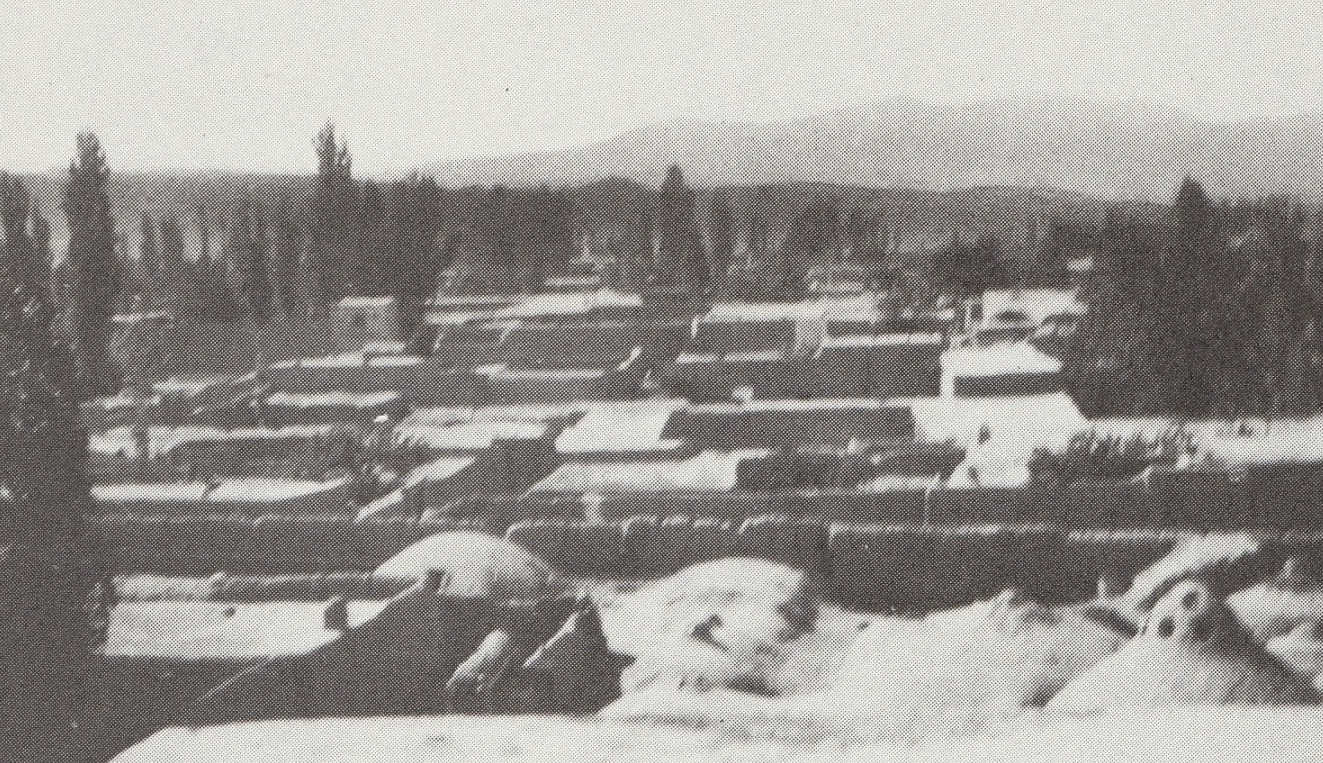
The city of Zanján. Nabíl, The Dawn-Breakers, page 528.
The Zanján upheaval started with a quarrel between two children, a Muslim and a Bábí, and escalated very quickly. The population of Zanján was determined to exterminate the Bábís, who sought refuge in the fort of ‘Alí-Mardán Khán on 18 May 1850, for a siege that lasted nine months. Regiment after regiment attacked them and hundreds of Bábís were martyred, including the illustrious Zaynab, a peasant girl from a nearby village, enkindled, resourceful, and incredibly brave. When the siege ended on 30 December 1850, all the Bábís were slain or tortured. Ḥujjat, a hero of Zanján who had become a Bábí after reading a single page of the Qayyúmu’l-Asmá’, died of his wound on 8 January 1851.
The aftermath of the siege was pure savagery. The ‘ulamás of Zanján roused the population and the army to perpetrate every vicious and abominable act against the surviving Bábí men and women, inciting widespread rape. They dug up and desecrated the body of Ḥujjat for three days, and ruthlessly mutilated his remaining 76 companions, callously desecrating the bodies of all Bábí martyrs and murdering women and children in ways too cruel and inhuman to speak of.
Nabíl, The Dawn-Breakers, pages 527-582.
Shoghi Effendi, God Passes By.
Shoghi Effendi,God Passes By.
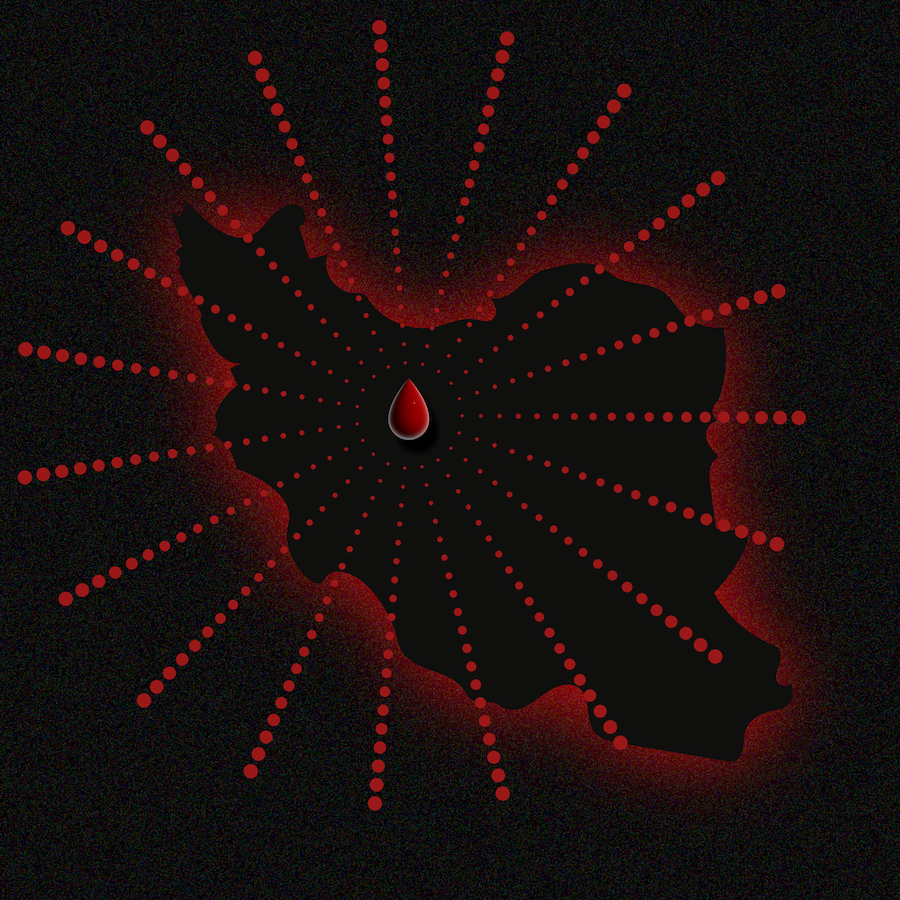
An abstract 19-pointed star made of 19 rows of circles symbolizes the darkness, persecutions, and lives lost to martyrdom in Persia in 1849 - 1850, radiating throughout the country in and around Ṭihrán, preparing for the advent, in Ṭihrán, in two years' time, of the Revelation of Bahá'u'lláh. © Violetta Zein.
During this dangerous year for Bábís, Baha'u'llah was “a home for the stranger, a balm to the suffering, a tower of strength for the fugitive.” His home in Ṭihrán became a safe haven and a focal point for all Bábís, who received the kind hospitality of Ásíyih Khánum.
Before going to Nayríz, Vaḥíd, spent time in the home of Bahá'u'lláh and Ásíyih Khánum. He was one of the most learned men of Persia, having committed an astounding 30,000 hadiths to memory.
Sayyáḥ, the Báb's courier, stopped in Bahá'u'lláh’s home in the depth of the winter of 1849, returning from his pilgrimage to the graves of the martyrs of Shaykh Ṭabarsí, at the instruction of the Báb.
When Sayyáḥ left Ṭihrán, he was carrying perhaps the last message from Bahá'u'lláh to the Báb. Shortly after, Bahá'u'lláh received a reply in the Báb’s own handwriting, committing Bahá'u'lláh’s half-brother, Mírzá Yaḥyá, to His care. Attention focused on Mírzá Yaḥyá, the nominee of the Báb, was a way to protect Bahá'u'lláh as long as possible.
It was in the midst of this most hectic year, when turmoil and uprisings shook Persia and the Bábí community to their roots, that the essence of purity, kindness and gentleness, Mírzá Mihdí, was born. Better known by his title, the Purest Branch, he was Bahá'u'lláh and Navváb's fourth child, five and four years younger than his two older brothers, 'Abdu'l-Bahá and 'Alí Muḥammad, and three years younger than his sister, Bahíyyih Khánum.
H.M. Balyuzi, Bahá'u'lláh: The King of Glory, pages 61-63.
Shoghi Effendi, God Passes By.
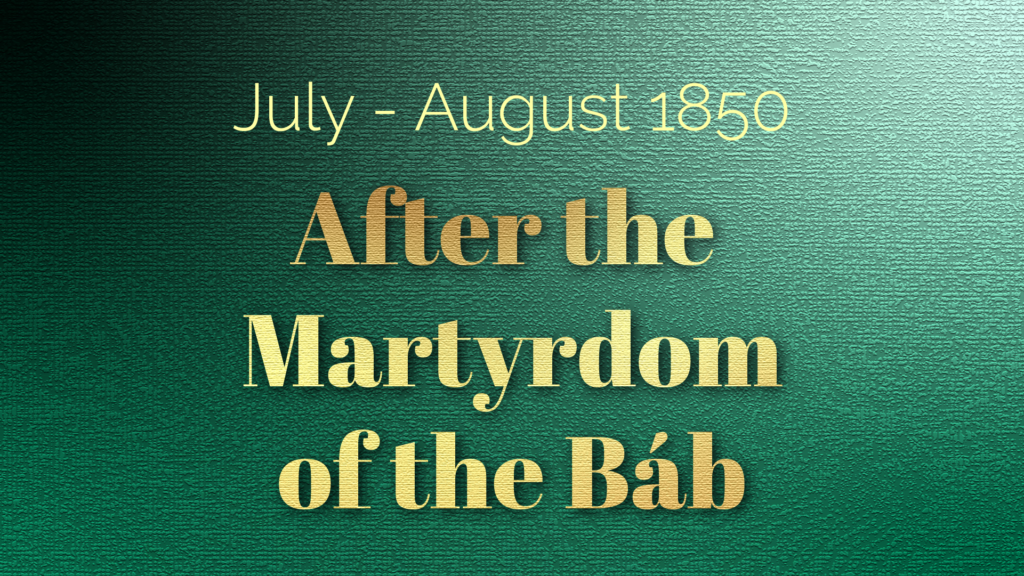
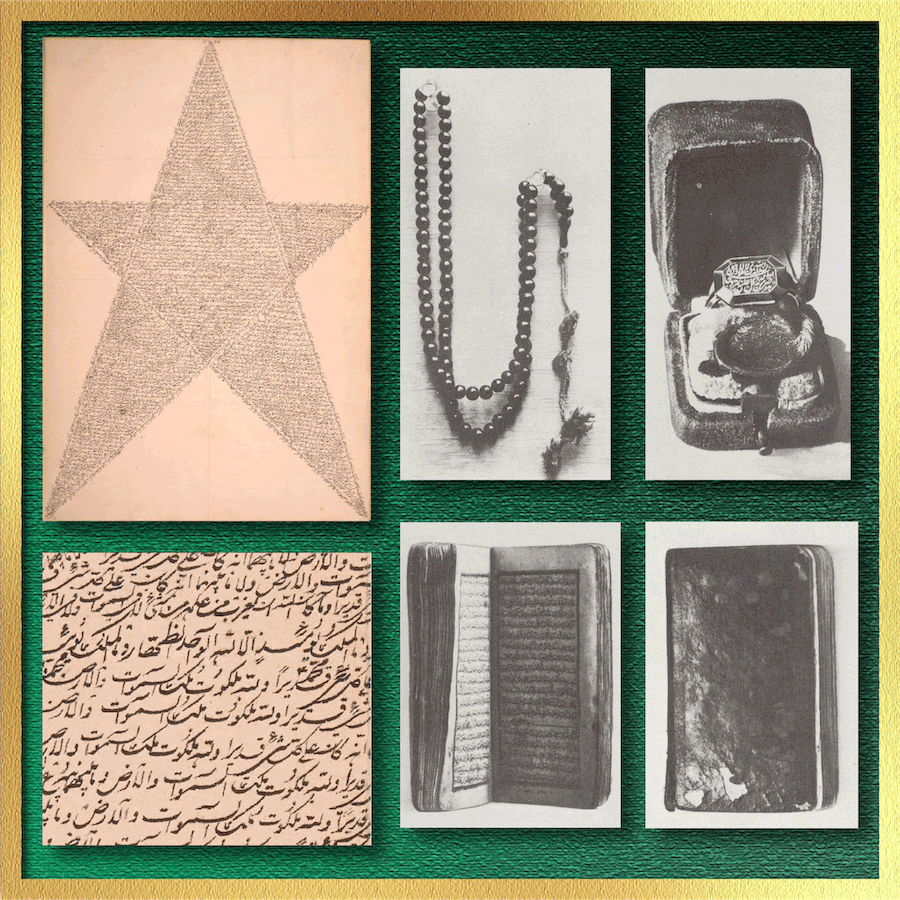
Example of a "Haykal" (Temple), calligraphed by the Báb in His fine penmanship, offered here as an illustration of the Haykal on fine blue paper sent by the Báb to Bahá'u'lláh before His martyrdom. On the right, some personal effects of the Báb in the International Bahá'í Archives, as an illustration of some of the contents of the coffer sent by the Báb to Bahá'u'lláh: the Báb's prayer beads, one of His signet rings, and two images of the Báb's Qurán. Source: Nabíl, The Dawn-Breakers, page 504.
Forty days before leaving Chihríq for Tabríz, the Báb had collected all His documents and Tablets, His pen-case, seals, and agate rings, and entrusted them to Mullá Báqir, for Mírzá Aḥmad, His secretary. Mírzá Aḥmad, in turn, brought them to the Báb’s intended recipient: Bahá'u'lláh.
The contents were marvelous: a scroll of blue paper, of the most delicate texture, on which the Báb, in His own exquisite handwriting, had penned, in the form of a pentacle, five hundred verses, all derivatives of the word “Bahá.” The penmanship was so intricate that it looked like a single wash of ink on the paper.
Nabíl, The Dawn-Breakers, pages 504-506, pages 517-518, and pages 519-527.
H.M. Balyuzi, Bahá'u'lláh: The King of Glory, pages 64-65.
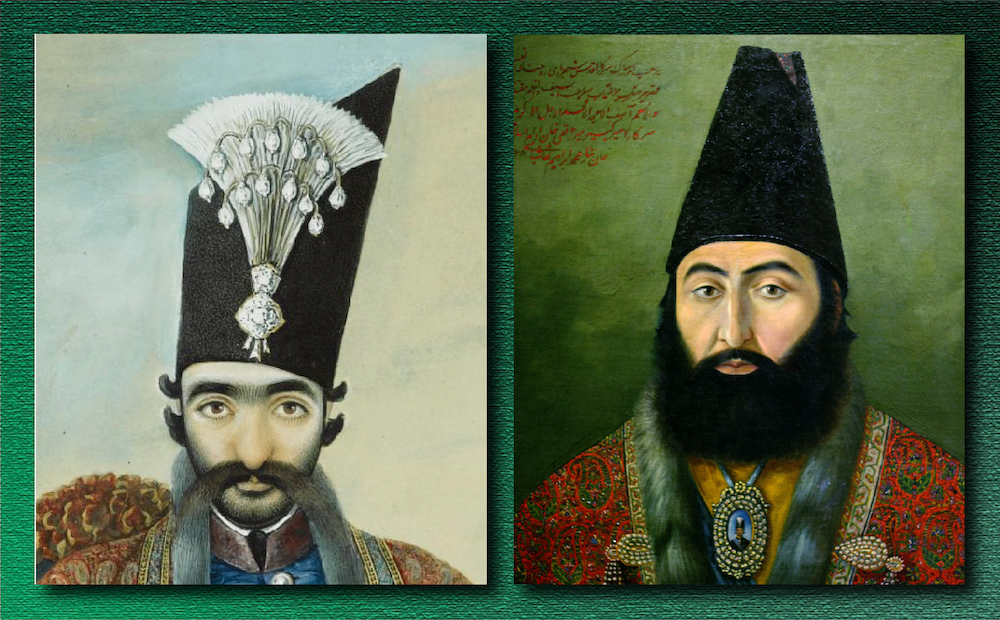
Two inveterate enemies of the Bábí Faith: Násiri'd-Dín Sháh (Wikimedia Commons) and the Amír-Niẓám, General of the Persian Army, Mírzá Taqí Khán (Wikimedia Commons).
Bahá'u'lláh held a pivotal role during the ministry of the Báb. A fearless and persuasive advocate of His Teachings, Bahá'u'lláh, a nobleman and son of a former minister, had won the absolute loyalty of countless new converts, from clerics to government officers.
Between 1844 and 1850, Bahá'u'lláh continually corresponded with the Báb and fostered the growth of the Faith, consolidating its ethical foundations, and deepening the community of believers, reviving the zeal of the grief-stricken Bábís after the Báb's martyrdom, and uniting the scattered body of believers.
Mírzá Yaḥyá, the nominee of the Báb, could not be found to lead the community after the Báb’s martyrdom, and Bahá'u'lláh assumed a more prominent leadership role. The enemies of the Faith soon noticed, and set their sights on Him, as He became their most prized adversary.
Shoghi Effendi, God Passes By.
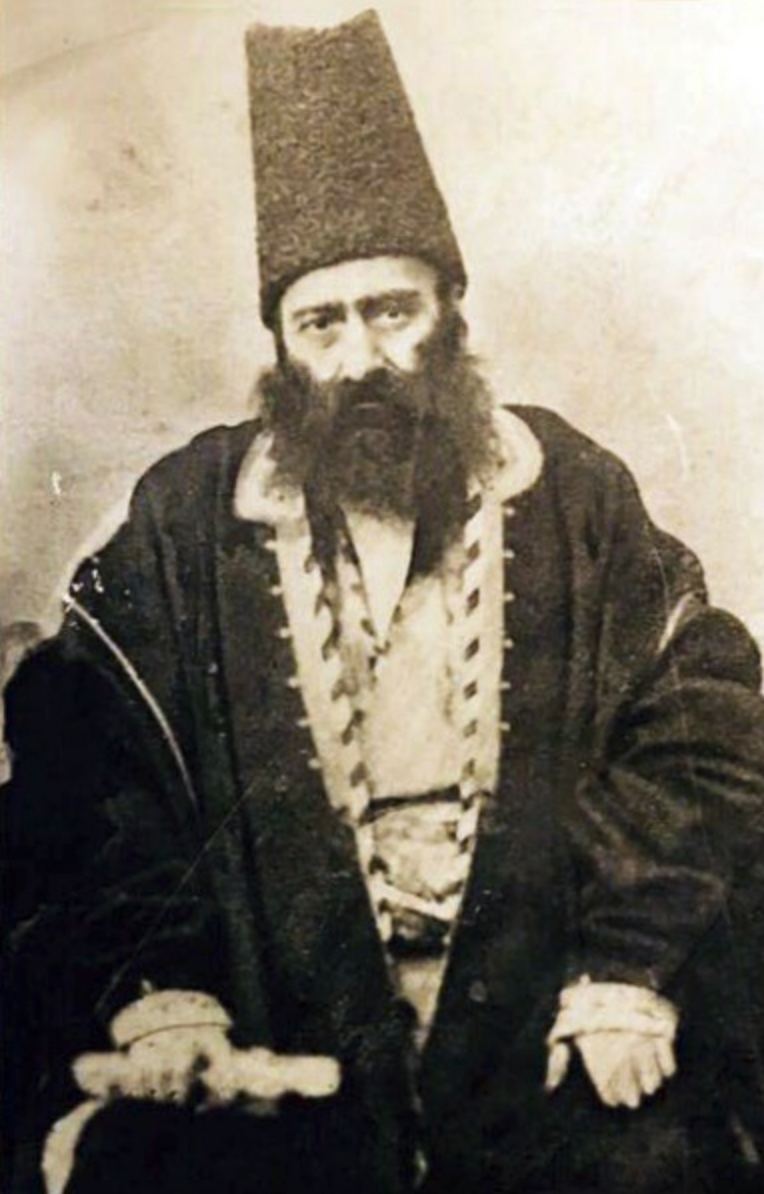
Mírzá Taqí Khán, the Grand Vizir, also referred to as the Amír-Niẓám, General of the Persian Army. Source: Wikimedia Commons.
Soon after the martyrdom of the Báb, Mírzá Taqí Khán, the Grand Vizir of Naṣiri'din Sháh who had ordered the execution of the Báb, asked to see Bahá'u'lláh. During this meeting, Mírzá Taqí Khán told Bahá'u'lláh, in no uncertain terms, that he knew He was the reason the Bábí Faith had lasted so long and resisted so many violent attacks, but that he lacked proof of Bahá'u'lláh's complicity.
Mírzá Taqí Khán then offered Bahá'u'lláh the post of Head of the Court, which Bahá'u'lláh politely declined, and the Grand Vizir encouraged Bahá'u'lláh to leave Ṭihrán for some time, and Bahá'u'lláh stated His intention to travel to ‘Iráq for pilgrimage at the holy cities. Bahá'u'lláh later told Nabíl: "Had the Amír-Niẓám [Mírzá Taqí Khán] been aware of My true position, he would certainly have laid hold on Me. He exerted the utmost effort to discover the real situation, but was unsuccessful. God wished him to be ignorant of it."
H.M. Balyuzi, Bahá'u'lláh: The King of Glory, page 66.
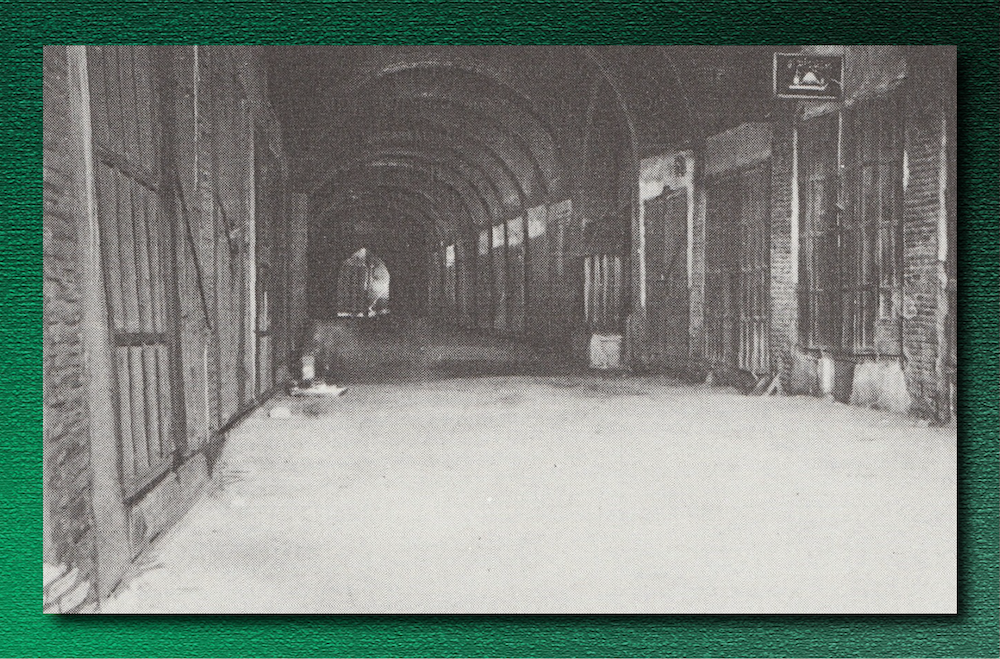
After the martyrdom of Báb and Anís, their remains were thrown into a moat outside the city gate and guarded with sentinels. At Bahá'u'lláh’s instructions, two Bábís were miraculously able to retrieve them, and brought them back to Ṭihrán, at incredible risk, in a custom-built wooden case. Upon receiving the casket with its precious contents, Bahá'u'lláh instructed Mírzá Músá and another believer to hide it in a safe place, within the precincts of the Shrine of Imám-Zádih Ḥasan.
H.M. Balyuzi, Bahá'u'lláh: The King of Glory, page 65 and 66-67.
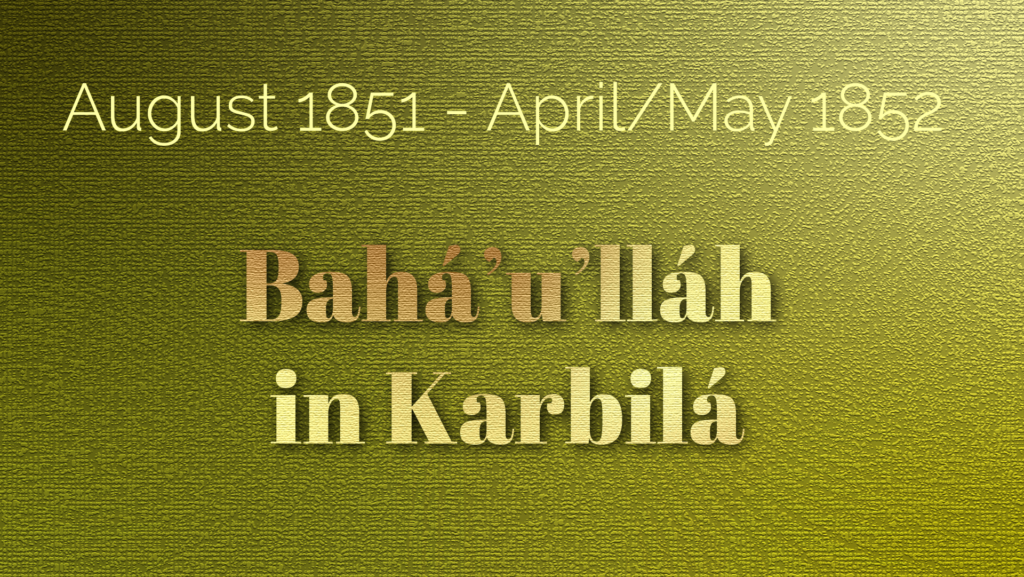
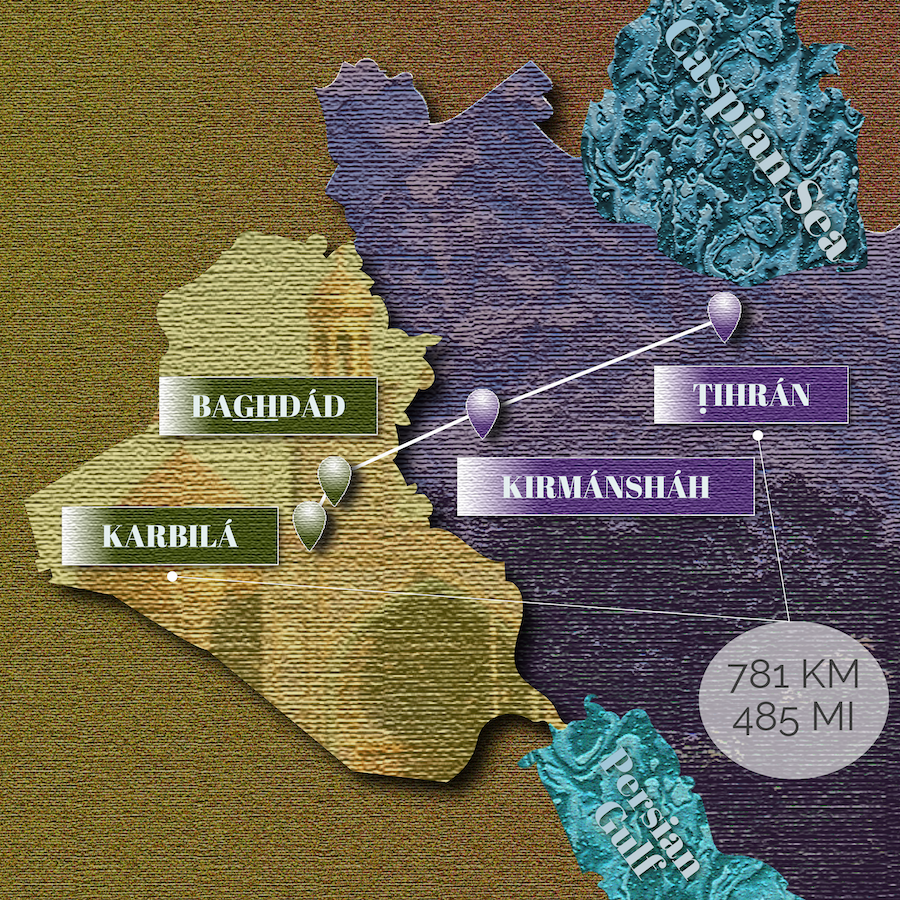
Map of Bahá'u'lláh's journey to Karbilá. Journey lines are symbolic, not historically accurate. Distance from Google Maps. © Violetta Zein.
Bahá'u'lláh had planned to leave Ṭihrán immediately after the meeting with Mírzá Taqí Khán in July 1850, but the casket containing the remains of the Báb and Anís had arrived in the capital at that time. Once His sacred duty had been fulfilled, Bahá'u'lláh left Ṭihrán in August 1851 for Karbilá with two attendants, including a survivor of the siege of Shaykh Ṭabarsí.
During Bahá'u'lláh's stay in Karbilá, Ásíyih Khánum, and Bahá'u'lláh's four children: 'Abdu'l-Bahá, almost 8, 'Alí Muḥammad, around 6 and a half, Bahíyyih Khánum, 5 and Mírzá Mihdí, 2, lived in Núr, between Takúr, Bahá'u'lláh's ancestral home, and Yalrúd, Ásíyih Khánum's birthplace.
Bahá'u'lláh spent the entire month of Ramaḍán, August 1851, in Kirmansháh, near the border with ‘Iráq, during which time He sent Mírzá Yaḥyá with Nabíl to a place near Badasht. He also sent, via Mírzá Aḥmad, a box of sweet candies and a letter addressed to Mírzá Músá, who was to forward the gift to His family in Mázindarán.
After stopping in Baghdád for a few days, Bahá'u'lláh arrived in Karbilá on 28 August 1851.
H.M. Balyuzi, Bahá'u'lláh: The King of Glory, pages 66-67.
Baharieh Rouhani Ma'ani, Leaves of the Twin Divine Trees, pages 95-96.
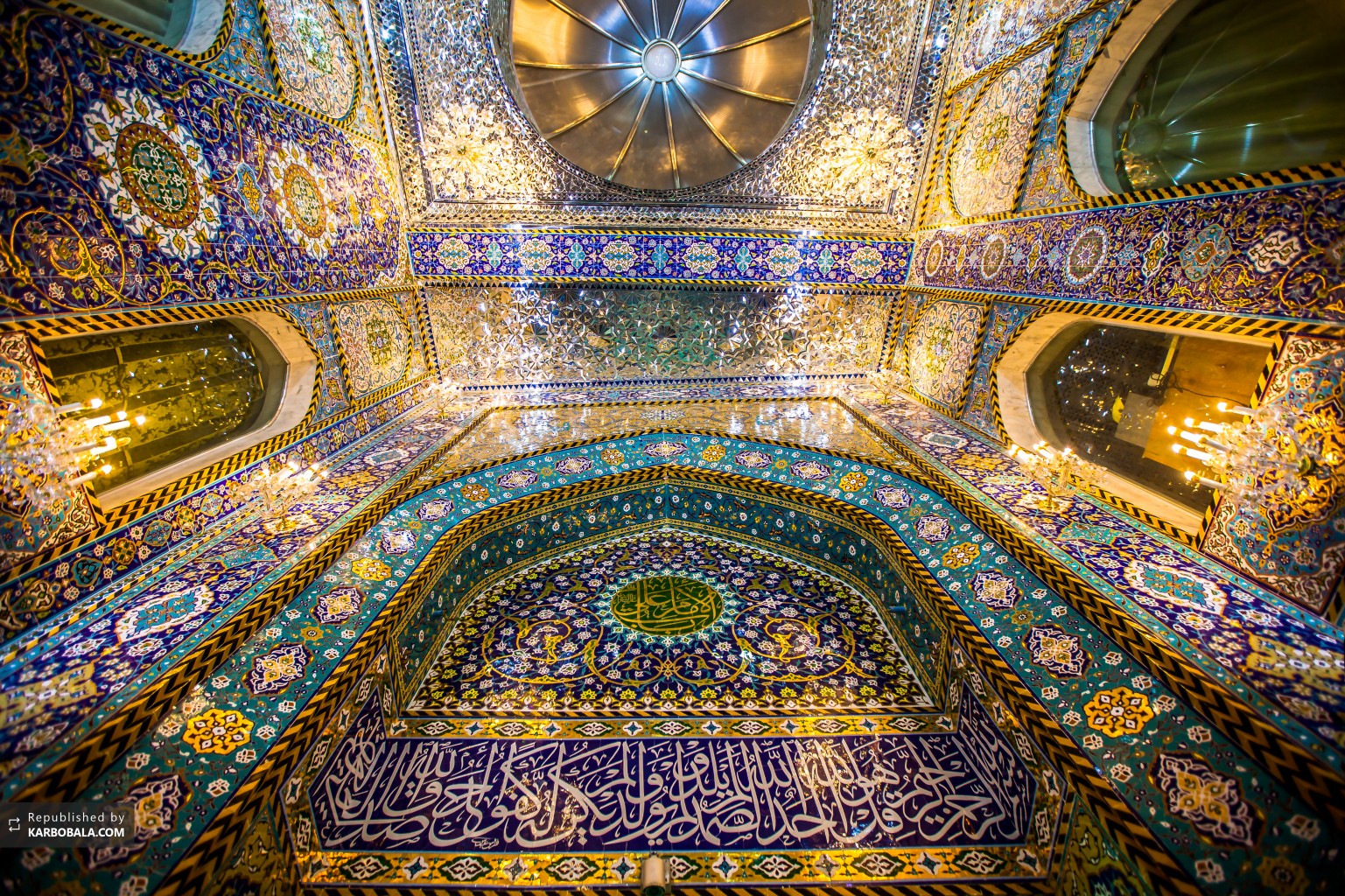
The resplendent beauty of the inside of the Shine of Imám Ḥusayn in Karbila where Shaykh Ḥasan came face to face with, and instantly recognized, Bahá'u'lláh. Source: Wikimedia Commons.
During the siege of Shaykh Ṭabarsí, the Báb had urged all Bábís to go to the aid of their besieged companions, but had specifically instructed His secretary in Chihríq, Shaykh Ḥasan-i-Zunúzí, a former disciple of Siyyid Káẓím, to go to Karbilá telling him to "await the day when with your own eyes you can behold the Beauty of the Promised Ḥusayn. On that day remember Me, and offer Him My love and submission.”
One day in October 1851, inside the holy shrine of the Imám Ḥusayn, Shaykh Ḥasan came face-to-face with Bahá'u'lláh, and instantly beheld, as the Báb had prophesied, "the Beauty of the Promised Ḥusayn.” Bahá'u'lláh’s birth name had been Mírzá Ḥusayn ‘Alí.
H.M. Balyuzi, Bahá'u'lláh: The King of Glory, page 67.
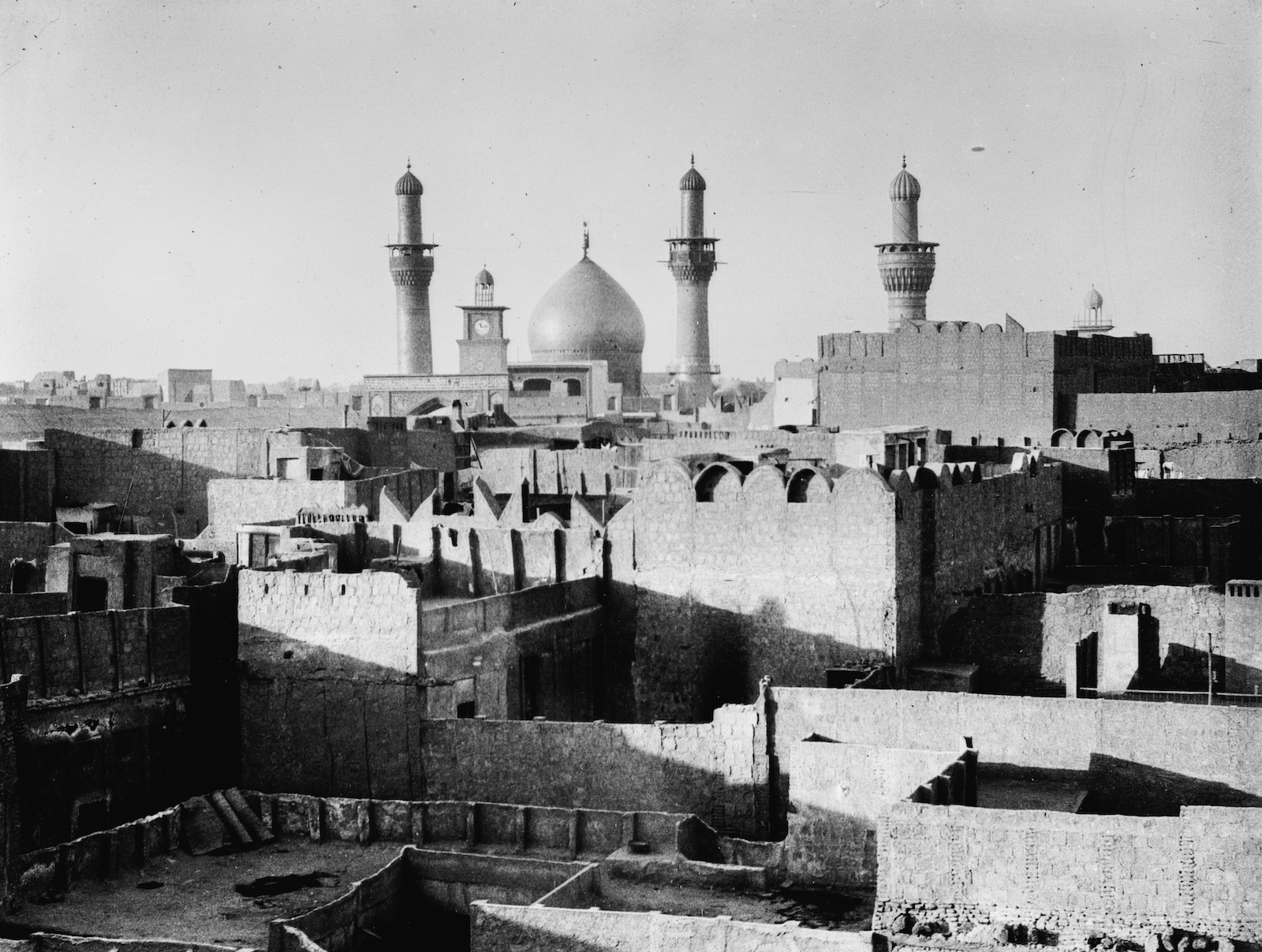
A 1932 photograph showing a general view of Karbilá with the mosque and Shrine of Imám Ḥusayn in the background. Source: Library of Congress.
When Bahá'u'lláh arrived in Karbilá, He found two Bábís who had been taught by Ṭáhirih taken in by a man claiming to be the personification of the Holy Ghost. Bahá'u'lláh dealt with the situation at once, by kindly and firmly persuading the impostor to renounce his preposterous claims. The two Bábís recognized the error of their ways, returned to the Faith, steadfast to their deaths.
During His eight months in ‘Iráq, Bahá'u'lláh visited the holy cities of Iráq, Many Bábís attained His presence and became devoted to Him, including some who would later die as martyrs. He was deeply engaged in spreading the Bábí teachings and reinforcing the foundations of the local Bábí community, a proclamation that recalled, in its intensity, His first teaching journey in Núr, immediately after His declaration.
In early 1852, a tragedy struck Bahá'u'lláh’s family in Núr, when His second son 'Alí-Muḥammad died at the age of seven. A few months later, 21 March 1852, marked the eighth Naw-Rúz of the Bábí Dispensation, and Bahá'u'lláh was nearing the end of His stay in Karbilá, devoting His every effort to revive the energies, and inspire the spirits of the believers. His towering spiritual presence appeared as the only ray of hope for the distraught Bábís, still heartbroken by the martyrdom of the Báb.
H.M. Balyuzi, Bahá'u'lláh: The King of Glory, pages 67-68.
Nabíl, The Dawn-Breakers, page 595.
Baharieh Rouhani Ma'ani, Leaves of the Twin Divine Trees, page 94.

Mirza Aqa Khán as depicted on a mirror case, created in Isfahan in 1857/8. The image is possibly based on a watercolour by the well-known Qajar painter Abu’l-Ḥasan Ghaffarí (Sani-ol-Molk). Source: Wikimedia Commons.
In the intervening eight months, dramatic political changes had taken place in Persia. Náṣiri'Dín Sháh had his Grand Vizir, Mírzá Taqí Khán murdered in Kashán, and Mírzá Naṣru'lláh -i-Núrí, better known as Mírzá Áqá Khán, was now the new Grand Vizir of Persia. From the beginning of his ministry, Mírzá Áqá Khán tried to effect a reconciliation between the government and the Bábís, through Bahá'u'lláh, Whom he regarded as the most capable of all the Báb's disciples, and sent a letter to Bahá'u'lláh in Karbilá, asking Him to return to Ṭihrán.
Before receiving the Grand Vizir's letter, Bahá'u'lláh had already decided to leave ‘Iráq for Persia, which He did, sometime around April/May 1852.
H.M. Balyuzi, Bahá'u'lláh: The King of Glory, page 68.
Nabíl, The Dawn-Breakers, page 598.
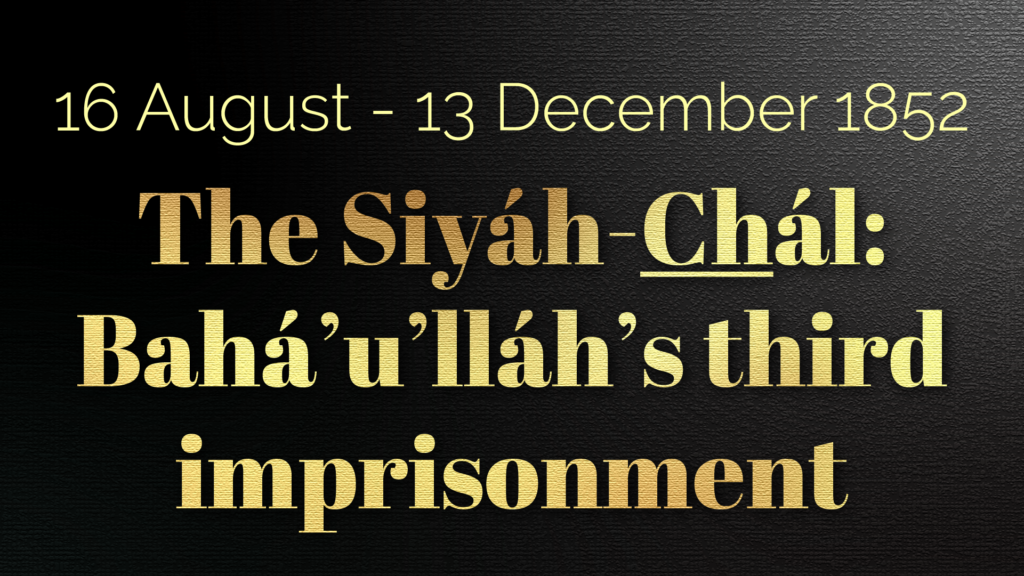
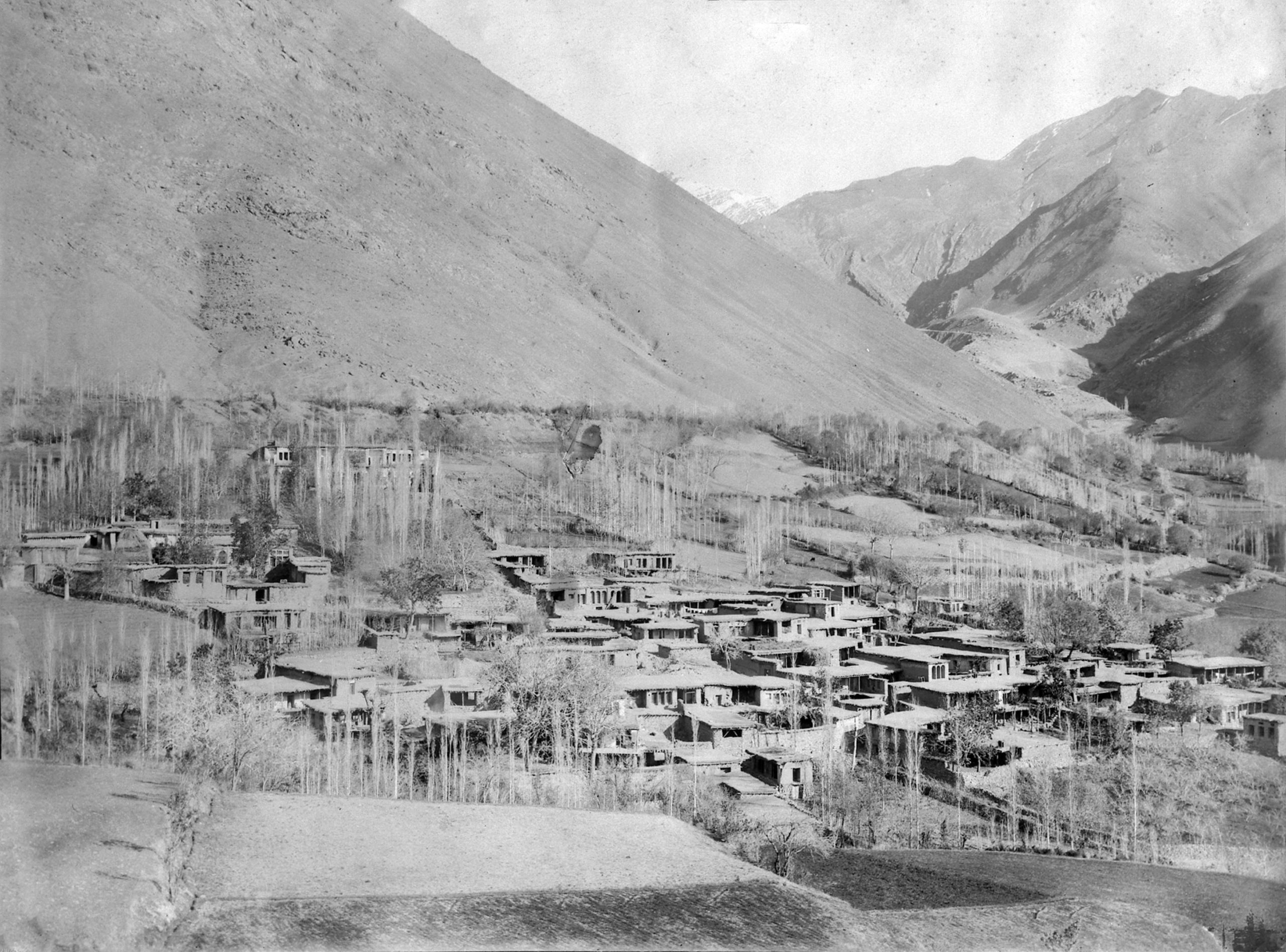
1914 photograph of the village of Afchih in the region of Lavásán, near Ṭihrán, where Bahá'u'lláh was staying at the time of the attempt on the Sháh's life. Source: © Bahá'í International Community. Bahá'í Media Bank.
When Bahá'u'lláh arrived in Ṭihrán in May 1852, His family may have still been in Takúr or Yalrúd, and He was ordered by the Grand Vizir Mírzá Áqá Khán to go to Afchih. There, Bahá'u'lláh was welcomed by Ja’far-Qulí Khán, the Grand Vizir’s brother, and was his guest in the pleasant village from May to August 1852. Afchih was located only 32 kilometers (20 miles) northeast of Ṭihrán in the cool heights of the Alburz mountains, and was a popular refuge from the excessive summer heat of Ṭihrán. So many notables and dignitaries from the capital flocked to meet Bahá'u'lláh, that He found Himself unable to return home.
Before He had arrived in Lavásán, where Afchih is located, Bahá'u'lláh had encountered a crazed Bábí named 'Aẓim, who had been waiting to meet Him. 'Aẓim later testified that Bahá'u'lláh had no previous knowledge of his plan to assassinate Naṣiri'd-Dín Sháh, but he must have hinted at something harebrained enough for Bahá'u'lláh to emphatically order him to abandon his wicked schemes. Bahá'u'lláh condemned 'Aẓim’s designs, and completely disassociated Himself with any of his intentions, warning him that he could likely unleash fresh disasters on the Bábí community on a scale as-yet-unseen.
Tragically, Bahá'u'lláh’s wise counsels fell on deaf ears. A few months later, while Bahá'u'lláh was still in Afchih, 'Aẓim and his accomplices made a failed attempt on the life of the Sháh.
Nabíl, The Dawn-Breakers, pages 598-599.
H.M. Balyuzi, Bahá'u'lláh: The King of Glory, pages 74 & 77.
Baharieh Rouhani Ma'ani, Leaves of the Twin Divine Trees, page 96.
Bahá'u'lláh, Epistle to the Son of the Wolf.
Moojan Momen, Two Episodes from the Life of Bahá'u'lláh in Iran, published in Lights of Irfan, 20, page 150.
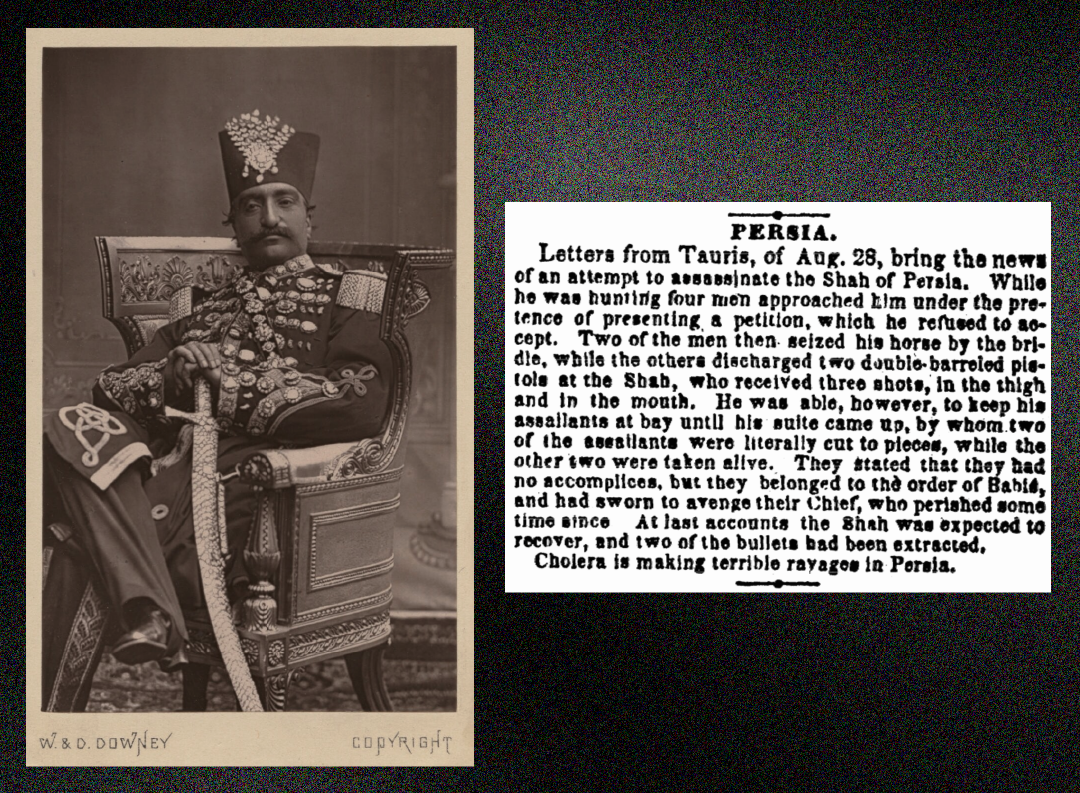
Left: A portrait of Naṣiri'd-Dín Sháh from the 1870s by W. & D. Downey, for use as personal calling cards. Source: National Portrait Gallery. Right: New York Times, 22 October 1852, page 6 article about the attempted assassination on the Sháh, from the article compiled by Ralph Wagner entitled: Babi Attempt on the Life of the Shah, 1852: Coverage in the New York Times. Bahá'í Library Online.
'Aẓím had been involved in planning the attack, but it was carried out by three young Bábís, Ṣádiq-i-Tabrízí, a confectioner, Fatḥu’lláh-i-Qumí, an engraver, and Ḥájí Qasím from Nayríz. The three men had been rendered half-mad by grief, obsessing over the martyrdom of the Báb, and decided to avenge Him by assassinating Naṣiri'd-Dín Sháh.
Náṣiri’Dín Sháh had been staying in his summer palace of Níyávarán, close to Ṭihrán, and on the morning of 15 August 1852, rode out from the palace on a hunting expedition. The three misguided Bábís approached him, pretending to be petitioners for justice, and attempted to kill him, but armed with short daggers and pellet pistols, they only managed to inflict superficial wounds on the Sháh and were stopped by his guards when they tried to drag him off his horse.
After their botched assassination attempt, Ṣádiq the confectioner, was killed on the spot. His body was cut in two and each half hung at two of the gates of Ṭihrán. Fatḥu'lláh the engraver was tortured, but because he wouldn't say a word under torture, he was thought to be deaf and dumb, and molten lead was poured down his throat and Ḥájí Qasím was killed soon after.
Pandemonium broke out. As a result of the assault, the whole of Níyávarán, where the imperial court and troops had congregated, was plunged into an unimaginable tumult. Ṭihrán fell into turmoil, and the Sháh’s mother was blind with rage screaming for vengeance, and directed all her hatred at Bahá'u'lláh, the most prominent Bábí.
The repercussions on the Bábí community were immediate: the authorities rounded up and arrested 81 Bábís, including 38 leaders of the Bábí community of Ṭihrán, and, in the words of Shoghi Effendi, “The reign of terror which ensued was revolting beyond description.”
Shoghi Effendi, God Passes By.
H.M. Balyuzi, Bahá'u'lláh: The King of Glory, pages 74-77.
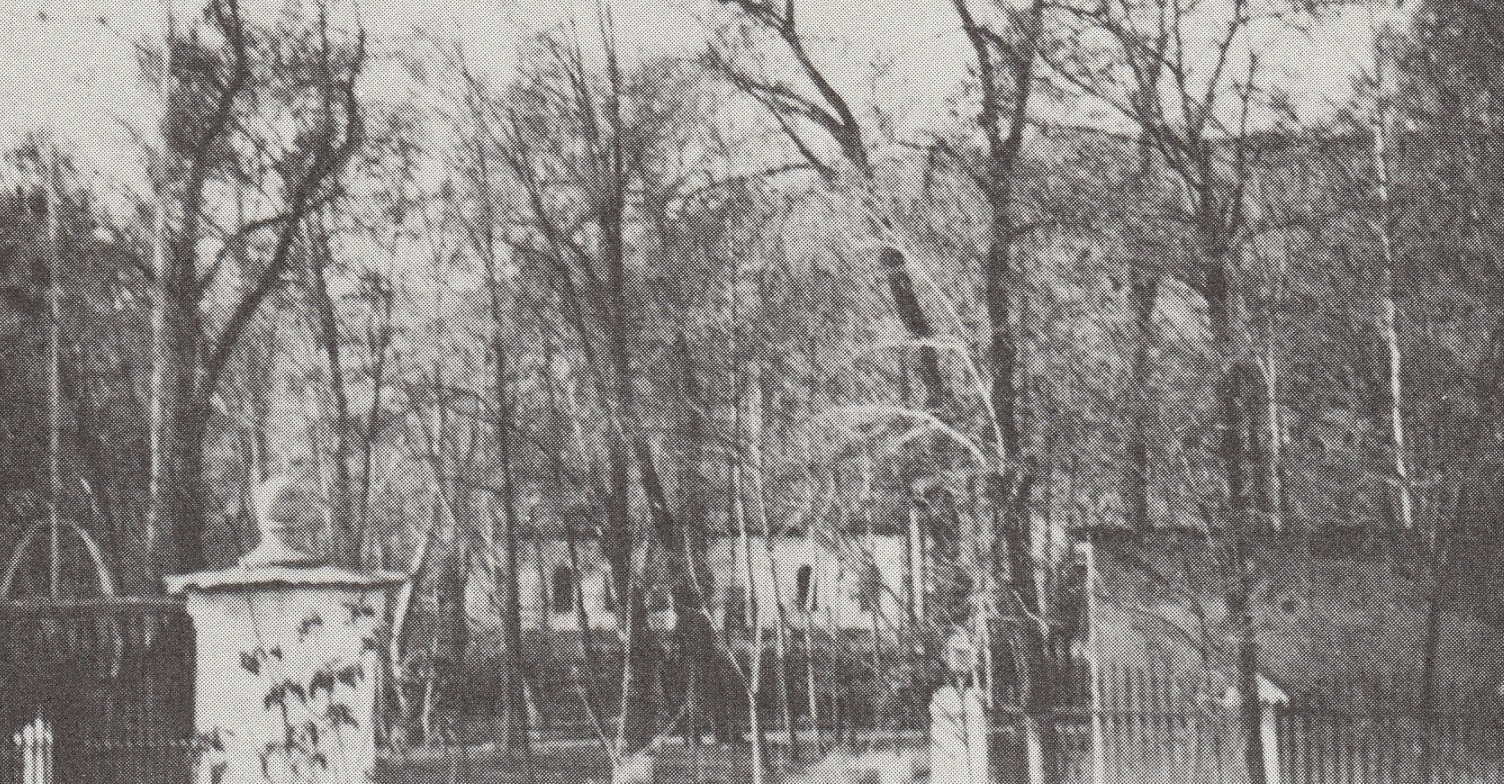
The Russian Legation in the village of Zarkandih, where Bahá'u'lláh was arrested before being thrown into the Siyáh-Chál. Souce: Nabíl, The Dawn-Breakers, page 604.
Mírzá Áqá Khán, the Grand Vizir, sent word to inform Baha'u'llah of the attempt on the Sháh's life by the senseless Bábís, impressing upon Him that the Sháh’s mother had denounced Him as the "would-be murderer" of her son. His friends offered to harbor Bahá'u'lláh until danger had passed, and his host, Ja’far-Qulí Khán, urged him to flee to the Caspian coast and board a ship to Russia, but Bahá'u'lláh declined their offers, and left Afchih the next morning, calm, and perfectly serene for Níyávarán, the eye of the storm.
Bahá'u'lláh arrived in the nearby village of Zarkandih, where He was met by His brother-in-law, Mírzá Majíd, the secretary to the Russian Minister. News of Bahá'u'lláh’s whereabouts reached the Sháh, and officers of the Imperial Army arrived at the Russian Legation to apprehend Him. Dimitri Ivanovich Dolgorukov, the Russian minister, and his daughter pleaded passionately for Bahá'u'lláh, to no avail.
Bahá'u'lláh was brought from Níyávarán barefoot and in chains. A brutal man, escorting Bahá'u'lláh on horseback, snatched off His headdress, in those days the very symbol of a man's dignity and noble station. Hurried along by a troop of executioners and officials, Bahá'u'lláh was forced to walk all the way to the Síyáh-Chál (Dark Pit) dungeon of Ṭihrán, under the fierce summer sun, an estimated distance of about 20 kilometers (12.5 miles).
During His long humiliating walk, Bahá'u'lláh was stripped of His outer garments several times. He was ridiculed by the crowd and pelted with stones. Among the crowd, an old woman was hurling abuse at Bahá'u'lláh. She stepped forward with a stone in her hand, but could not keep up with the speed of the procession and pleaded with a guard, “give me a chance to fling my stone in his face!” Bahá'u'lláh turned to the guards and told them, in an act of compassion that defies human understanding: "Suffer not this woman to be disappointed. Deny her not what she regards as a meritorious act in the sight of God."
Shoghi Effendi, God Passes By.
Bahá'u'lláh, Epistle to the Son of the Wolf.
H.M. Balyuzi, Bahá'u'lláh: The King of Glory, pages 74-77.
Moojan Momen, Two Episodes from the Life of Bahá'u'lláh in Iran, published in Lights of Irfan, 20, page 150.
Adib Taherzadeh, The Revelation of Bahá'u'lláh Volume 1: Baghdád 1853 - 1863, page 9.
Nabíl, The Dawn-Breakers, pages 606-608.
Approximate distance between Shímiran and the Siyáh-Chál, located near the Ṭihrán bazaar, south-east of Golestan Palace calculated on Google Maps.
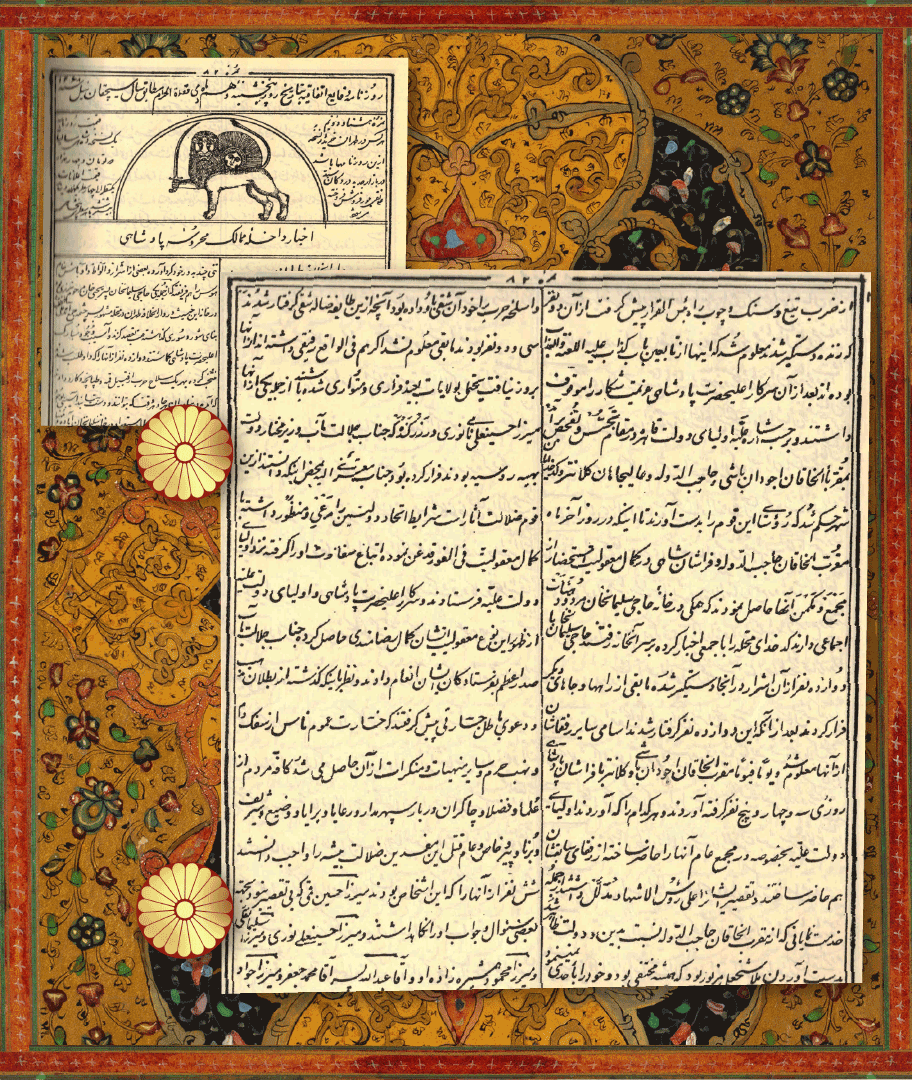
The smaller image is a scan of the front page of the first article ever written about Bahá'u'lláh in the government newspaper Rúznámih-yi Vaqáyi’-i Ittifáqiyyih dated 10 Dhu’l-Qa`dih 1268 (26 August 1852). The large image is the page 2, column article regarding Bahá'u'lláh’s arrest and imprisonment mentioned in the story below and another story further down. The two gold rosaces indicate the two mentions of Bahá'u'lláh in the article, both in the left-hand column, the fourth line from the top and the third line from the bottom. Both impeccable photographs of this article are courtesy of Dr. Moojan Momen.
Bahá'u'lláh’s arrest was reported in the official government newspaper, Rúznámih-yi Vaqáyi’-i Ittifáqiyyih of 10 Dhu’l-Qa`dih 1268 (26 August 1852), on page 2, column 2). According to Dr. Moojan Momen, this is probably the first time that Bahá'u'lláh’s name was ever published in a newspaper, and part of the article relating to Bahá'u'lláh’s arrest reads:
“One of these [Bábís], named Mírzá Ḥusayn ‘Alí Núrí, fled to Zarkandih where the honored Minister Plenipotentiary of the Russian Government was. The latter, as soon as he realized that [the fugitive] was from this wretched people, he acted in accordance with the dictates of the accord that exists between the two governments. With the utmost wisdom, he forbade this and the servants of the embassy sent Him to the officials of the exalted [Iranian] government.”
The same article also reports that Bahá’u’lláh and five Bábís were condemned by Naṣiri'd-Dín Sháh to life imprisonment:
“[As for] Mírzá Ḥusayn ‘Alí Núrí [Bahá'u'lláh], Mírzá Sulayman-Qulí, Mírzá Maḥmúd and his nephew, Áqá ‘Abdu’lláh, the son of Áqá Muḥammad Ja’far, and Mírzá Javád Khurásání, since investigations did not show that they were involved with the others in this corrupt and evil action, His Majesty the Sháh ordered that they be imprisoned perpetually.”
Moojan Momen, Two Episodes from the Life of Bahá'u'lláh in Iran, published in Lights of Irfan, 20, pages 150-151.
Official Persian government newspaper, Rúznámih-yi Vaqáyi’-i Ittifáqiyyih of 10 Dhu’l-Qa`dih 1268 (26 August 1852), page 2, column 2.
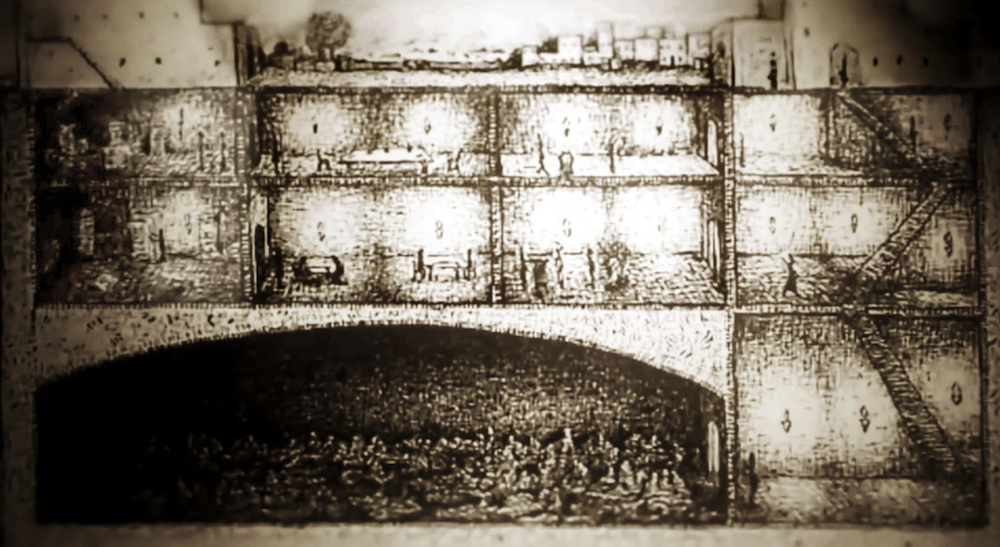
An illustration of Persia's most infamous prison, the Síyáh-Chál, known as the Black Pit. This illustration clearly shows the darkness and abominable crowded conditions of the prisoners in the dark hole three stories beneath the structure. Source: Baha'i Historical Facts.
Bahá'u'lláh was thrown into Ṭihrán’s most infamous dungeon, the Síyáh-Chál (Black Pit), reserved for the worst criminals of Persia.
The Siyáh-Chál was located in the heart of Ṭihrán, a stone’s throw from the Sháh’s palace and adjacent to the Sabzih-Maydán (marketplace) which served for public executions.
Part of the reason the Síyáh-Chál was such a horrifying prison, famous for its dampness and pitch black, was that it had originally been built as an underground reservoir for one of Ṭihrán’s public baths, and it had only once entrance. Inside, a single lightless corridor led to three steep flights of stairs into the dungeon where prisoners were kept. Not a single ray of light filtered down to that hellish place, and the fever-stricken air was icy and humid, pervaded with a loathsome smell. The floor of the the Síyáh-Chál was ankle-deep with filth and crawling with vermin.
Shoghi Effendi, God Passes By.
Lady Blomfield, The Chosen Highway, page 41.
Bahá'u'lláh - Epistle to the Son of the Wolf.
Nabíl, The Dawn-Breakers, pages 608-610.
H.M. Balyuzi, Bahá'u'lláh: The King of Glory, page 79-81.
Adib Taherzadeh, The Revelation of Bahá'u'lláh Volume 1: Baghdád 1853 - 1863, page 9.
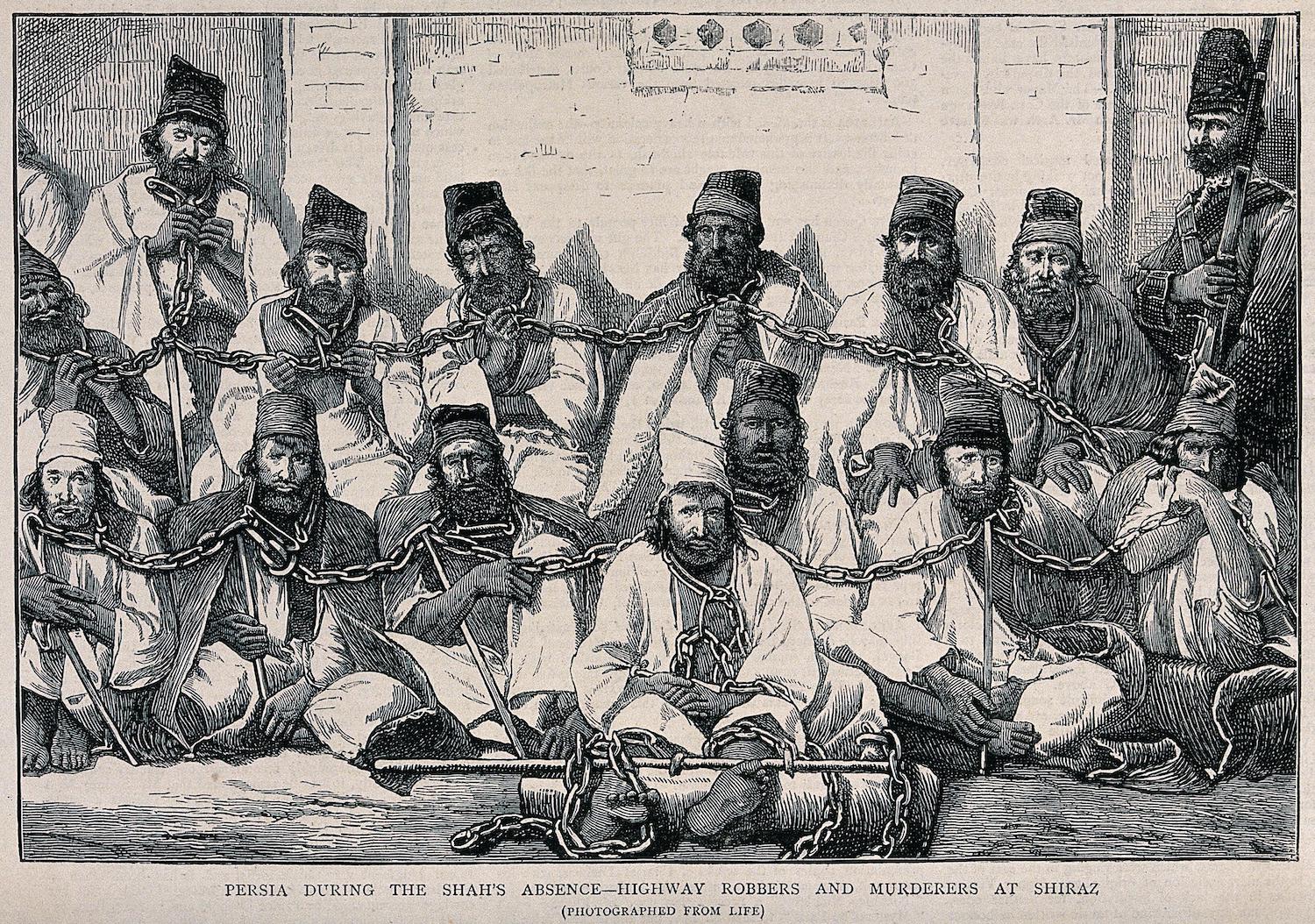
None of these prisoners are meant to represent Bahá'u'lláh in chains in the Siyáh-Chál. The purpose of this image is to illustrate how prisoners were chained together in a 19th century Persian prison, and to give an idea of the size of Bahá'u'lláh's chains, which would have been at least twice the sizes of the ones depicted on this engraving. Caption: Fourteen highway robbers and murderers in Shíráz sitting on the ground in a group bound together at the neck by chains, with an armed guard. Wood engraving, 1873, after Evelyn H. Ellis. Source: Wellcome Collection.
The conditions Bahá'u'lláh was kept in were worse than its poisonous, gloomy environment. The Siyáh-Chál was already overcrowded with 150 prisoners when Bahá'u'lláh arrived, most with neither clothes nor bedding, an unlikely assortment of thieves, highway-robbers, murderers and Bábís.
Bahá'u'lláh had been used from childhood to the finest fabrics, silks, brocades and velvets, now replaced with two enormous iron chains, named Qará-Guhar (Black Pearl) and Salásil (Chain), each weighing 50 kilograms (110 pounds) or more and infamous throughout Persia for their galling weight.
The chains were so heavy that they were supported by wooden forks, but they still weighed down fully on Bahá'u'lláh, making sleep and rest impossible for Him during numerous nights. Bahá'u'lláh would carry the marks of these chains on His blessed body for the rest of His life. His feet were placed in fetters locked together with strong, heavy bolts and screws, and He was chained to five other Bábís, 23 hours a day. For four months, from August to December 1852, except for one hour a day in the yard, Bahá'u'lláh could not move.
When He first arrived, Bahá'u'lláh was denied food and drink for three days and three nights. Later, the food He received had been poisoned by His enemies hoping to obtain the favor of the Sháh’s mother. Although He survived the poisoning, the tainted food affected Bahá'u'lláh’s health for years.
Every day, the jailers would enter the Black Pit and call out the name of a Bábí that was to be executed, and each day, the executioners would tell Bahá'u'lláh of their heroic and joyful martyrdom. One youth had a premonitory dream about his martyrdom, which Bahá'u'lláh explained to him. When his time came to be executed, he had no shoes and Bahá'u'lláh gave him His.
Shoghi Effendi, God Passes By.
Lady Blomfield, The Chosen Highway, page 41.
Bahá'u'lláh - Epistle to the Son of the Wolf.
Nabíl, The Dawn-Breakers, pages 608-610.
H.M. Balyuzi, Bahá'u'lláh: The King of Glory, page 79-81.
Adib Taherzadeh, The Revelation of Bahá'u'lláh Volume 1: Baghdád 1853 - 1863, page 9.
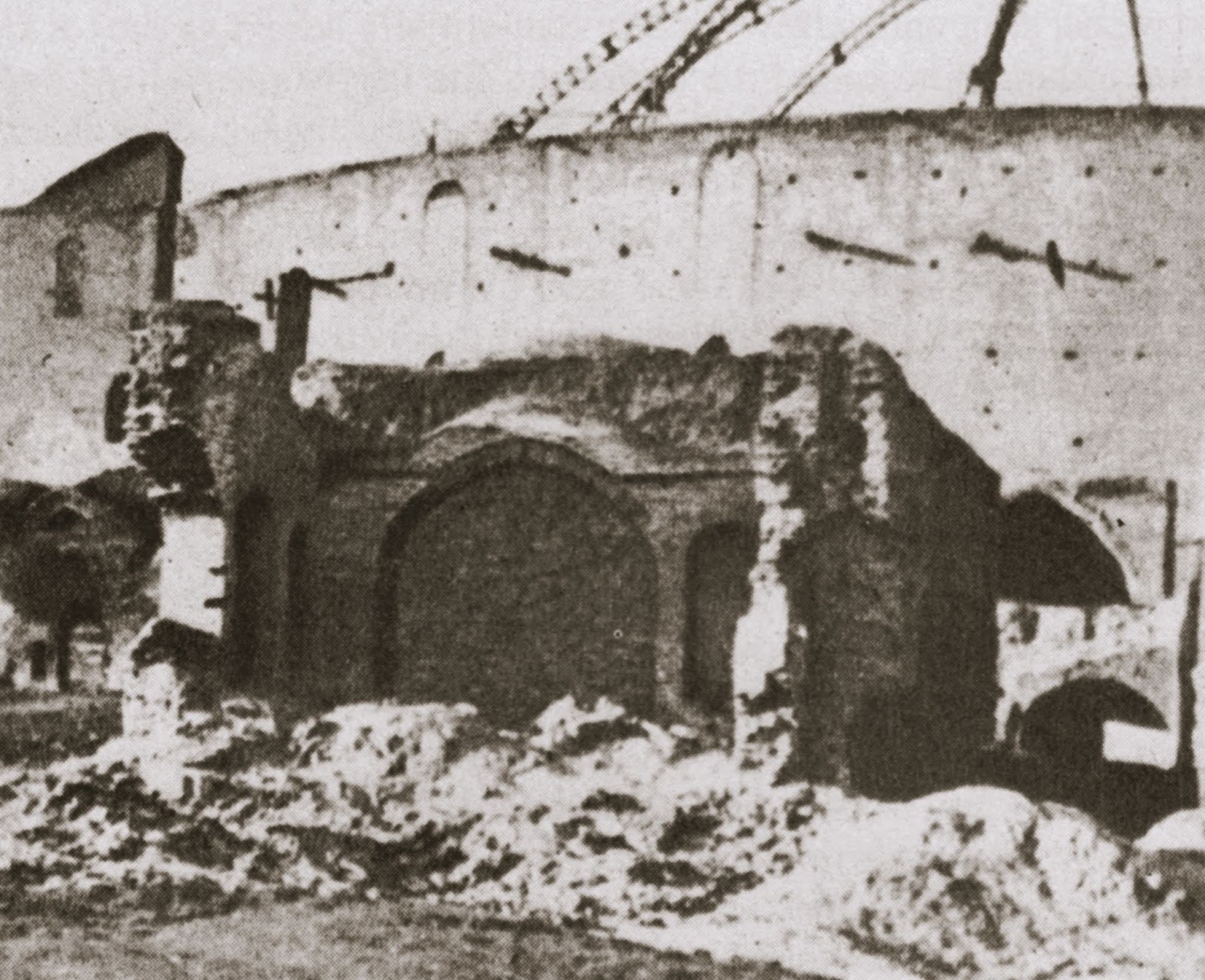
1925 Photograph of the original corridor to the entrance of the Síyáh-Chál, Ṭihrán, which was filled-in in 1868. Originally published in Bahá'í News, Number 540 (March, 1976), page 9. Source: Wikimedia Commons.
The 81 Bábís that were apprehended in Ṭihrán in August 1852 were Bahá’u’lláh’s fellow-prisoners in the Siyáh-Chál. Huddled together in one cell, two rows facing each other, their necks shackled in heavy chains and their feet in stocks, in the permanent filth, vermin, cold, and humidity. To lift their spirits, Bahá’u’lláh taught His companions an invocation they would chant in a powerful call and response.
One row would chant fervently:
“God is sufficient unto me; He verily is the All-sufficing!”
And the second row would intone, with the same ardor :
“In Him let the trusting trust”
The chorus of their joyful voices reverberated through the night until the early hours of the morning, filling the dungeon, piercing its massive walls, and making its way to the ears of Náṣiri’d-Dín Sháh, in his nearby palace, who exclaimed: “What means this sound?” Those he asked replied: “It is the anthem the Bábís are intoning in their prison.”
The Sháh never commented on the chant again but nor did he make any attempt to restrain the enthusiasm of the Bábí prisoners.
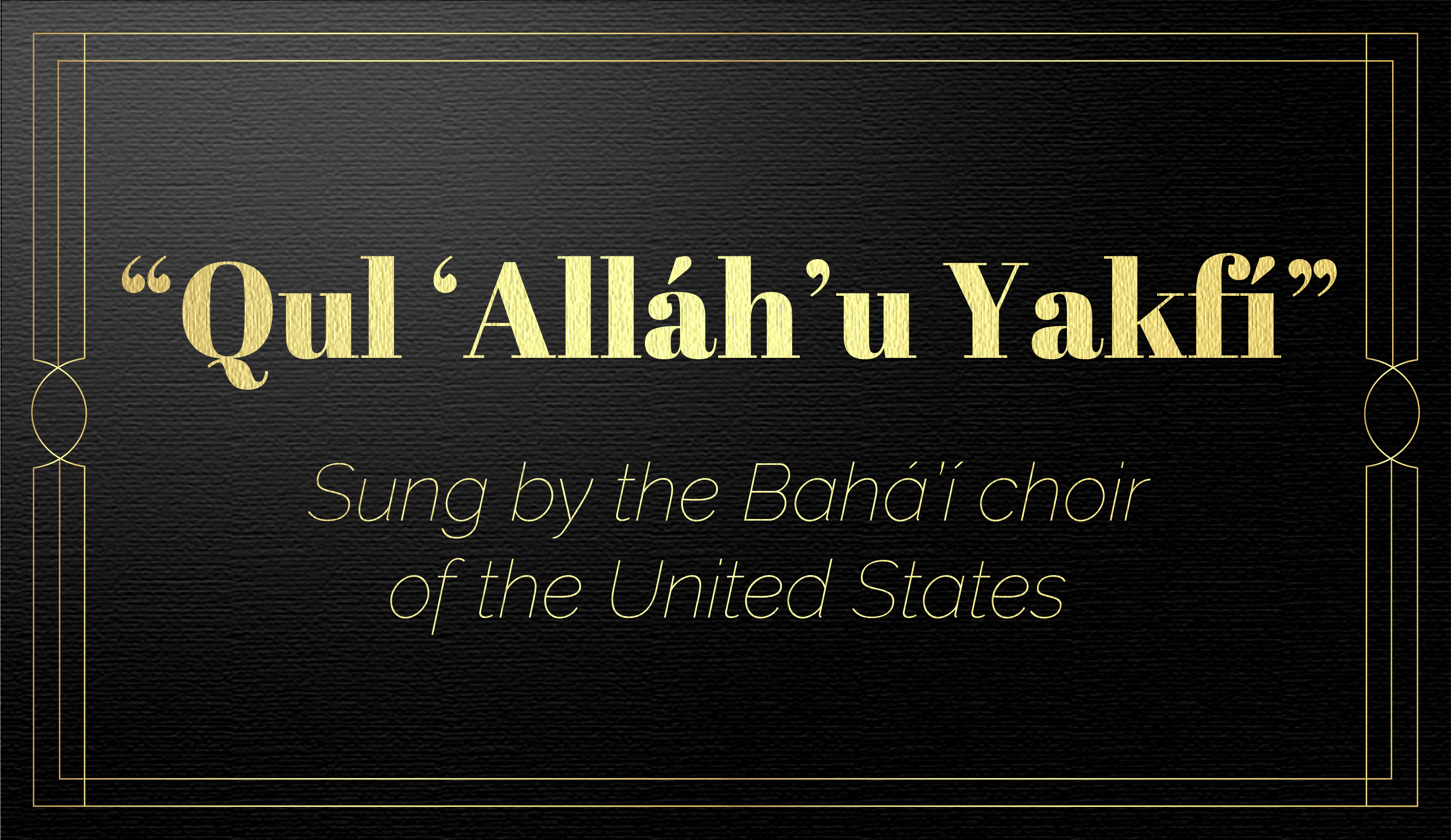
Click on the graphic above to listen to "Qul 'Alláh'u Yakfí" (Say God is sufficient unto me), sung by the Bahá'í choir of the United States. This is the song Bahá'u'lláh taught His fellow-prisoners, and which they would sing throughout the night, the powerful, joyful echoes of which were heard all the way to the Sháh's palace. Source: Bahá'í Media YouTube channel.
Nabíl, The Dawn-Breakers, pages 631-632.
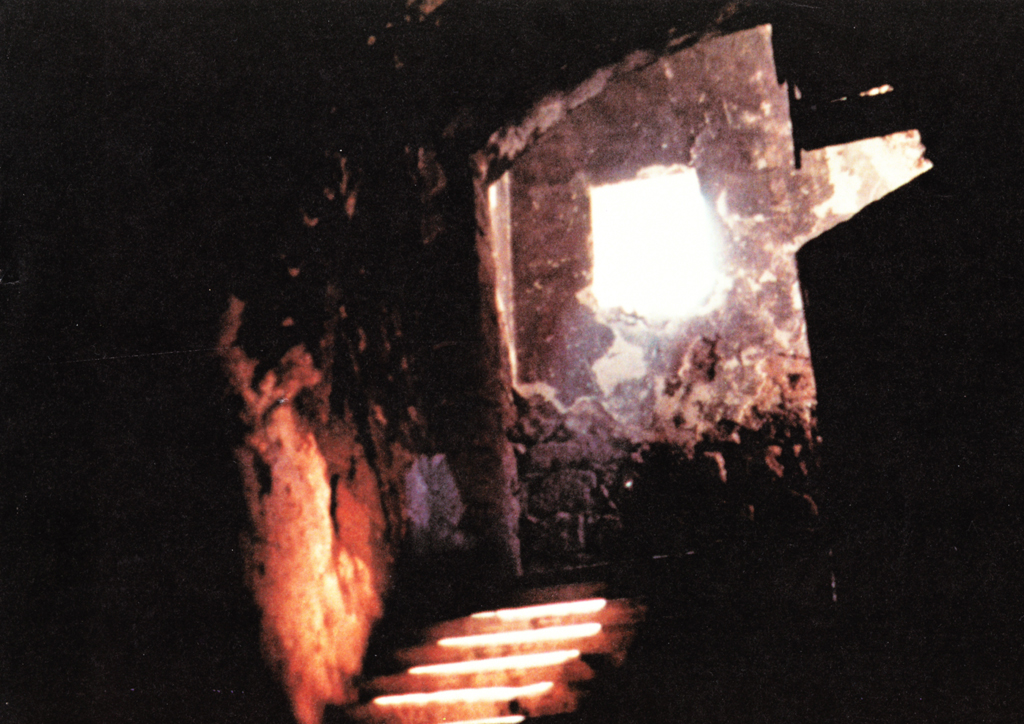
The entrance to the Síyáh-Chál. Source: Bahá'í Teachings.
'Abdu'l-Bahá, then eight years old, was profoundly attached to His father, and separation from Him was unbearable. He insisted on seeing His beloved father in the Siyáh-Chál, and through the kindness of one of the prison officials who was friendly towards Bahá'u'lláh, 'Abdu'l-Bahá was allowed to visit Him.
A servant carried 'Abdu'l-Bahá on his shoulders along the same narrow dark corridor that Bahá'u'lláh had walked, through the same small doorway, the only entrance into the Black Pit, and down two steps of the three flights of stairs, beyond which 'Abdu'l-Bahá could see nothing.
Bahá'u'lláh caught sight of His beloved Son and ordered:
"Do not bring him in here."
'Abdu'l-Bahá was permitted to wait in the prison yard until noon, when the prisoners were allowed an hour of fresh air. When 'Abdu'l-Bahá saw His Father, He was in chains and tied to His nephew, Mírzá Maḥmúd, and several others. The chain was so heavy, it made their walking very difficult. Bahá'u'lláh's beard was unkempt and His neck was bruised and swollen from the pressure of the heavy steel collar. The sight was so shocking and heartbreaking that 'Abdu'l-Bahá fainted and had to be carried home unconscious.
H.M. Balyuzi, 'Abdu'l-Bahá: The Centre of the Covenant of Bahá'u'lláh, page 12.
Adib Taherzadeh, The Revelation of Bahá'u'lláh Volume 1: Baghdád 1853 - 1863, page 9.
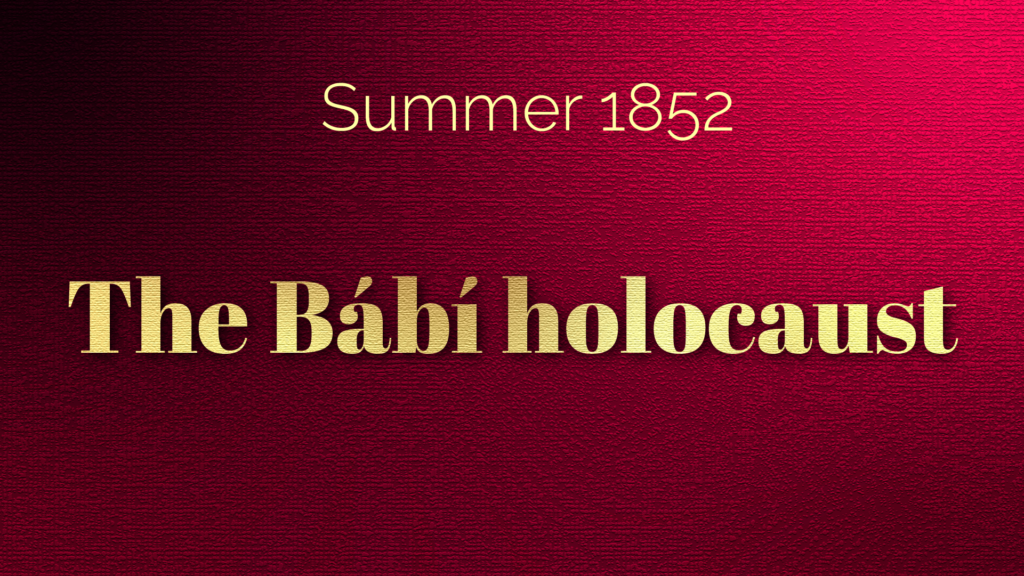

© Violetta Zein.
Three foundational major events in Bahá'í history took place in 1852 – 1853: Bahá'u'lláh was imprisoned in the Siyáh-Chál for four months, the Bábís in Persia were massacred on an unimaginable scale, in both savagery and sheer numbers, and third, the Bahá'í Faith was born.
The spiritual forces at play during this intensely violent yet glorious year are foundational to our Faith. The section is called the Bábí holocaust in tribute to Shoghi Effendi’s term for it, but also because the blood-thirsty tsunami of hatred and retribution that swept through Persia after the attempt on the Sháh’s life was aimed at wiping out the Bábí Faith.
This section is not appropriate for children under the age of 12 or readers sensitive to graphic violence.
The term “holocaust” is from Shoghi Effendi, God Passes By:
“In sheer dramatic power, in the rapidity with which events of momentous importance succeeded each other, in the holocaust which baptized its birth, in the miraculous circumstances attending the martyrdom of the One Who had ushered it in, in the potentialities with which it had been from the outset so thoroughly impregnated, in the forces to which it eventually gave birth, this nine-year period may well rank as unique in the whole range of man’s religious experience.”
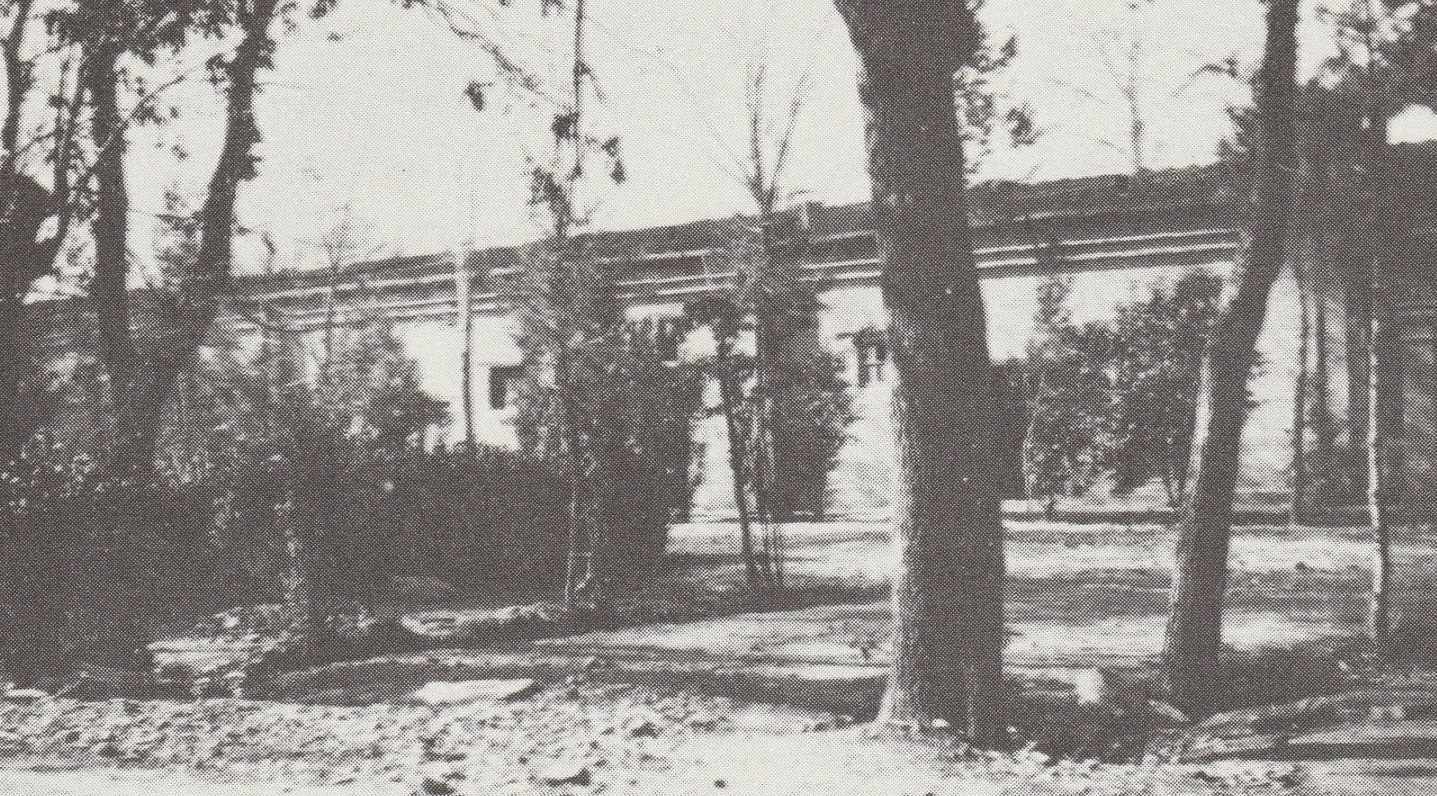
Site of the garden of Ílkhání were Ṭáhirih was martyred. Source: Nabíl, The Dawn-Breakers, page 626.
Ṭáhirih was martyred on the day that Bahá'u'lláh was thrown into the Siyáh-Chál.
She had been under house arrest in Ṭihrán since late 1848, besting all the Muslim clerics whenever she was interrogated. Shortly after the assassination attempt on the life of Sháh had failed on 15 August 1852, she knew the day of her martyrdom was approaching and the next day or the day after, 16 or 17 August 1852, she bathed and perfumed herself with rose water, and attired herself like a bride on her wedding day, saying: "I am preparing to meet my Beloved."
When her executioners arrived that evening, Ṭáhirih was ready. She was taken to the garden and strangled with her own handkerchief. Her precious body thrown into a dry well and covered over with stones and rubbish.
Martha L. Root, Ṭáhirih The Pure, pages 100-101.
Nabíl, The Dawn-Breakers, page 622.
Shoghi Effendi, God Passes By.
Excerpt from Ṭáhirih's writings from Nosratullah Mohammad Hosseini, Ḥaḍrat-i-Ṭáhirih (Dundas, Ontario, Canada: Persian Institute for Baháʼí Studies, 2000), p. 476. Translation by Omid Ghaemmaghami. Provided by Bijan Masumian and Adib Masumian from a forthcoming article to be published in Lights of ‘Irfán entitled Baháʼuʼlláh's Gradual Awareness and Disclosure of His Station before the Síyáh-Chál Experience.
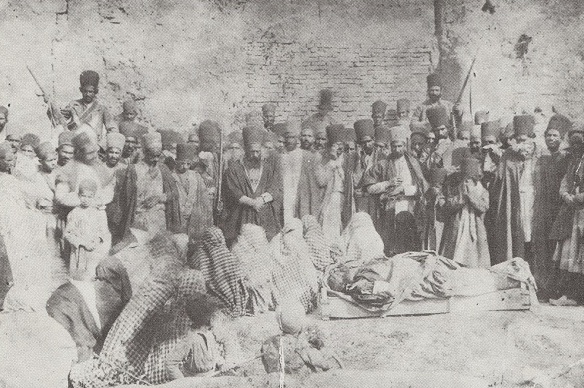
Bábís gathered around the body of a martyr. Source: Nabíl, The Dawn-Breakers, page 611.
In retribution for the attempt on the life of the Sháh, it is estimated twenty to thirty thousand Bábís were massacred in Ṭihrán, Nayríz, Shíráz, Yazd, all throughout the length and breadth of Persia in the summer of 1852, destabilizing even the most remote villages.
The repercussions were immediate. The same issue of Rúznámih-yi Vaqáyi’-i Ittifáqiyyih, the Persian Government’s newspaper, reports execution of 35 Bábís. Justin Sheil, the British Minister in Ṭihrán, recorded that 10 of the Bábís were executed on 21 August 1852, and the remaining 25 were handed over, one by one, to various government departments and segments of society to be assassinated in ways, each more gruesome than the next, in the streets of Ṭihrán.
The atrocities heaped upon an innocent population as vengeance for the act of three individuals were beyond comprehension. The western observers, who noted for posterity the atrocities they witnessed, told horrific tales. Bábí men, women and children were executed in countless ways, each more barbaric than the next. Their bodies were mutilated and desecrated before and after their martyrdom, and they were made to suffer both physically and emotionally, by being forced to witness their loved ones suffer, or being forced to kill them.
Bahá'u'lláh left a stirring prayer in honor of these martyrs:
“Through the blood which they shed the earth hath been impregnated with the wondrous revelations of Thy might and the gem-like signs of Thy glorious sovereignty. Ere-long shall she tell out her tidings, when the set time is come.”
Shoghi Effendi, God Passes By.
Nabíl, The Dawn-Breakers: Footnotes 12 and 19 in Chapter XXVI: Attempt at the Sháh's Life and its consequences.
Figures for the Bábí massacres of 1852 from Encyclopaedia Iranica: MARTYRS, BABI.
Prayer revealed by Bahá'u'lláh for the martyrs of the Faith, quoted by Shoghi Effendi in God Passes By.
Moojan Momen, Two Episodes from the Life of Bahá'u'lláh in Iran, published in Lights of Irfan, 20, page 151.
Official Persian government newspaper, Rúznámih-yi Vaqáyi’-i Ittifáqiyyih of 10 Dhu’l-Qa`dih 1268 (26 August 1852), page 2, column 2.
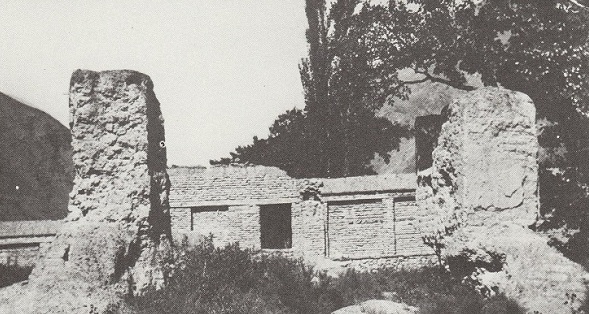
Ruins of Bahá'u'lláh's ancestral home in Takúr, after it was destroyed during reprisals. Source: Nabíl, The Dawn-Breakers, page 111.
The hateful wave of violence and reprisals started in Ṭihrán swept through Persia, and ravaged Mázindarán, Bahá'u'lláh’s province. In its wake, Bahá'u'lláh’s luxuriously furnished ancestral home in Takúr was utterly plundered, the homes of the villagers were leveled to the ground, and the entire village was set on fire.
On 16 August 1852, when Bahá'u'lláh was arrested and thrown into the Siyáh-Chál, one of the servants of His household in Ṭihrán saw Bahá'u'lláh being led through the streets and ran to Ásíyih Khánum, panicking. The day Bahá'u'lláh was taken from them, Ásíyih Khánum and the children lost everything: they were penniless, abandoned by their friends, their homes were raided and their belongings stolen. Crowds threw so many rocks through their windows that eventually the house filled with them.
Ásíyih Khánum rented a small place in an obscure neighborhood of Ṭihrán, and moved there with the children at night, under the cover of darkness. For the next four months, her main concern was obtaining information about Bahá'u'lláh. She often went to one of Bahá'u'lláh’s aunts, married to a Russian citizen, waiting to hear any information, and sharing what she learned with Mírzá Músá. Eventually, she was able to send food to Bahá'u'lláh, and they later moved to new quarters, closer to the Siyáh-Chál.
Ásíyih Khánum had three children to care for, and she also had to protect 'Abdu'l-Bahá from Himself. He was so worried for His father, that He waited for her to return out in the street. One day she arrived to find Him surrounded by bullies, one of several near-incidents. There came a point, before December 1852, when Ásíyih Khánum had so little left, all she could offer her three children to eat was a little bit of flour in the palm of their hands.
Shoghi Effendi, God Passes By.
Baharieh Rouhani Ma'ani, Leaves of the Twin Divine Trees, pages 96-99.
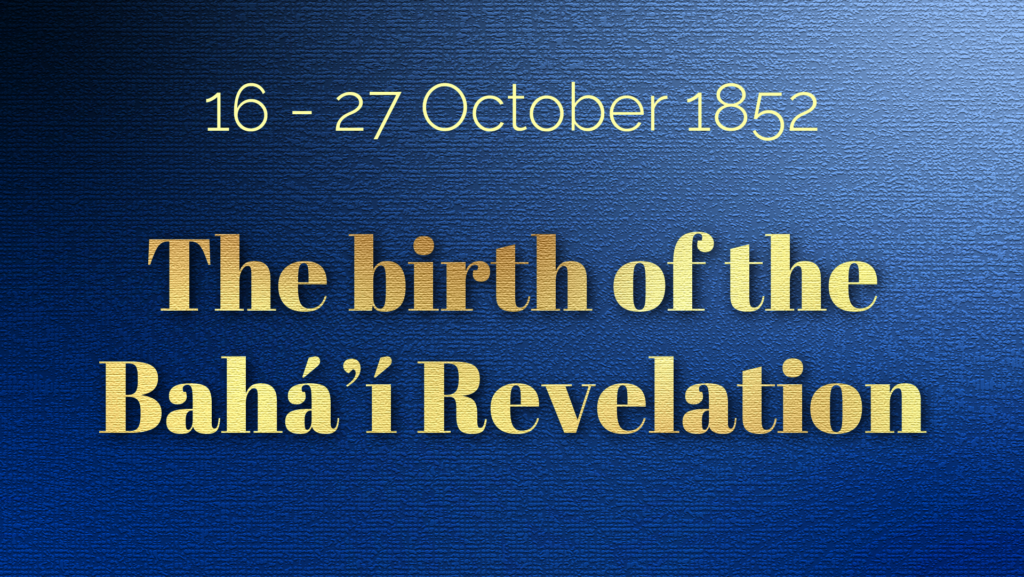

The Holy Spirit in the Bahá'í Faith is personified by the Maid of Heaven. This collage series honors past Dispensations and their personifications for the Holy Spirit. From left to right: First image: The Holy Spirit in Zoroastrianism: A (cropped) mural in Yazd depicting Prophet Zoroaster and a replica of the afarganyu, the Holy Fire burning in every Zoroastrian Fire Temple. Source: Quora forum. Second image: The Holy Spirit in Judaism: 12th century gilded icon depicting Moses and the Burning Bush on Mount Sinai. Source: Wikimedia Commons. Third image: The Holy Spirit in Christianity: 14th century folio from a liturgical manuscript depicting The Holy Spirit, in the form of a dove, created by Giovanni di Benedetto and his workshop. Held by Bibliothèque nationale de France. Source: Ad Imaginem Dei: A Dove Descending (31 May 2020). Fourth image: The Holy Spirit in Islam: 14th century painting of the Angel Gabriel appearing to Prophet Muḥammad, by Aḥmad Músá.. Source: Wikimedia Commons.
In August 1852, following the attempt on the life of the Sháh, darkness had descended. The face of Persia had been blackened by the massacre of thousands of Bábís, and Bahá'u'lláh had been thrown in the Siyáh-Chál, in blackness twenty-three hours a day. Three months later, in October 1852, “the set time” had come, and out of the darkest blackest pit, in that gloomy and dreadful hour, the light of Bahá'u'lláh’s Revelation was about to shine over the somber horizon of Persia, nine short lunar years after the light of the Báb’s Revelation.
These twin Revelations, so close together are the distinguishing feature of our Faith, a marvel Bahá'u'lláh describes in the following words: “Behold, how immediately upon the completion of the ninth year of this wondrous, this most holy and merciful Dispensation, the requisite number of pure, of wholly consecrated and sanctified souls has been most secretly consummated.” Bahá'u'lláh called the rapid succession of the Báb’s and Bahá'ís Revelation a “secret that no man can unravel, and a mystery such as no mind can fathom. Its duration had been foreordained.” Shaykh Aḥmad-i-Aḥsá’í had often called his followers’ attention to “the twin Revelations which are to follow each other in rapid succession,” and had told his disciple, Siyyid Kaẓím that the supreme Revelation would be “made known after Ḥín.” By “after Ḥín,” or “after 68,”Shaykh Aḥmad was making reference to after the year 1268 A.H., or after 1852.
The Báb revealed His mission to Mullá Ḥusayn in 1260 A.H., on 23 May 1844, and frequently made specific references to the “year nine,” or 1269 A.H./mid-October 1852, as the date for the coming of “Him Whom God shall make manifest.” In the Arabic Bayán and in Tablets to His disciples, the Báb stated, in clear, unmistakable terms: "In the year nine, ye shall attain unto all good," "In the year nine, ye will attain unto the presence of God," "After Hín [68] a Cause shall be given unto you which ye shall come to know," and "Ere nine years will have elapsed from the inception of this Cause, the realities of the created things will not be made manifest.”
Adib Taherzadeh, The Revelation of Bahá'u'lláh, Volume 1: Baghdád 1853 - 63, pages 298-299.
Shoghi Effendi, God Passes By, page 29.
Bahá'u'lláh, Epistle to the Son of the Wolf.
Shoghi Effendi, God Passes By.
Shoghi Effendi, God Passes By.
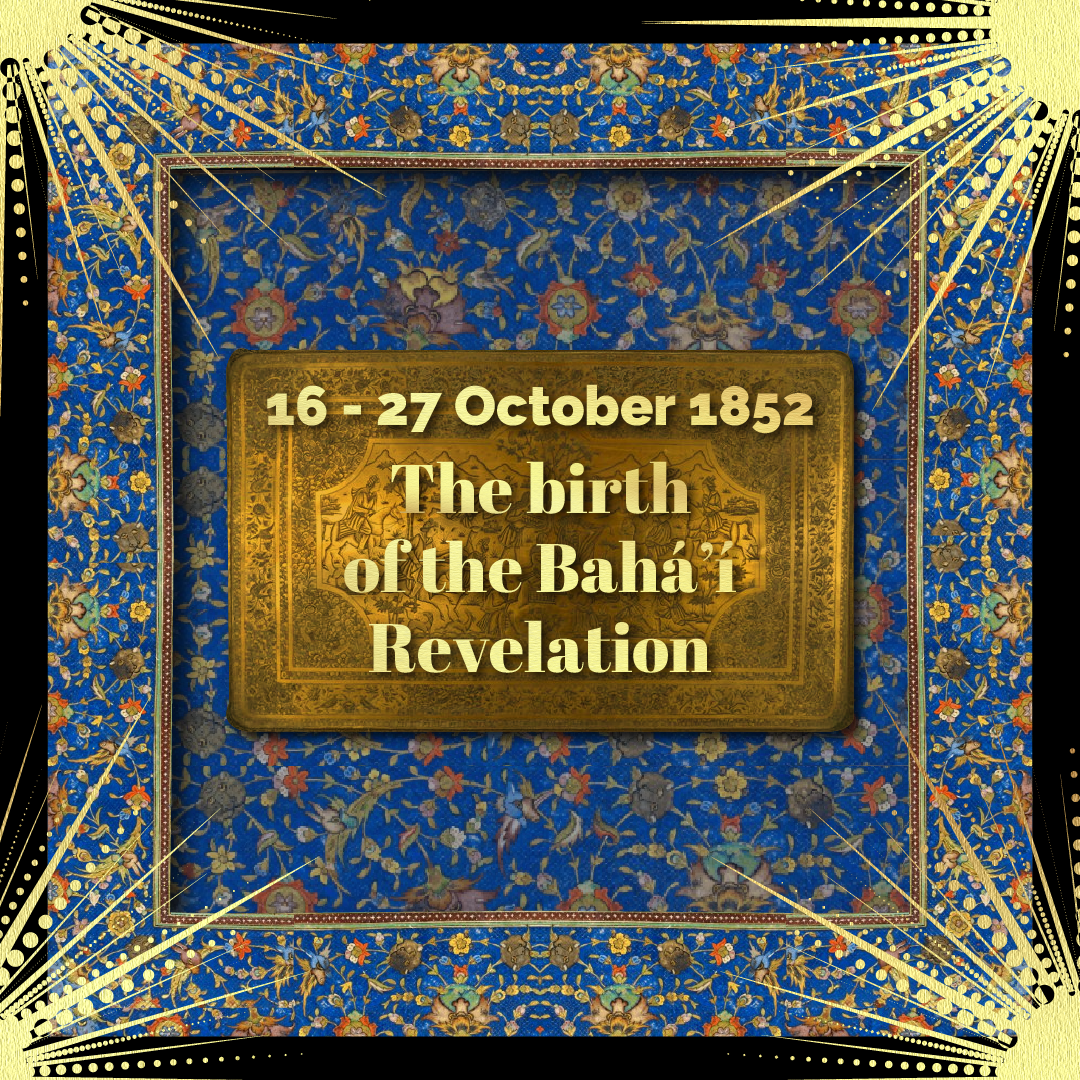
© Violetta Zein.
The Bahá'í Revelation was ushered into the world over the course of 12 days, which recalls Bahá'u'lláh’s childhood 12-day transfiguration. It occured in the gravest of all circumstances. Bahá'u'lláh was suffering through the second month of His third imprisonment. He was plunged in foul, icy darkness, and rendered nearly immobile by the weight of His chains. The Revelation occurred shortly after the Bábí holocaust which had nearly wiped the Faith of the Báb from the earth, eradicating 20,000 of Bahá'u'lláh’s fellow-believers.
At this most critical hour, the Most Great Spirit, personified by a Maid of Heaven descended upon, and revealed itself to the agonized soul of Bahá’u’lláh, bearing the most wondrous of messages: the birth of His Prophetic Mission as the Manifestation of God for today, “Him Who God shall make manifest,” the One heralded by the Báb, the Bahá'í Revelation, ordained to last no less than 1,000 years, and the inception of a new Universal Cycle destined to extend over a period of at least 500,000 years.
We are privileged to have not one but six descriptions penned by Bahá'u'lláh of His Revelation from God in the Siyáh-Chál, describing His wondrous, elevated spiritual state. Bahá'u'lláh makes perfectly clear He had no volition in the Revelation and that “God, of His own choosing, hath manifested Me.” Even in the times when Bahá'u'lláh chose to “hold My peace and be still,” the Voice of the Holy Spirit, standing on His right aroused Him, and the Most Great Spirit appeared before My face, and Gabriel overshadowed Me, and the Spirit of Glory stirred within My bosom, bidding Me arise and break My silence.” Bahá'u'lláh testifies that “I was but a man like others, asleep upon My couch, when lo, the breezes of the All-Glorious were wafted over Me, and taught Me the knowledge of all that hath been. This thing is not from Me, but from One Who is Almighty and All-Knowing.”
It was while Bahá'u'lláh was engulfed in tribulations that He describes hearing “a most wondrous, a most sweet voice, calling above My head,” and beheld a Maiden, the embodiment of the remembrance of the name of God, suspended in the air before Him. The Maiden was so rejoiced in her very soul that her countenance shone with the good-pleasure of God and her cheeks glowed with His brightness. Suspended between earth and heaven, the Maiden raised a call that captivated the hearts and minds of men, and imparted “to both My inward and outer being tidings which rejoiced My soul, and the souls of God’s honored servants.”
The Maiden pointed her finger to Bahá'u'lláh’s head and addressed the entire creation on earth and in heaven, saying “By God! This is the Best-Beloved of the worlds, and yet ye comprehend not. This is the Beauty of God amongst you, and the power of His sovereignty within you, could ye but understand. This is the Mystery of God and His Treasure, the Cause of God and His glory unto all who are in the kingdoms of Revelation and of creation, if ye be of them that perceive.”
Bahá'u'lláh vividly describes the effect of the onrushing power of Divine Revelation on His physical being, despite being crushed by the galling weight of His chains and the stench-filled air, as if “something flowed from the crown of My head over My breast, even as a mighty torrent that precipitateth itself upon the earth from the summit of a lofty mountain.” In those moments, every limb of Bahá'u'lláh’s body would be set afire and His tongue would recite “what no man could bear to hear."
In one passage, Bahá'u'lláh recounts an instance of a Revelation of God that descended upon Him in a dream, when He heard these exalted words on every side: “Verily, We shall render Thee victorious by Thyself and by Thy Pen. Grieve Thou not for that which hath befallen Thee, neither be Thou afraid, for Thou art in safety. Erelong will God raise up the treasures of the earth – men who will aid Thee through Thyself and through Thy Name, wherewith God hath revived the hearts of such as have recognized Him.”
In those moments of Divine Revelation descending upon Him, Bahá'u'lláh states that God “bade Me lift up My voice between earth and heaven, and for this there befell Me what hath caused the tears of every man of understanding to flow.” God’s “all-compelling summons” reached Bahá'u'lláh and caused Him “to speak His praise amidst all people.”
In perhaps the most stirring passage of all, Bahá'u'lláh testifies “I was indeed as one dead when His behest was uttered. The hand of the will of Thy Lord, the Compassionate, the Merciful, transformed Me.”
The Bahá'í Faith had been born. Bahá'u'lláh’s Dispensation, ordained to last no less than a thousand years, had been ushered into the world. Bahá'u'lláh would speak not a word of it, not even to His family for ten lunar years, until 21 April 1863, a time foreordained by God, and prophesied by the Báb Himself.
DATE OF BAHÁ'U'LLÁH’S REVELATION
Bahá'u'lláh, Kitáb-i-Aqdas: Note 62:
“The intimation of His Revelation to Bahá’u’lláh in the Síyáh-Chál of Ṭihrán, in October 1852, marks the birth of His Prophetic Mission…”
Specific date range for Bahá'u'lláh’s Revelation in the Siyáh-Chál from Moojan Momen, Two Episodes from the Life of Bahá'u'lláh in Iran, published in Lights of Irfan, 20, page 157:
“We can now say that…the beginning of [Bahá'u'lláh’s] mission as a Manifestation of God, occurred repeatedly over a twelve day period from 2 Muharram to 13 Muharram 1269, which equates to 16 October to 27 October 1852 A.D. or 1 `Ilm to 12 `Ilm 9 B.E.”
A compilation of the six descriptions of His Revelation in penned by Bahá'u'lláh in the order in which they appear in Shoghi Effendi, God Passes By:
- Bahá'u'lláh, Epistle to the Son of the Wolf, Excerpt 1;
- Bahá'u'lláh, Súriy-i-Haykal;
- Bahá'u'lláh, Epistle to the Son of the Wolf, Excerpt 2;
- Bahá'u'lláh, The Summons of the Lord of Hosts, Tablet to Náṣiri’d-Dín Sháh;
- Bahá'u'lláh, Epistle to the Son of the Wolf, Excerpt 3;
- Bahá'u'lláh, excerpt from the Lawḥ-i-Siraj, Gleanings from the Writings of Bahá'u'lláh, N° L (50).
Bahá'í Revelation/Universal Cycle durations: Shoghi Effendi: The World Order of Bahá'u'lláh and Bahá'u'lláh, Kitáb-i-Aqdas: Note 62.
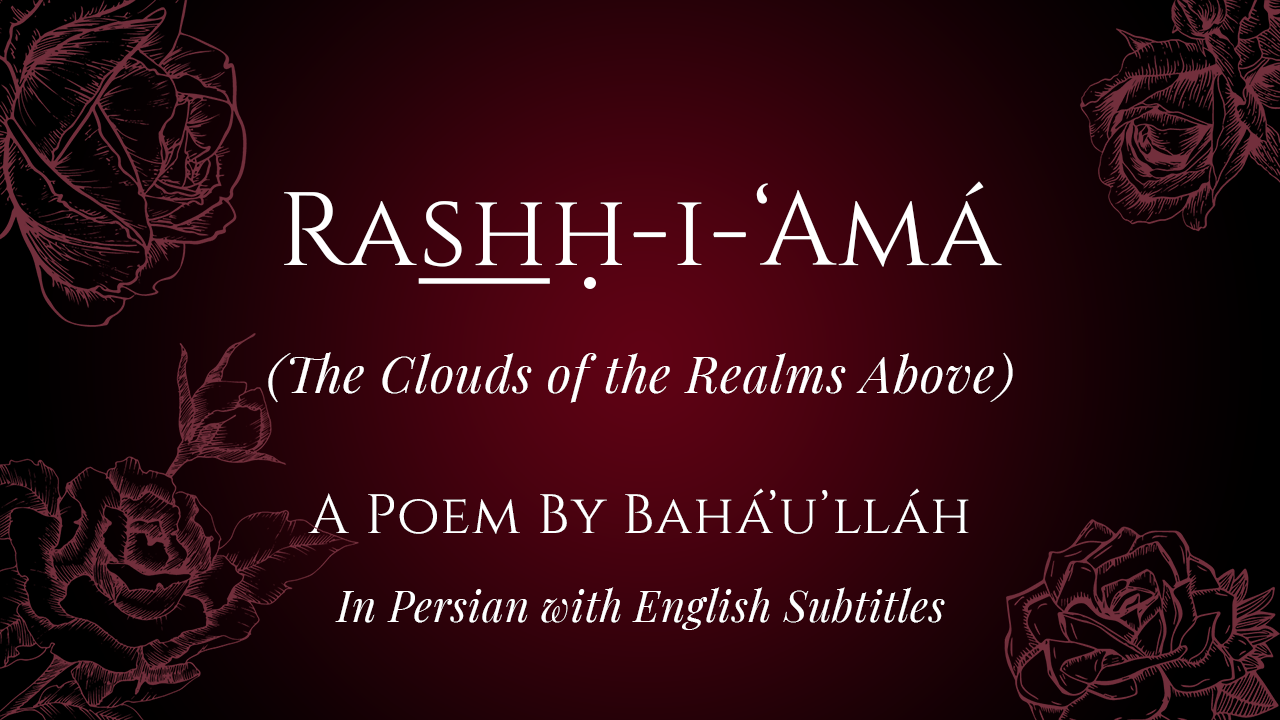
Click on the graphic below to listen to the Utterance Project's recitation of this extraordinary Holy Writing, and follow this link to read the full description on our website.
Rashḥ-i-‘Amá (The Clouds of the Realms Above) is believed to be the earliest fruit of Baha’u’llah’s Pen, one of the rare to have been revealed in His native land of Persia. Rashḥ-i-‘Amá, revealed during His four-month imprisonment in the Siyáh-Chál, is a poetic reflection on the first intimations of His station as a Manifestation of God and contains subtle references to the outpouring of Bahá'u'lláh’s Revelation, and on the exalted relationship between God and His Manifestation and between the Manifestation of God and humanity.
Partial Inventory ID: BH03230
Bahá'í World News Service: A collection of Bahá’u’lláh’s mystical writings published, 6 February 2019.
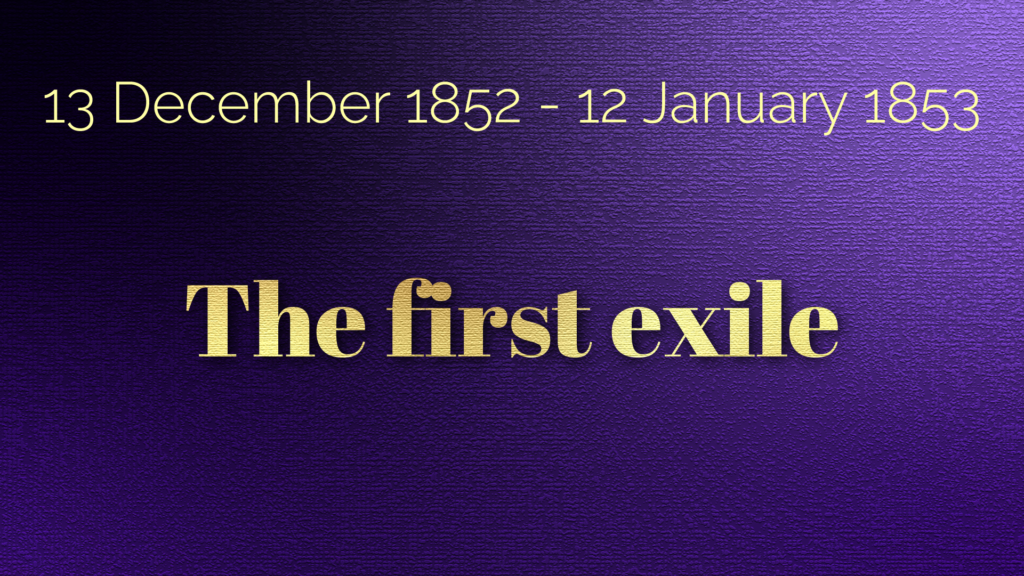
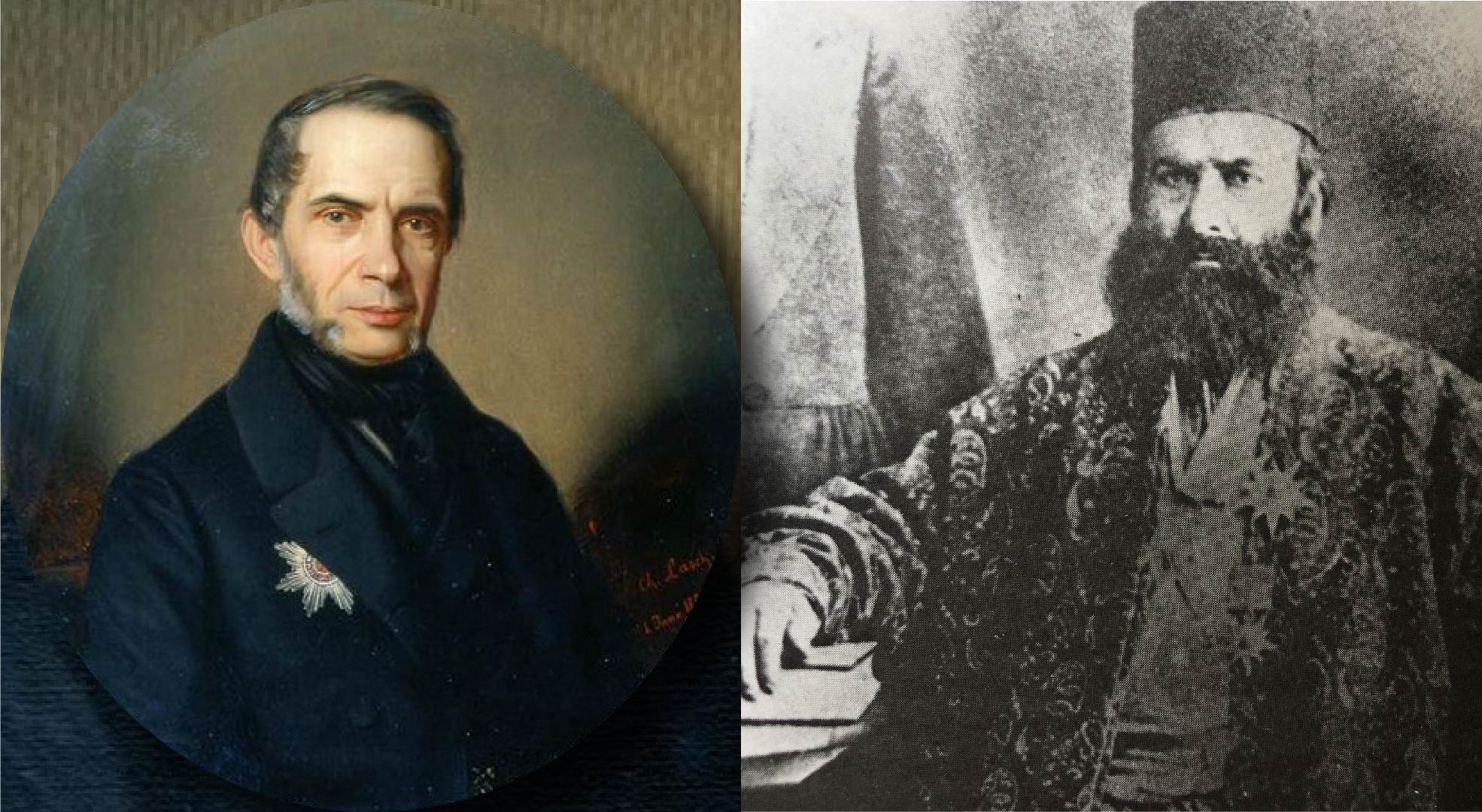
Left: The Russian minister in Persia from 1845 to 1854, Dimitri Ivanovich Dolgorukov by Carl Johann Lasch, 1855. Source: Wikimedia Commons. Right: Mírzá Majíd-i-Áhí, secretary to Prince Dolgorukov and brother-in-law of Bahá'u'lláh. Source: H.M. Balyuzi, Bahá'u'lláh: The King of Glory, page 100.
Prince Dimitri Ivanovich Dolgorukov, the Russian Minister, and his daughter had been profoundly affected when Bahá'u'lláh was arrested on 16 August 1852 at the Russian Legation. The prince’s daughter was overcome with emotion and asked her father of what use was his authority if he couldn’t protect his own guest. The prince did not forget Bahá'u'lláh, who had been thrown into the Siyáh-Chál and told the Grand Vizir that he would be held responsible should anything endanger Bahá'u'lláh’s safety.
Through his agents in Ṭihrán, Prince Dolgorukov kept himself apprised of Bahá'u'lláh’s situation and once fearlessly defended Bahá'u'lláh in front of the Imperial Court, where death sentences were passed: "Have you not taken enough cruel revenge? Have you not already murdered a large enough number of harmless people, because of this accusation, of the absurd falseness of which you are quite aware? Has there not been sufficient of this orgy of brutal torture to satisfy you? How is it possible that you can even pretend to think that this august prisoner planned that silly attempt to shoot the Sháh?...”
Prince Dolgorukov’s arguments were sound: the gun could not have killed a bird, the young shooter was crazed and out of his mind, and the charge against Bahá'u'lláh was patently untrue and ridiculous. The prince extended the protection of Russia to Bahá'u'lláh, and he sternly warned the court that not a single hair on His head should be touched, or “rivers of blood” would flow in Ṭihrán as a punishment. Prince Dolgorukov had heard rumors of plans to assassinate Bahá'u'lláh.
Bahá'u'lláh never forgot Dolgorukov’s kindness, and paid the Russian Minister a glowing tribute in a Tablet partially translated by Shoghi Effendi:
“In the days when this Wronged One was sore-afflicted in prison, the minister of the highly esteemed government (of Russia)—may God, glorified and exalted be He, assist him!—exerted his utmost endeavor to compass My deliverance…Finally, My freedom was gained through the solicitude and the endeavor of His Excellency the Minister.…”
Shoghi Effendi, God Passes By.
Nabíl, The Dawn-Breakers, pages 604-651.
Lady Blomfield, The Chosen Highway, pages 43-44.
Bahá'u'lláh quoted by Shoghi Effendi in God Passes By.
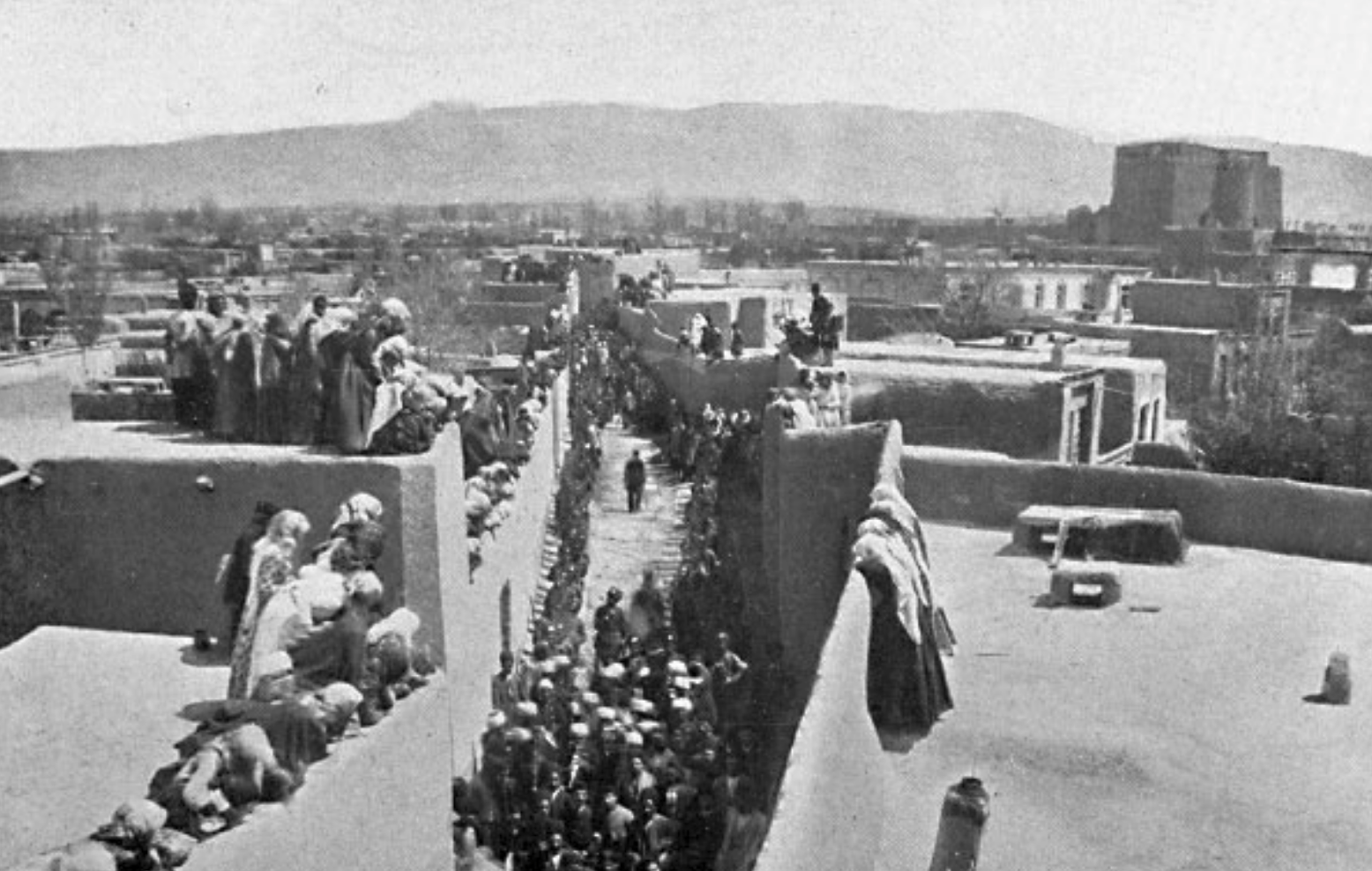
A crowd moving through the streets of Tabríz in 1890, offered as an illustration of what mob scenes would have looked like through Persian in the 1850s and particularly in the story about 'Aẓím's mob attack below. © Bahá'í International Community. Source: Official Website of the Bahá'í International Community: The Bábí Movement.
By December 1852, ‘Aẓím, was now widely considered to be the true mastermind of the attempt on the life of the Sháh instead of Bahá'u'lláh and he was arrested. Pressured by the Russian minister, the Grand Vizir sent Prince Dolgorukov’s envoy with Ḥájí ‘Alí Khán, the Sháh’s head footman, to interrogate ‘Aẓím in the Siyáh-Chál. In his confession, ‘Aẓím stated that he had arisen to avenge the martyrdom of the Báb, that he himself had conceived the plan to assassinate the Sháh, and had set it in motion and named Sádiq-i-Tabrízí as the one who unsuccessfully made the attempt on the Sháh’s life.
Both the Prince and the Sháh’s envoys took down his confession, and their reports ensured Bahá'u'lláh’s release from His four months of hellish confinement in the Siyáh-Chál.
Once ‘Aẓím had been found guilty and his death warrant issued, he was set up on by a crowd who mutilated his body, and he was later executed.
Nabíl, The Dawn-Breakers, pages 636-638.
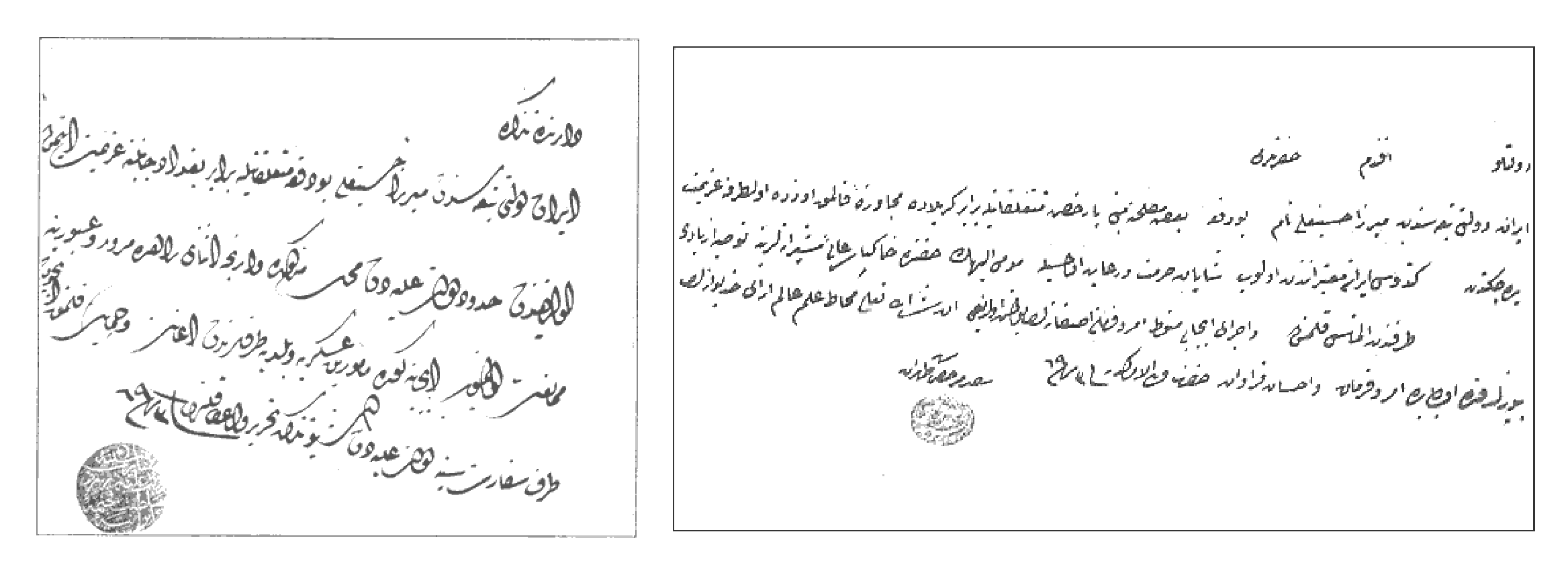
Facsimile of two letters of recommendation issued in 1852 by the Turkish Legation in Ṭihrán and delivered to Bahá'u'lláh prior to His departure for Baghdád. Source: Letter on the left: Bahá'í Media. Letter on the right: Bahá'í Media.
With such overwhelming testimonies establishing Bahá'u'lláh’s innocence, Náṣirid-Dín Sháh was forced to issue the order for Bahá'u'lláh’s release. The Grand Vizir’s emissary arrived at the Siyáh-Chál, and wept upon seeing the conditions in which they had kept Bahá'u'lláh, chained to the vermin-infested floor. Cursing the Grand Vizir aloud, his emissary removed his mantle and offered it to Bahá'u'lláh, who declined to wear it, preferring to appear in the garb of a prisoner before the members of the Imperial government.
As soon as He arrived, the Grand Vizir told Bahá'u'lláh He could have avoided such suffering if He had simply recanted, to which Bahá'u'lláh replied: “Had you, in your turn, followed My counsels, the affairs of the government would not have reached so critical a stage.”
Mírzá Áqá Khán asked Bahá'u'lláh what He now advised and Bahá'u'lláh responded:
“Command the governors of the realm to cease shedding the blood of the innocent, to cease plundering their property, to cease dishonoring their women, and injuring their children. Let them cease the persecution of the Faith of the Báb; let them abandon the idle hope of wiping out its followers.”
The Grand Vizir acted on Bahá'u'lláh’s advice that same day, but his orders would have a momentary and insignificant effect.
Nabíl, The Dawn-Breakers, pages 646-651.
Shoghi Effendi, God Passes By.
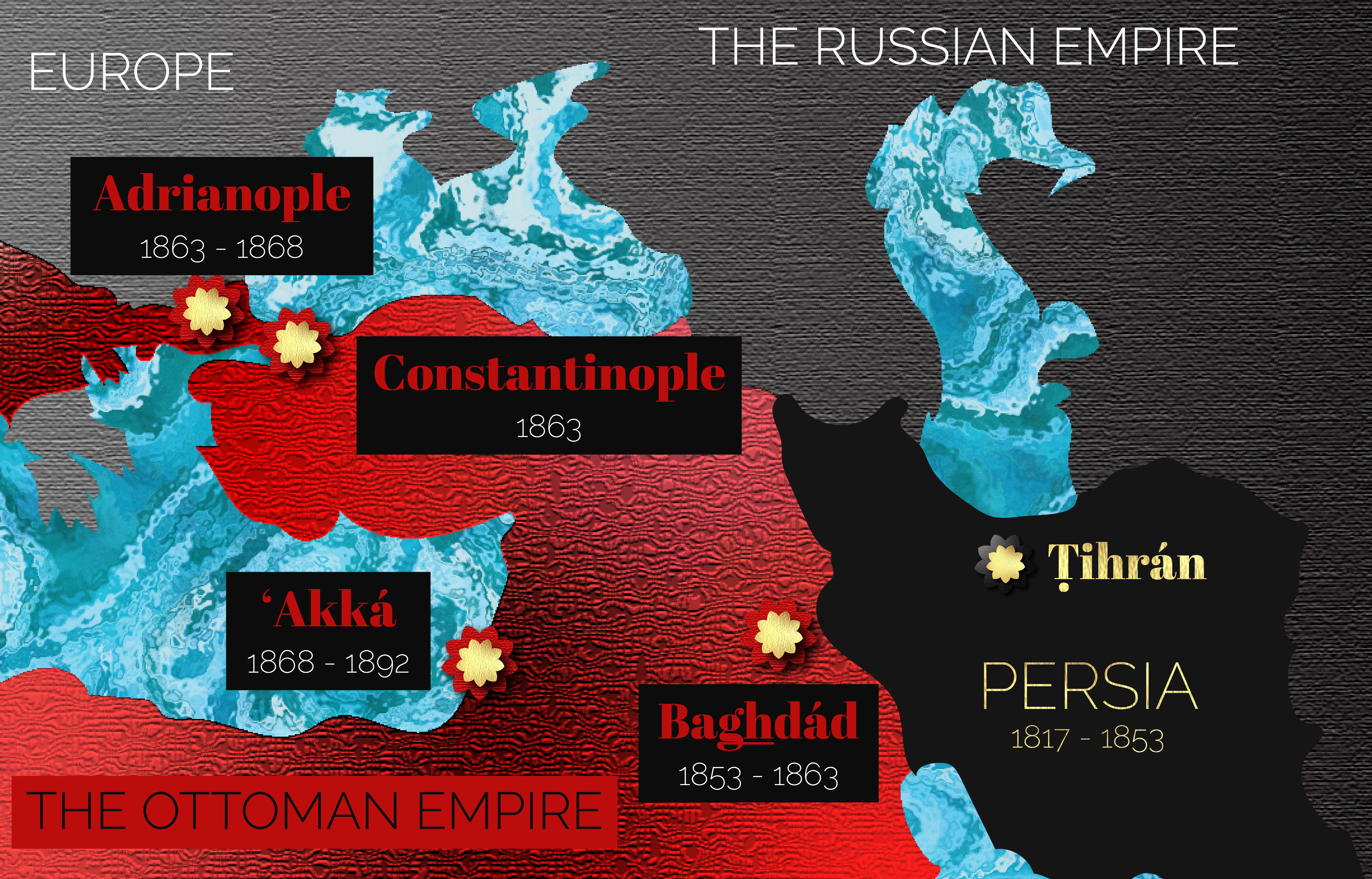
Map showing the four locations of Bahá'u'llá's successive banishments from His homeland. © Violetta Zein.
Bahá'u'lláh's relative peace and tranquility after His release from four hellish months in the Siyáh-Chál did not last long. The Persian government soon handed Bahá'u'lláh their decision: He had one month to leave Persia with His family, to a land of exile of His choosing, never to return, in effect, an expulsion from His native land.
Prince Dolgorukov offered Bahá'u'lláh his protection and an invitation to live in Russia. Bahá'u'lláh declined, choosing instead to leave for ‘Iráq, and the Russian Minister extended one last gesture by offering an official representative of the Russian Legation as Bahá'u'lláh’s escort on the long journey.
Nabíl, The Dawn-Breakers, page 650.
Shoghi Effendi, God Passes By.
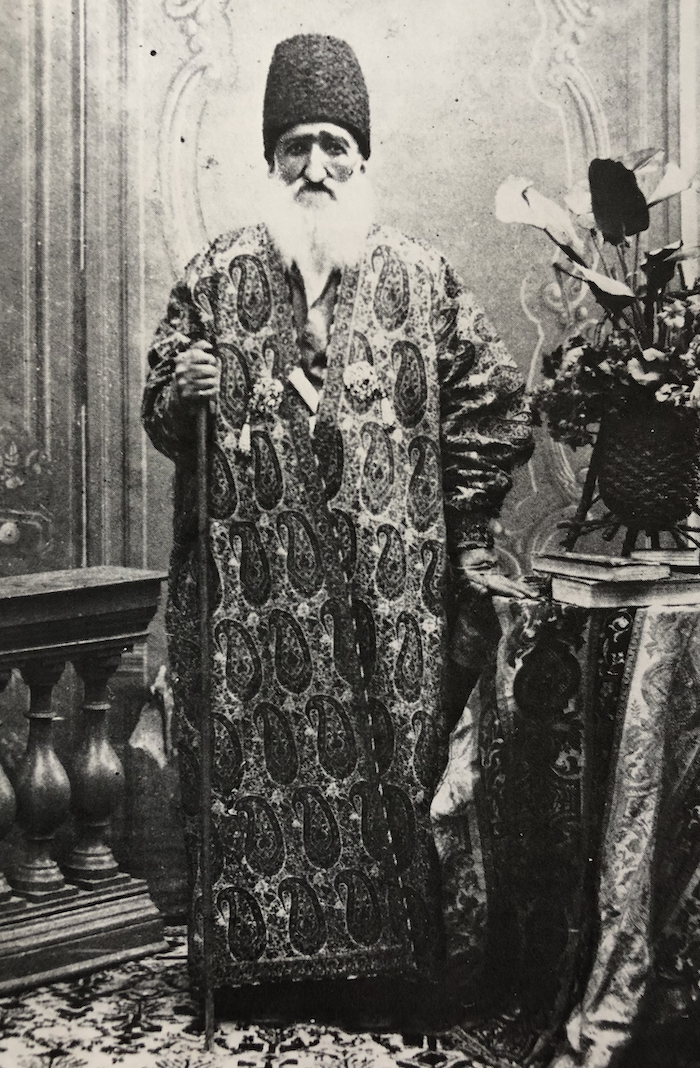
Mírzá Riḍá Qulí, the half-brother of Bahá'u'lláh and husband of the wonderful Maryam. Source: H.M. Balyuzi, Bahá'u'lláh: The King of Glory, page 103.
Bahá'u'lláh had left the Siyáh-Chál stripped of all His possessions, His back bent by the weight of the chains, His neck swollen and injured, and His health impaired. He did not breathe a word of the Divine Revelation He had received, but those close to Him had noticed a transformation in His spirit, and a power they had never seen in Him before. His daughter, Bahíyyih Khánum, would later recall that a new radiance seemed to enfold her Father, like a shining cloak.
Bahá'u'lláh spent the month before His exile in the house of His half-brother Mírzá Riḍá-Qulí, who was a doctor. Mírzá Ridá-Qulí was not a Bábí, but he was married to Maryam, one of Bahá'u'lláh’s cousins who had become a Bábí after being taught by Bahá'u'lláh in the early days of the Faith. Maryam was deeply loyal and devoted to Bahá'u'lláh and He never forgot His beloved cousin, often revealing profound and significant Tablets in her honor throughout His four exiles.
Maryam and Ásíyih Khánum nursed Bahá'u'lláh back to health until His condition had improved enough to undertake the journey, though He was not fully recovered. With Bahá'u'lláh still weak from His long, brutal confinement, and Ásíyih Khánum in the early stages of pregnancy, it was in the middle of a brutal winter that the Holy Family left their home, never to return.
Adib Taherzadeh, The Revelation of Bahá'u'lláh Volume 1: Baghdád 1853 - 1863, pages 12-13.
